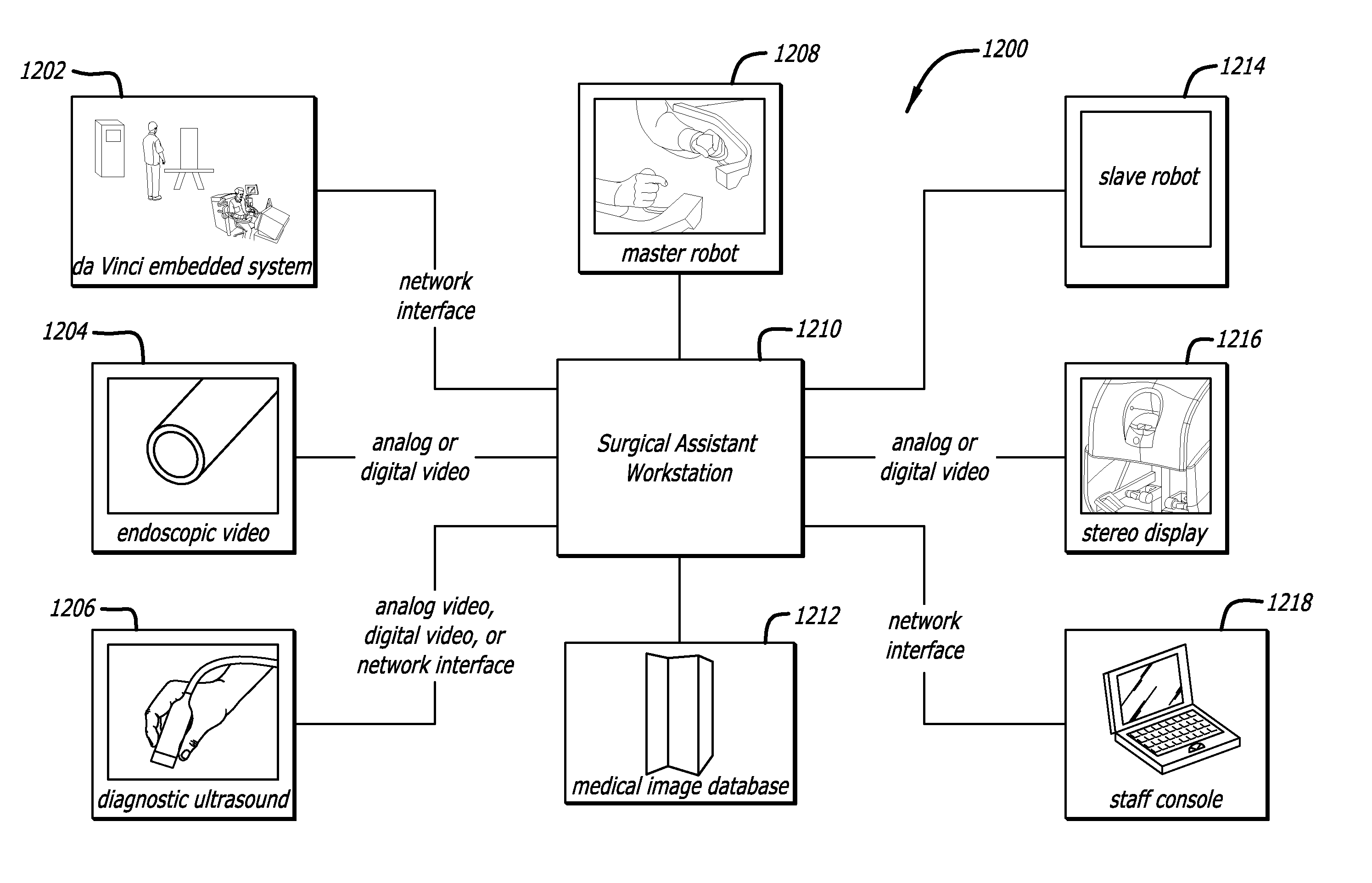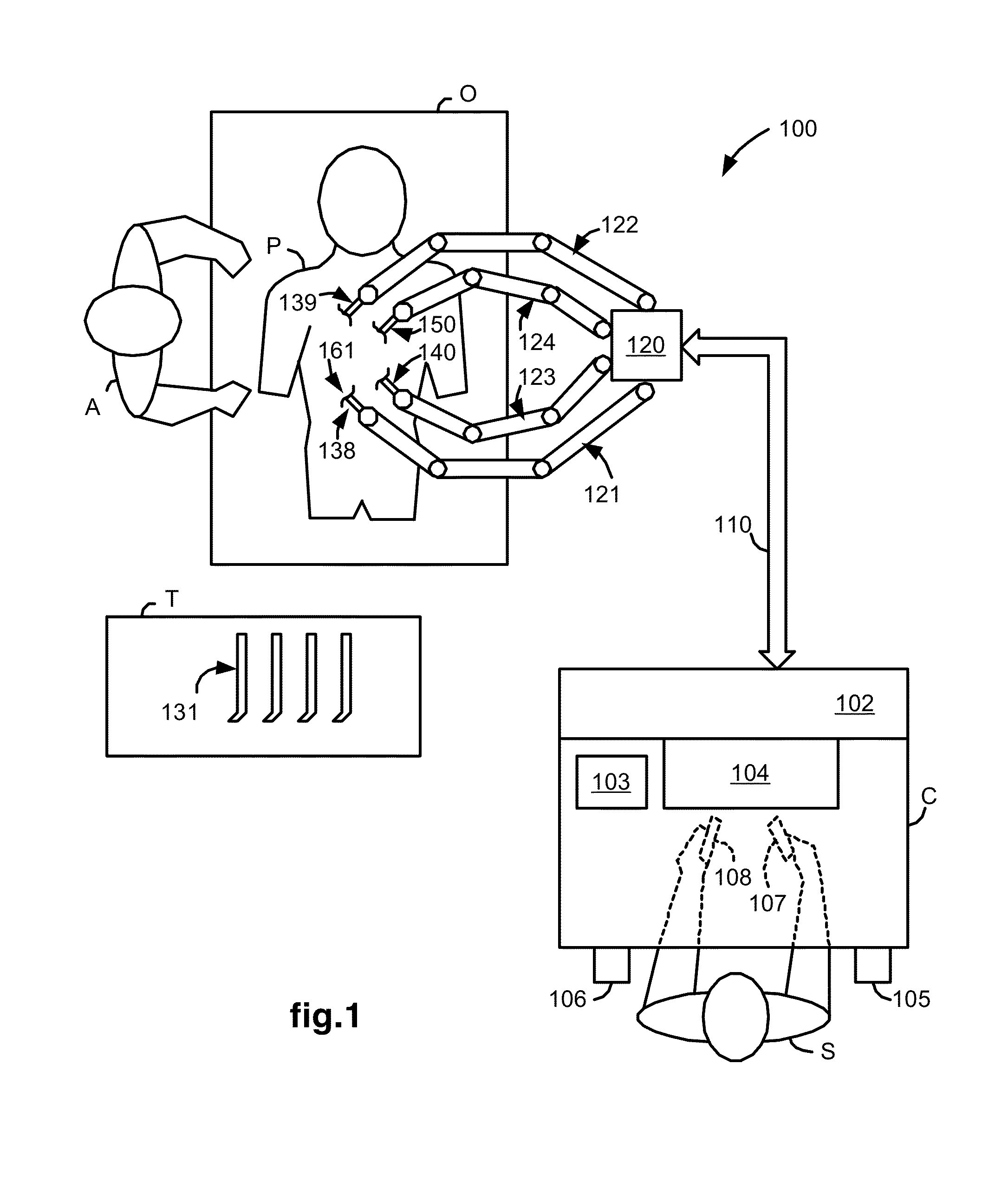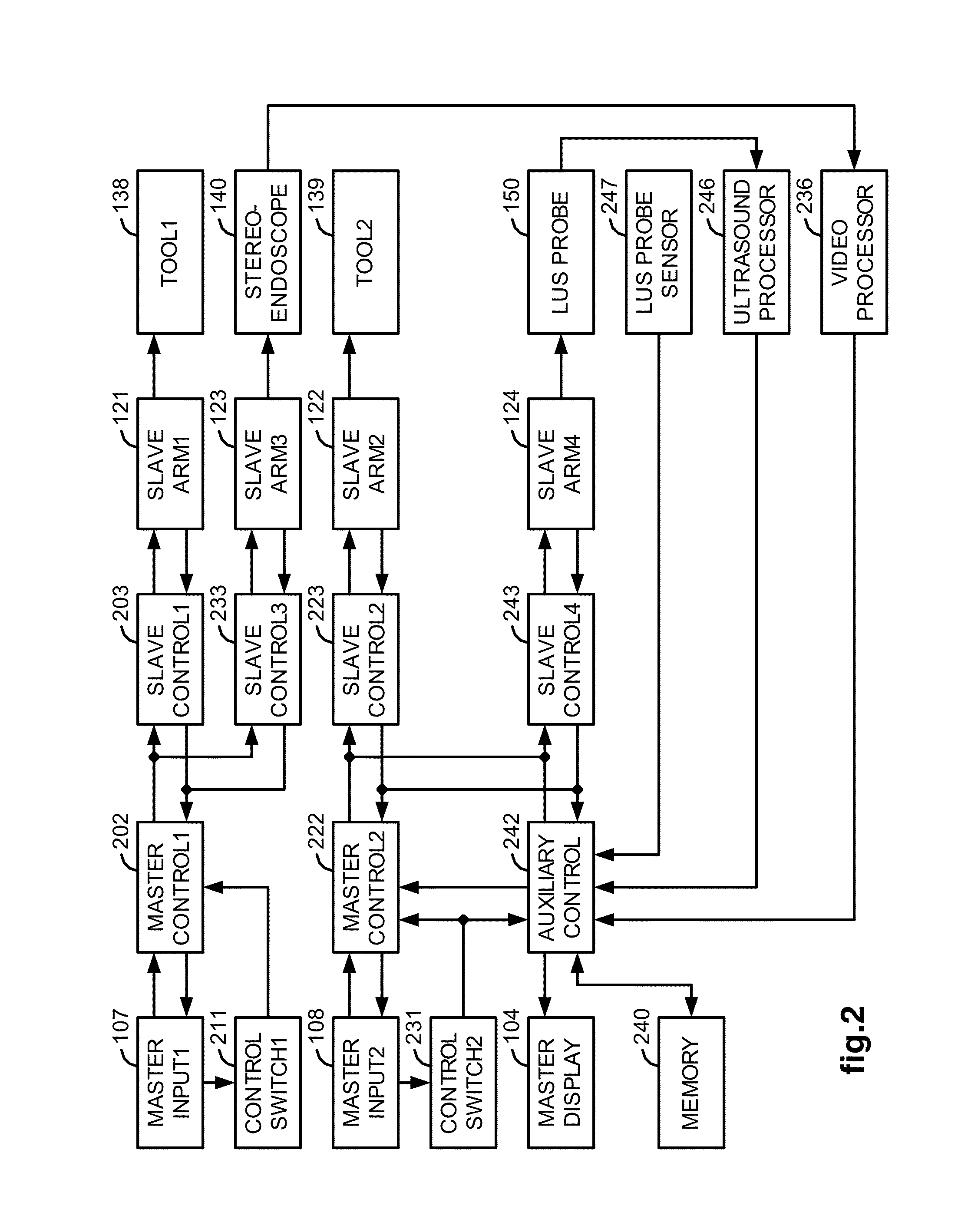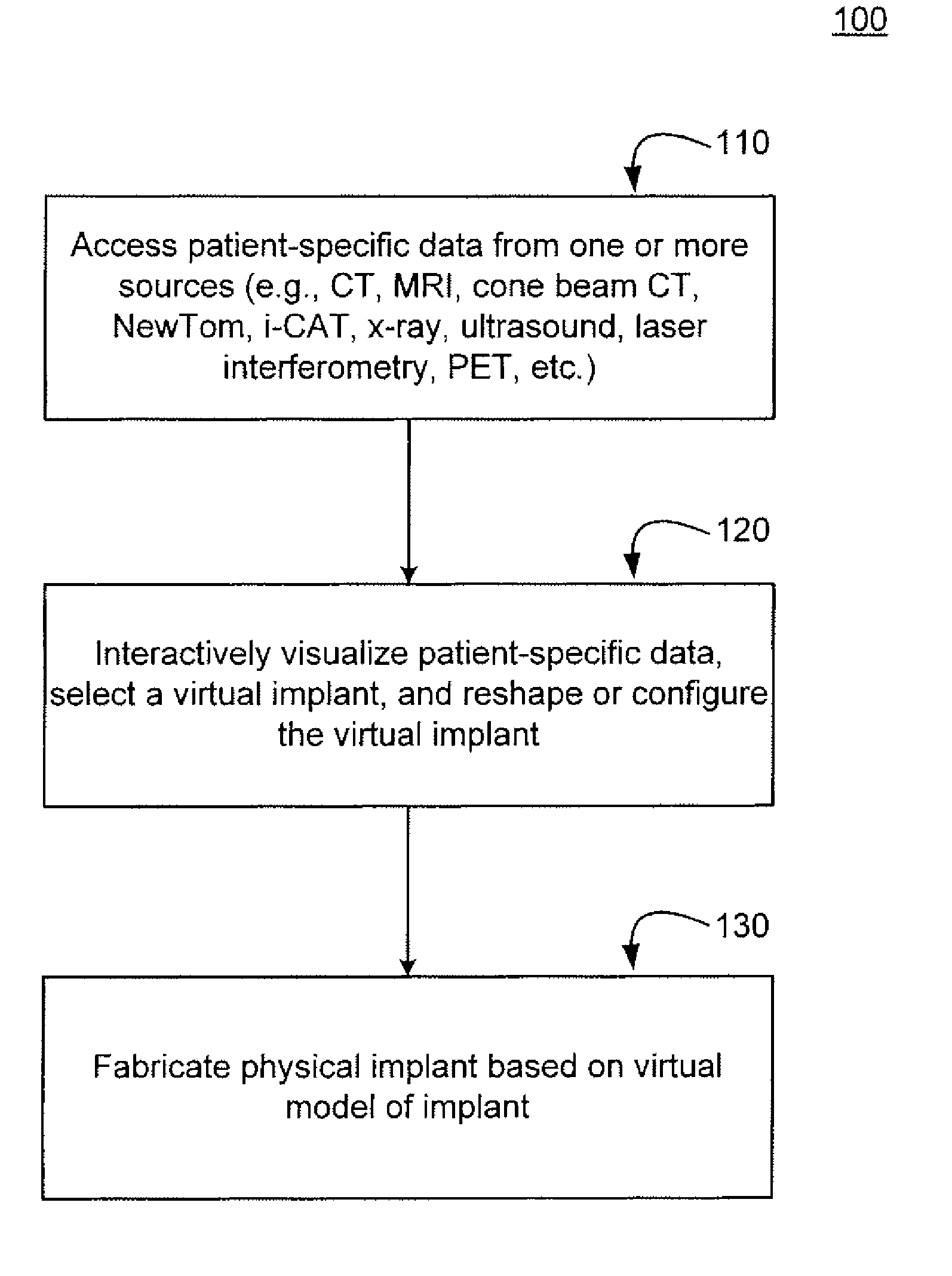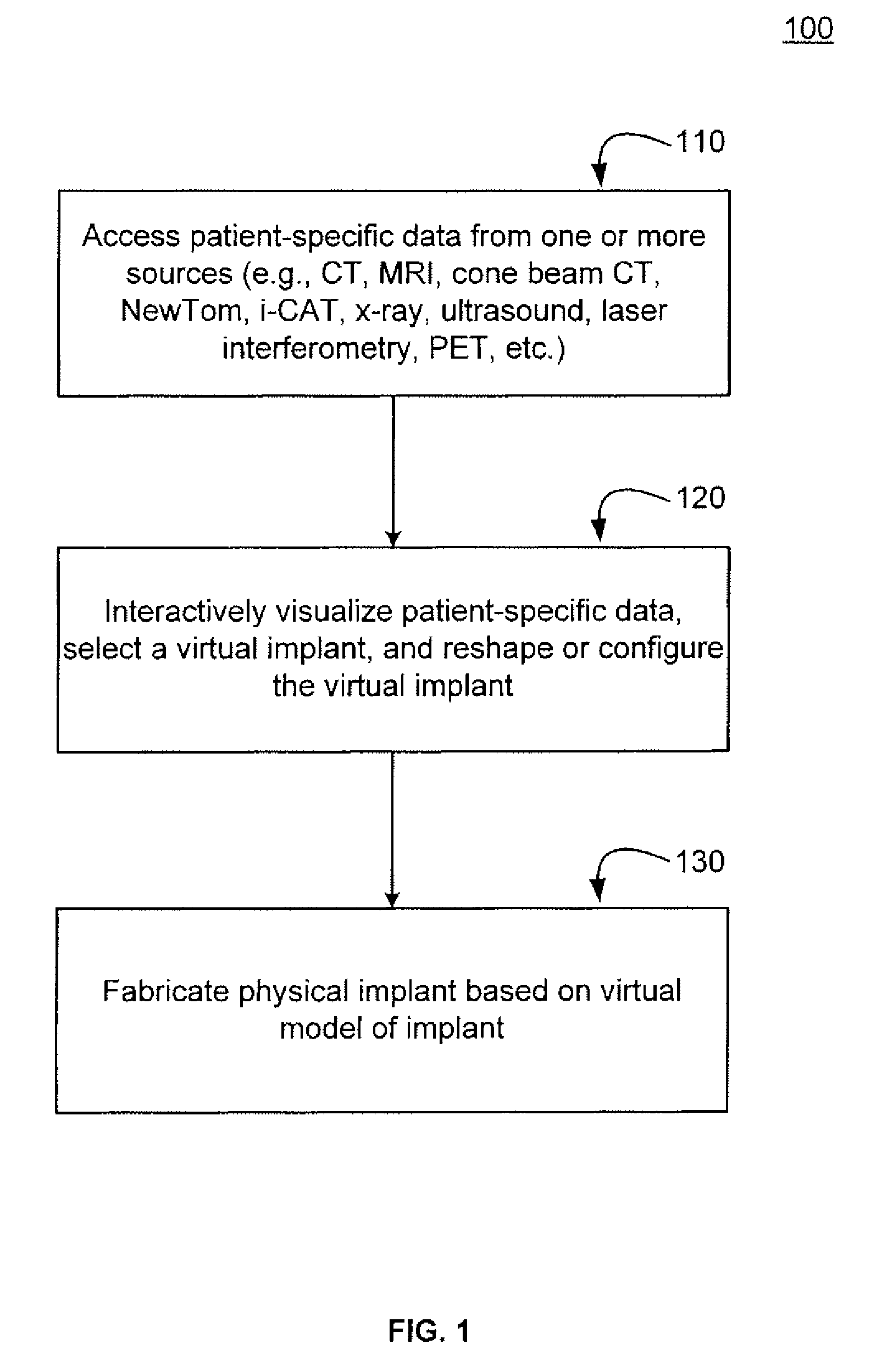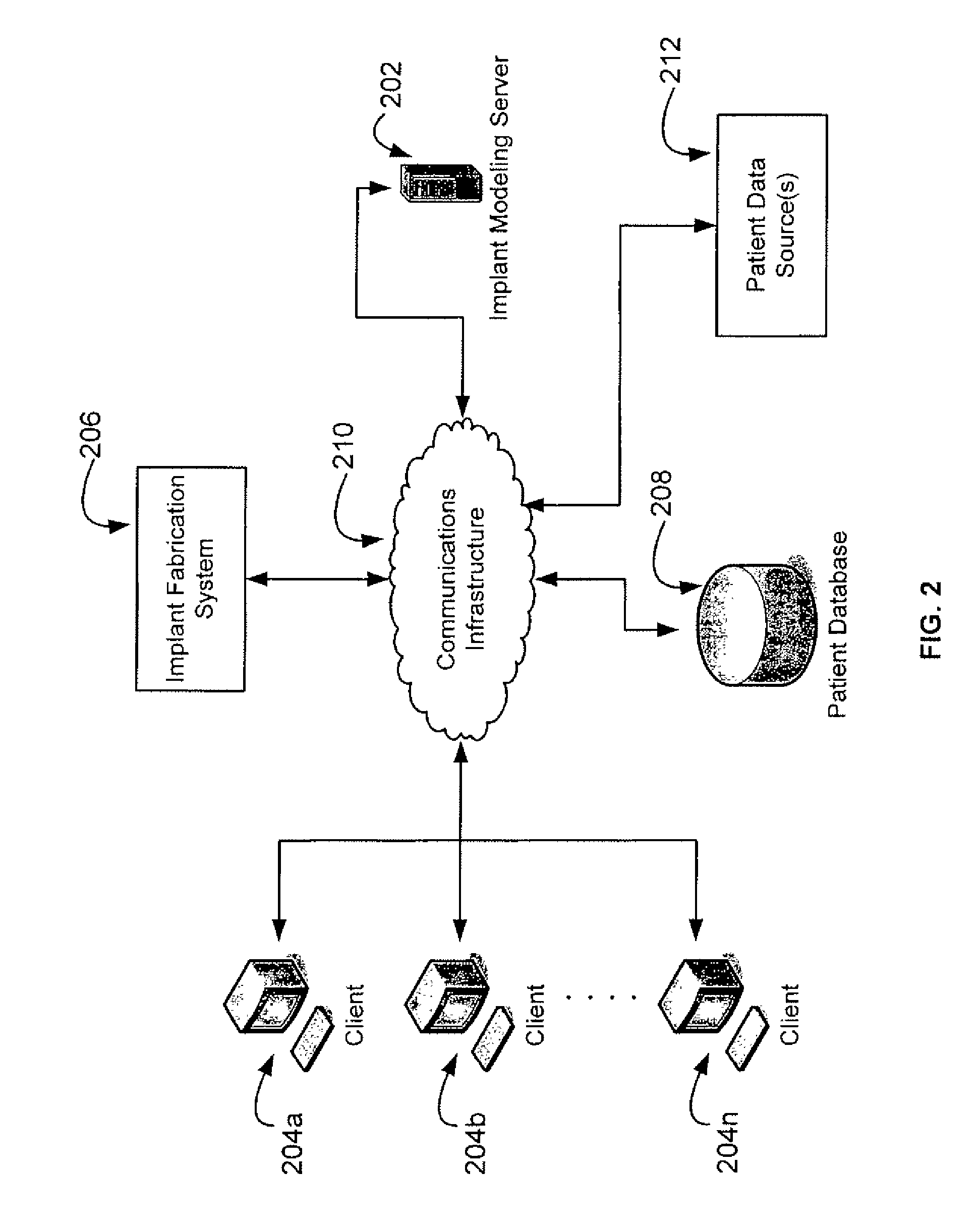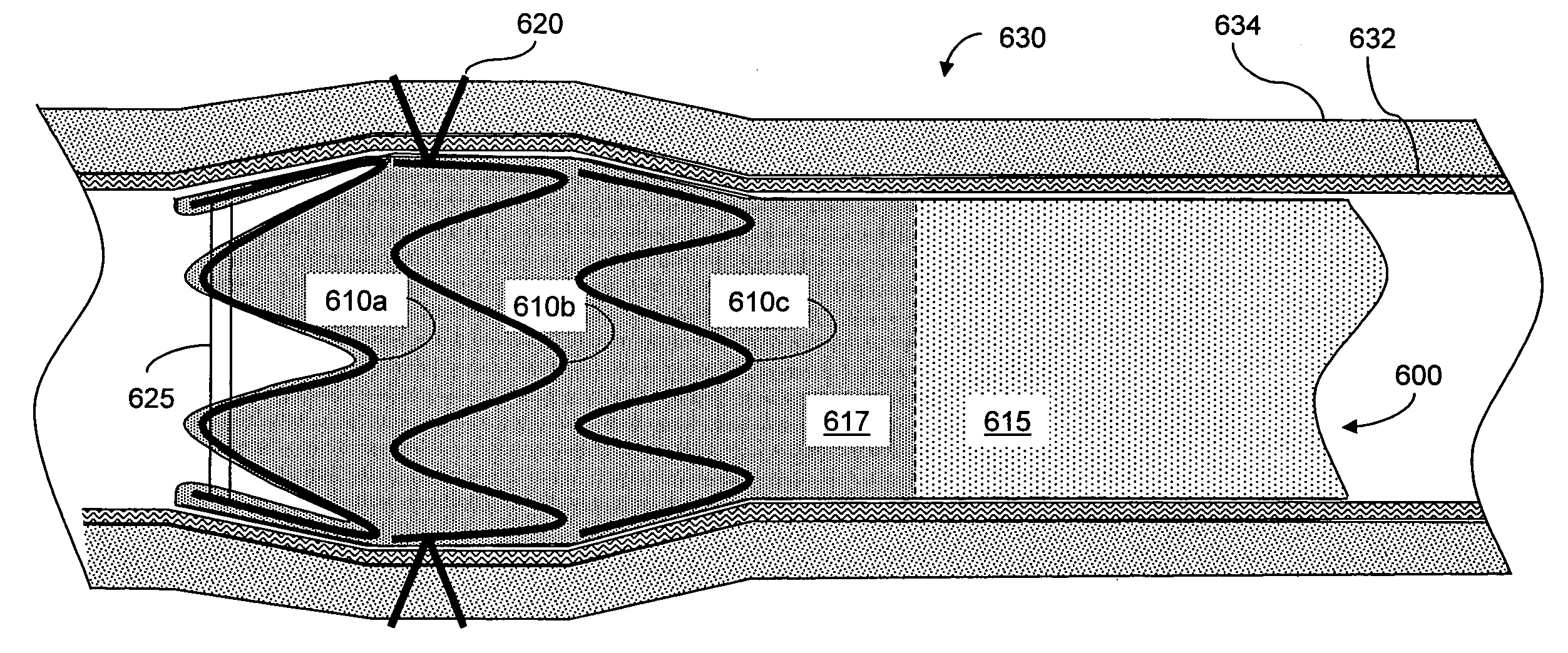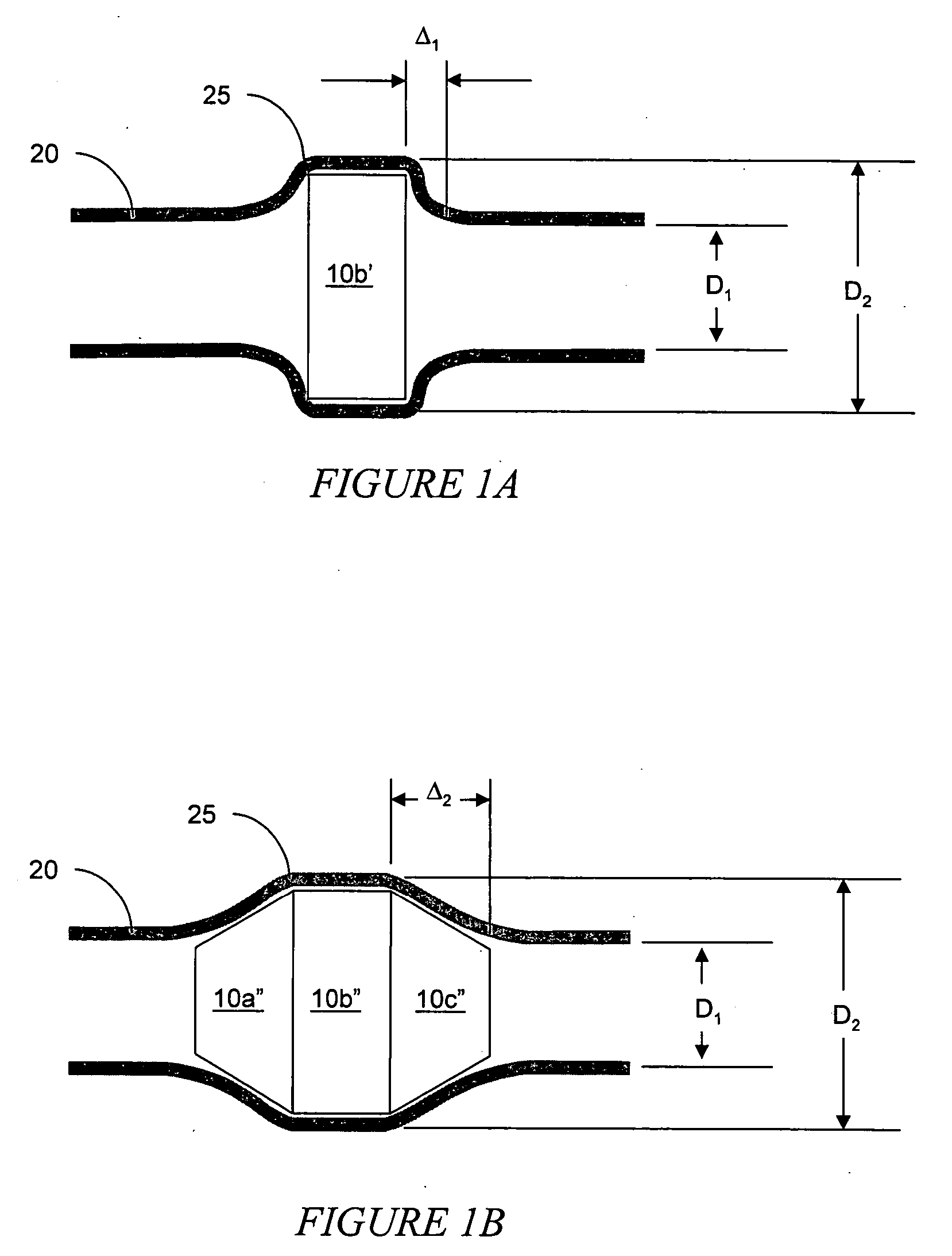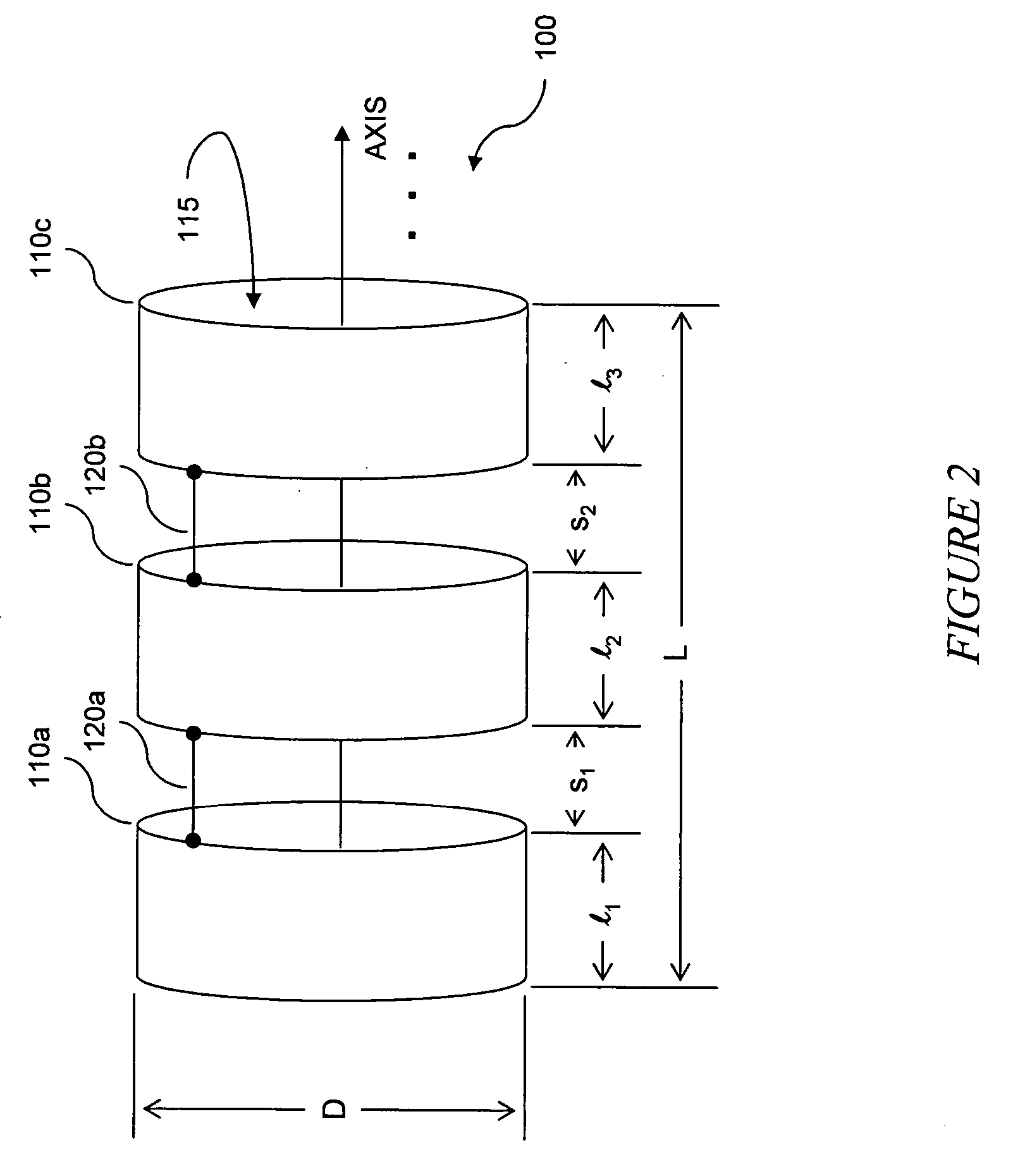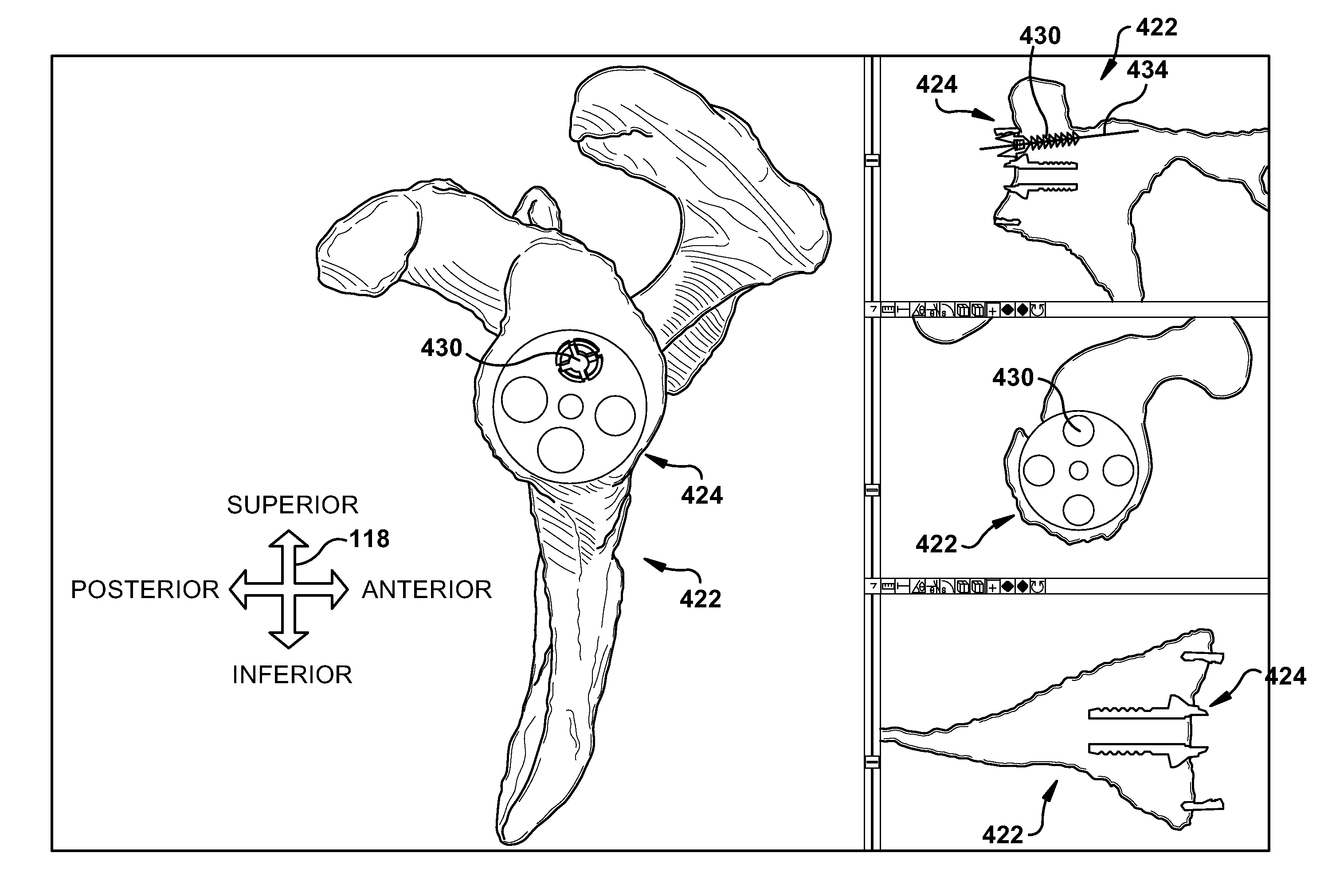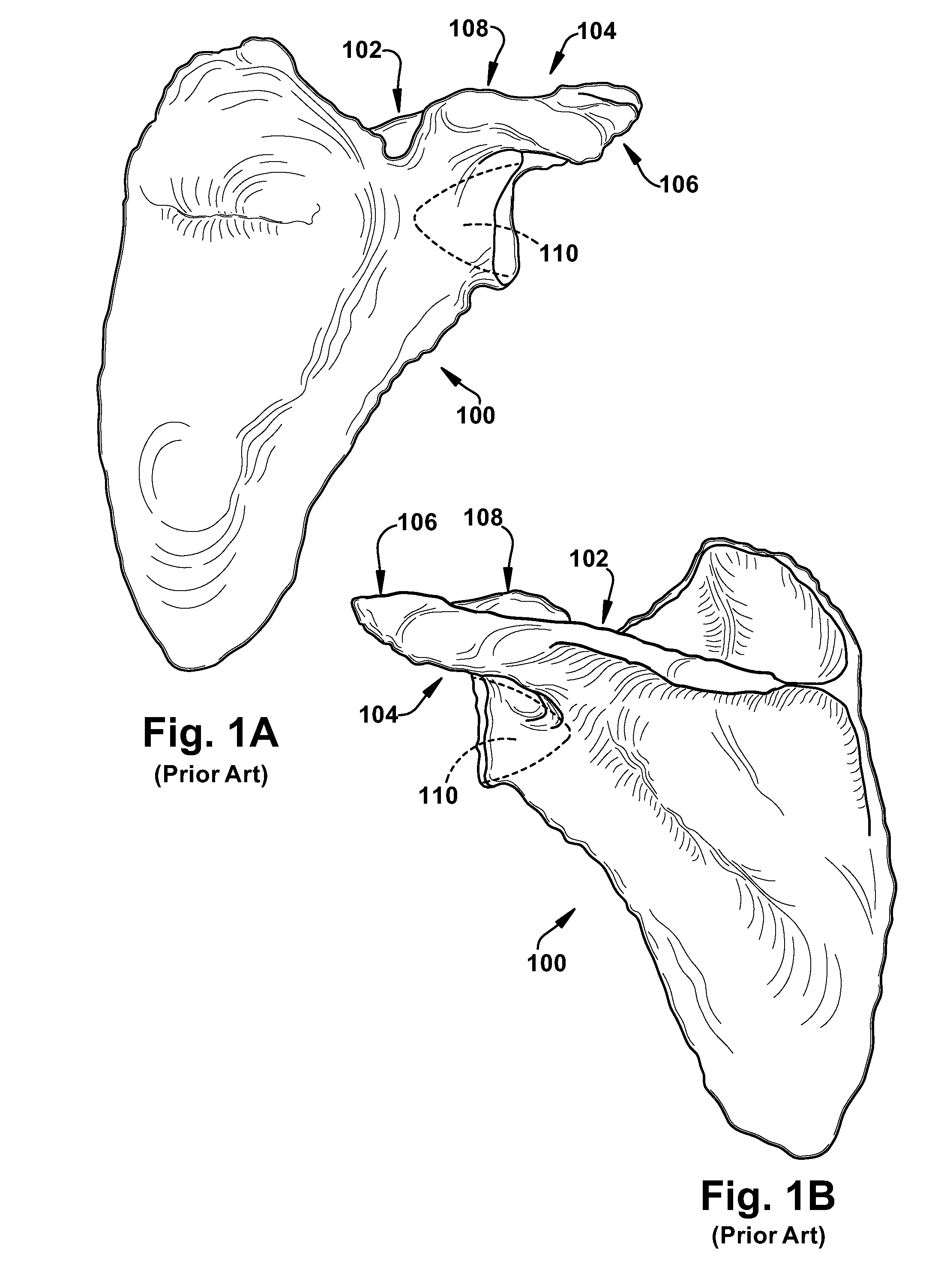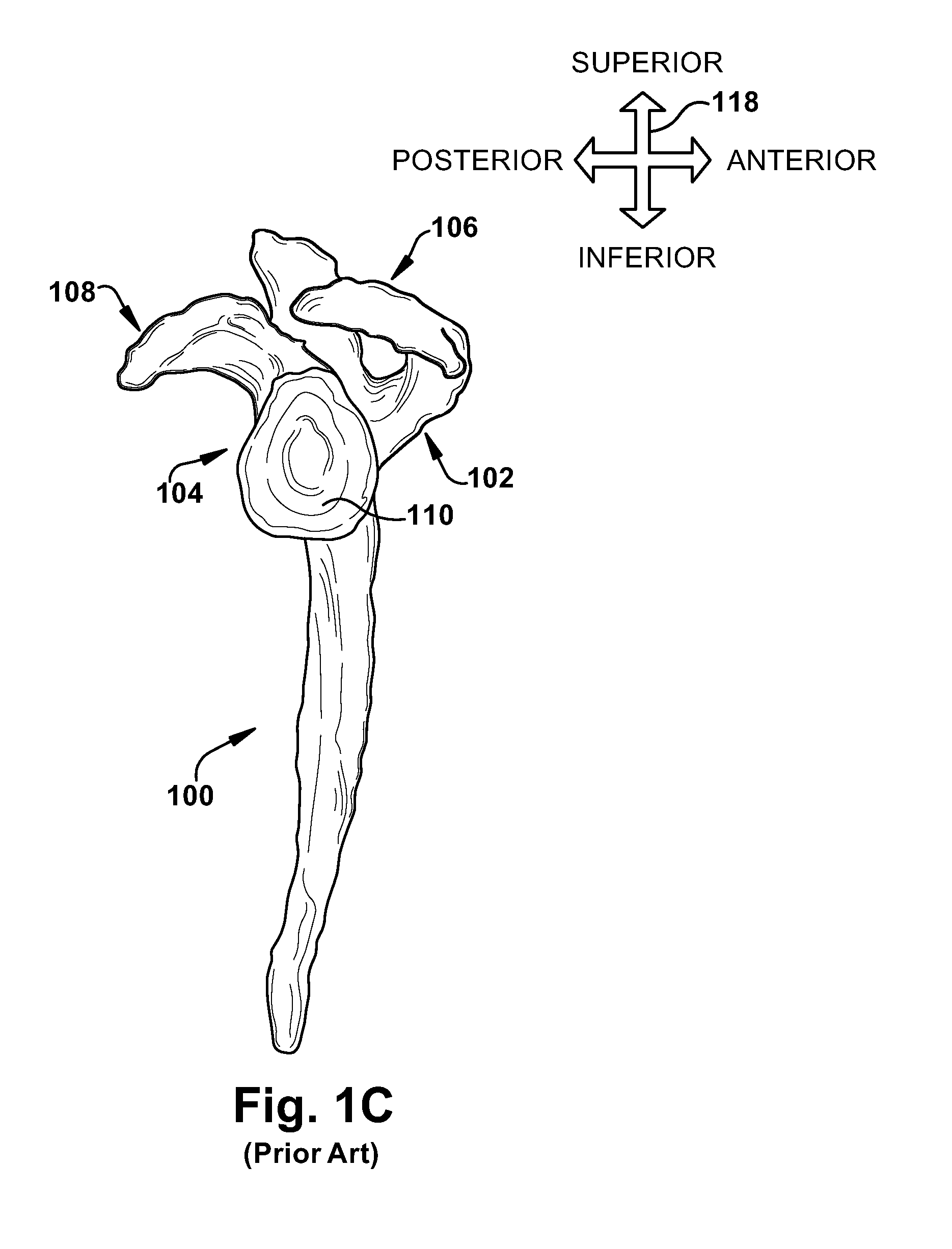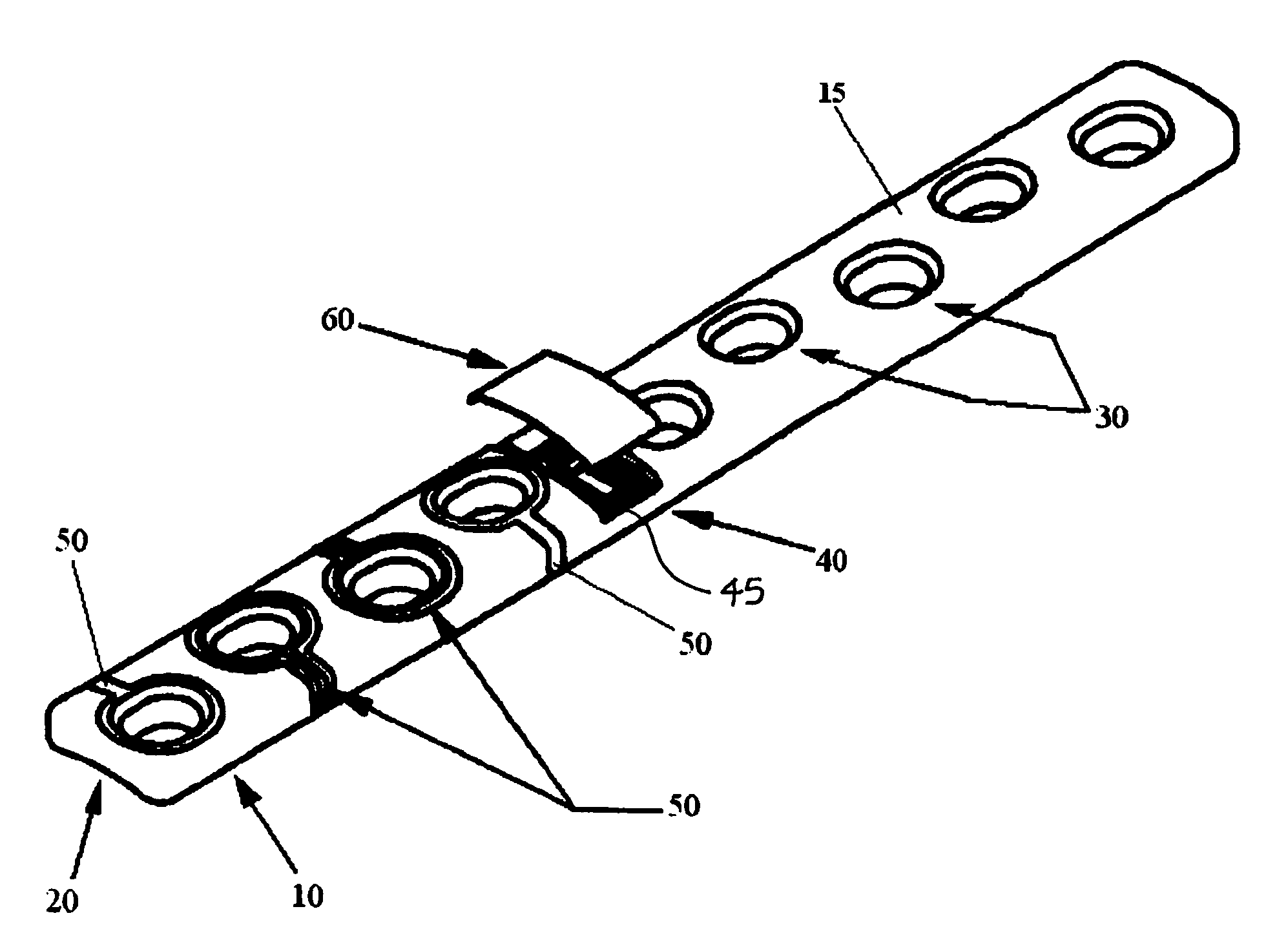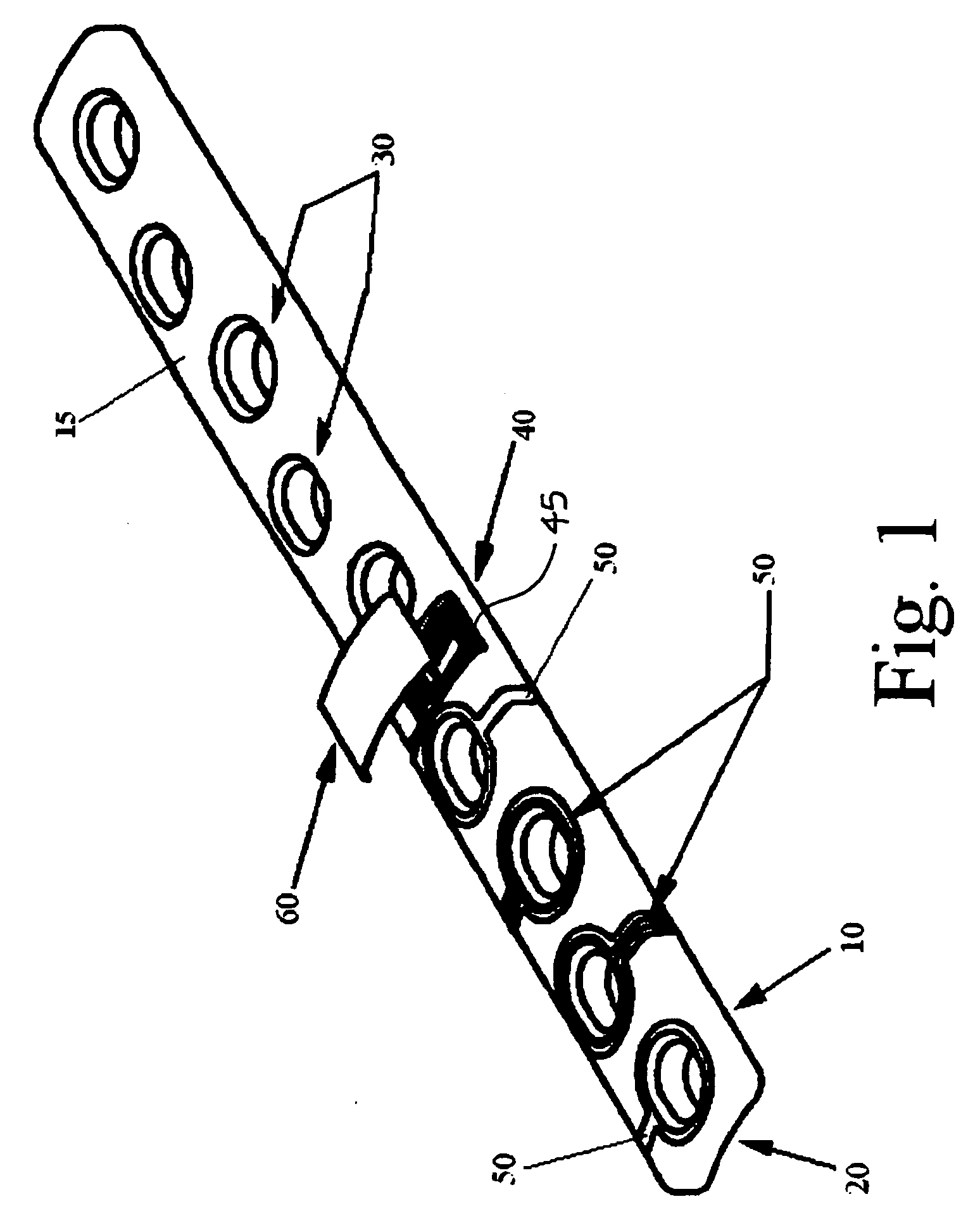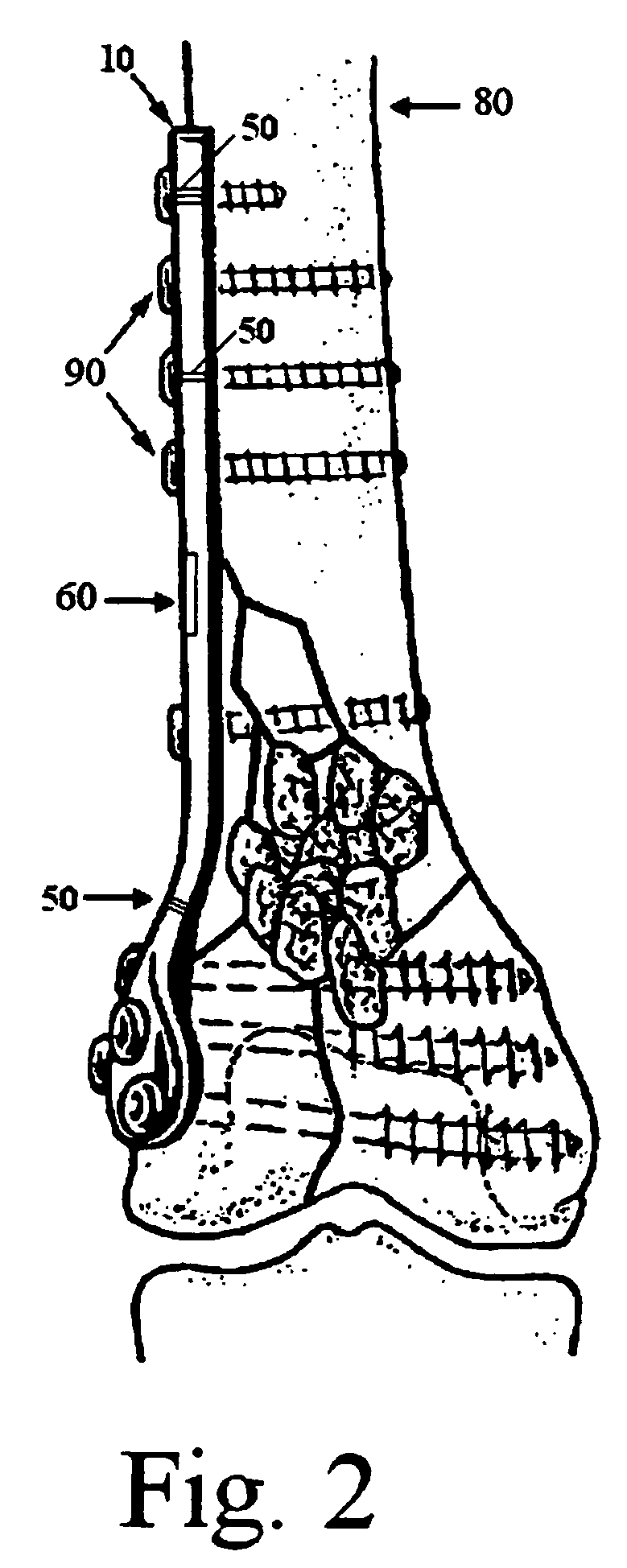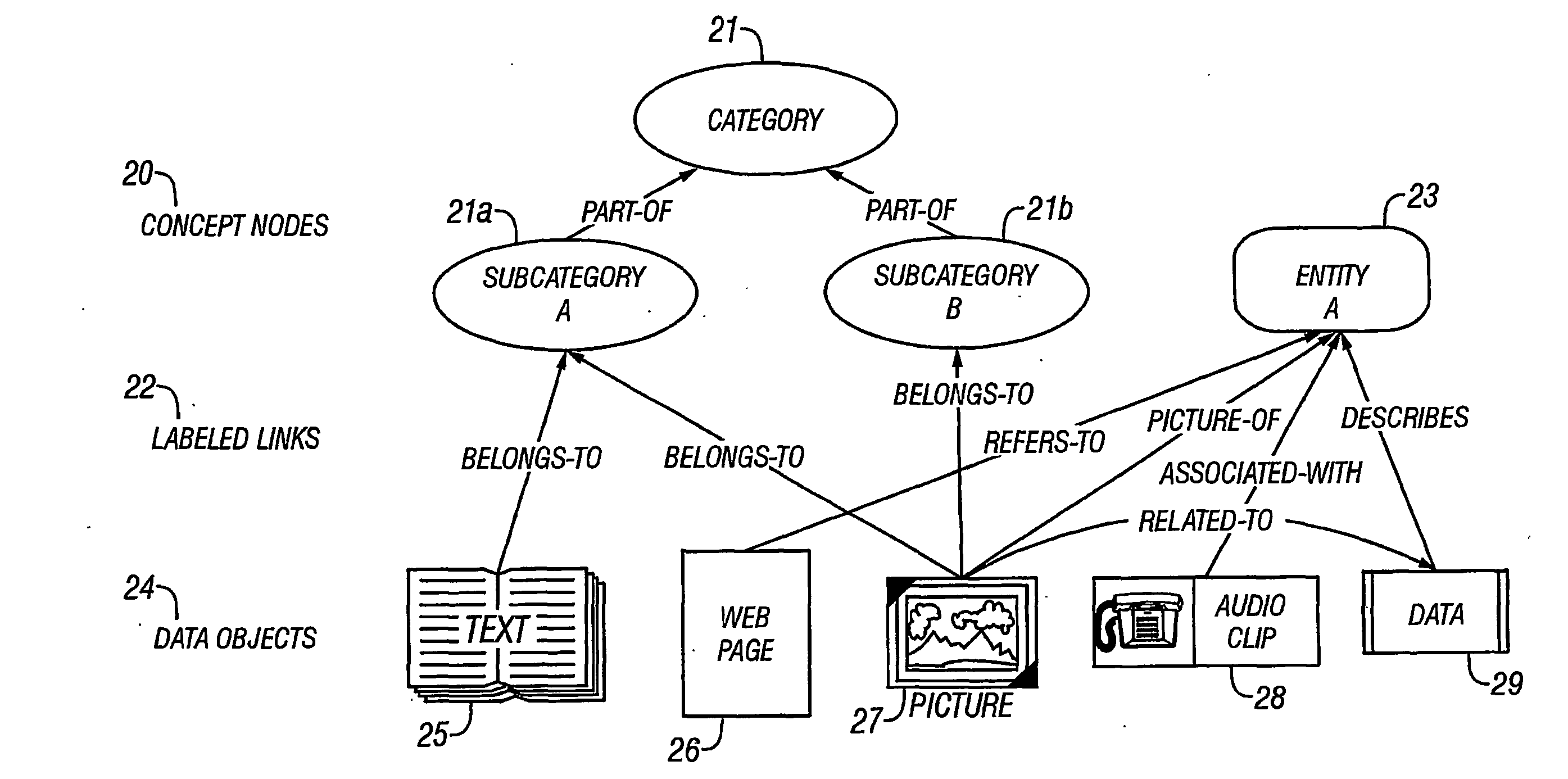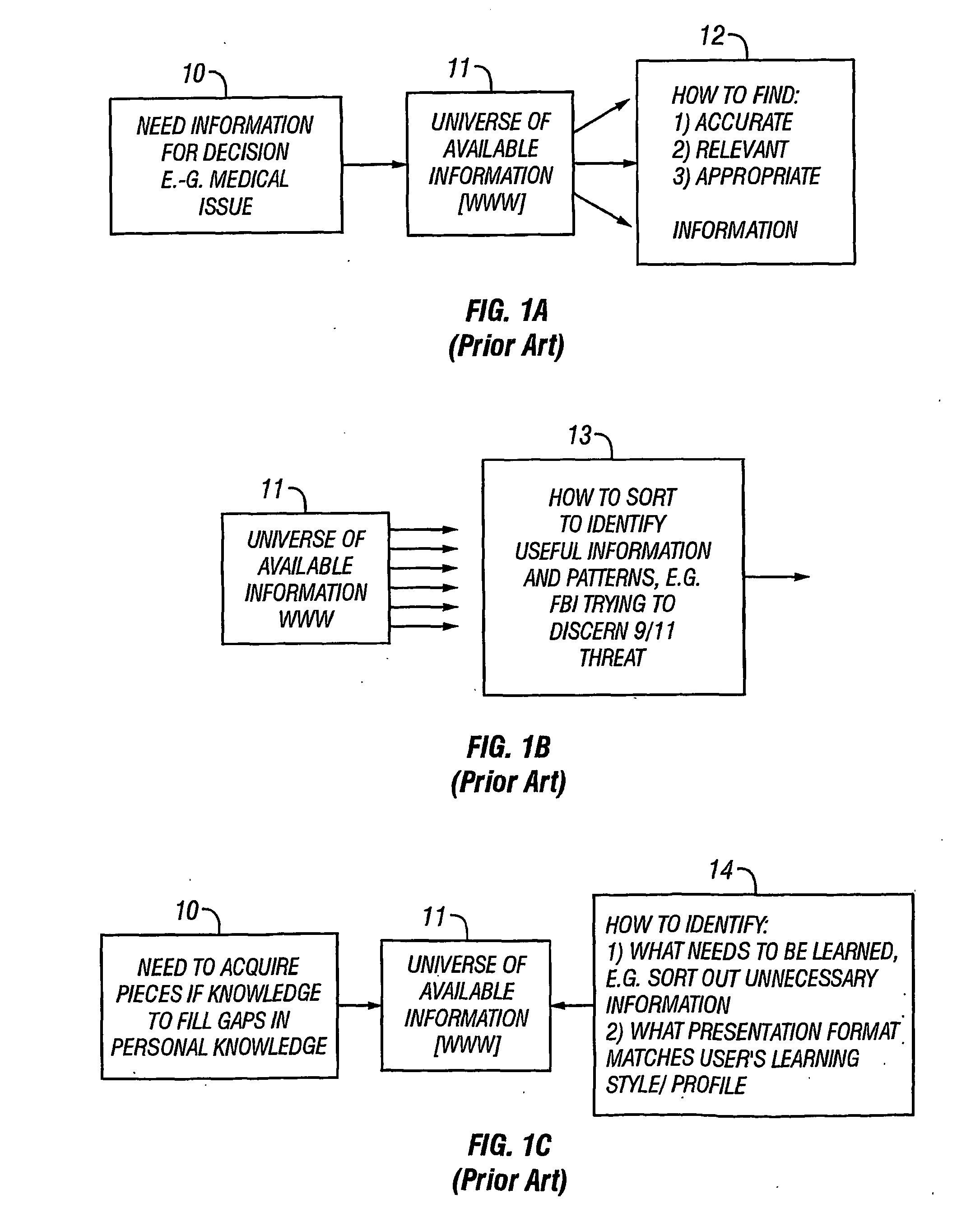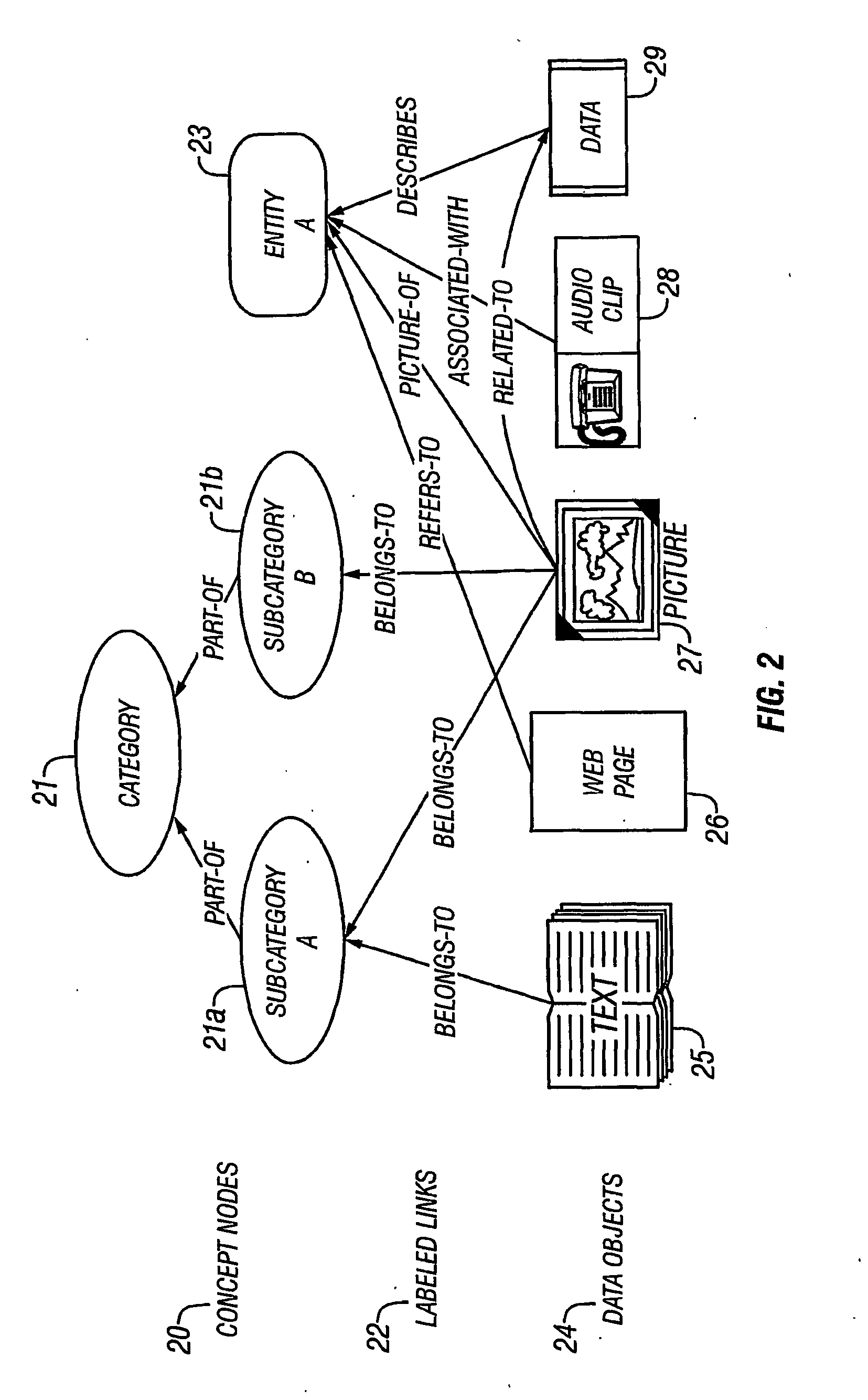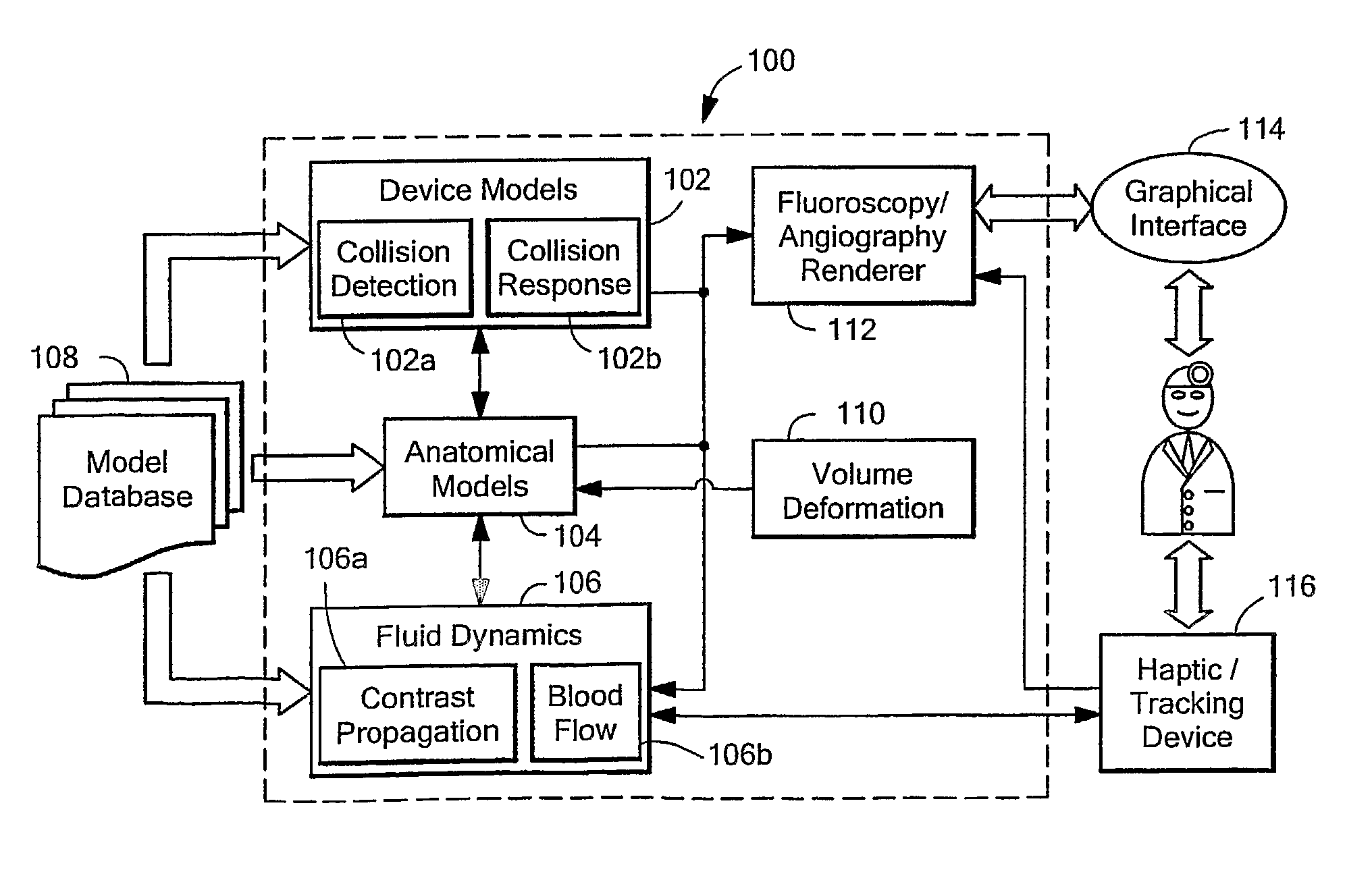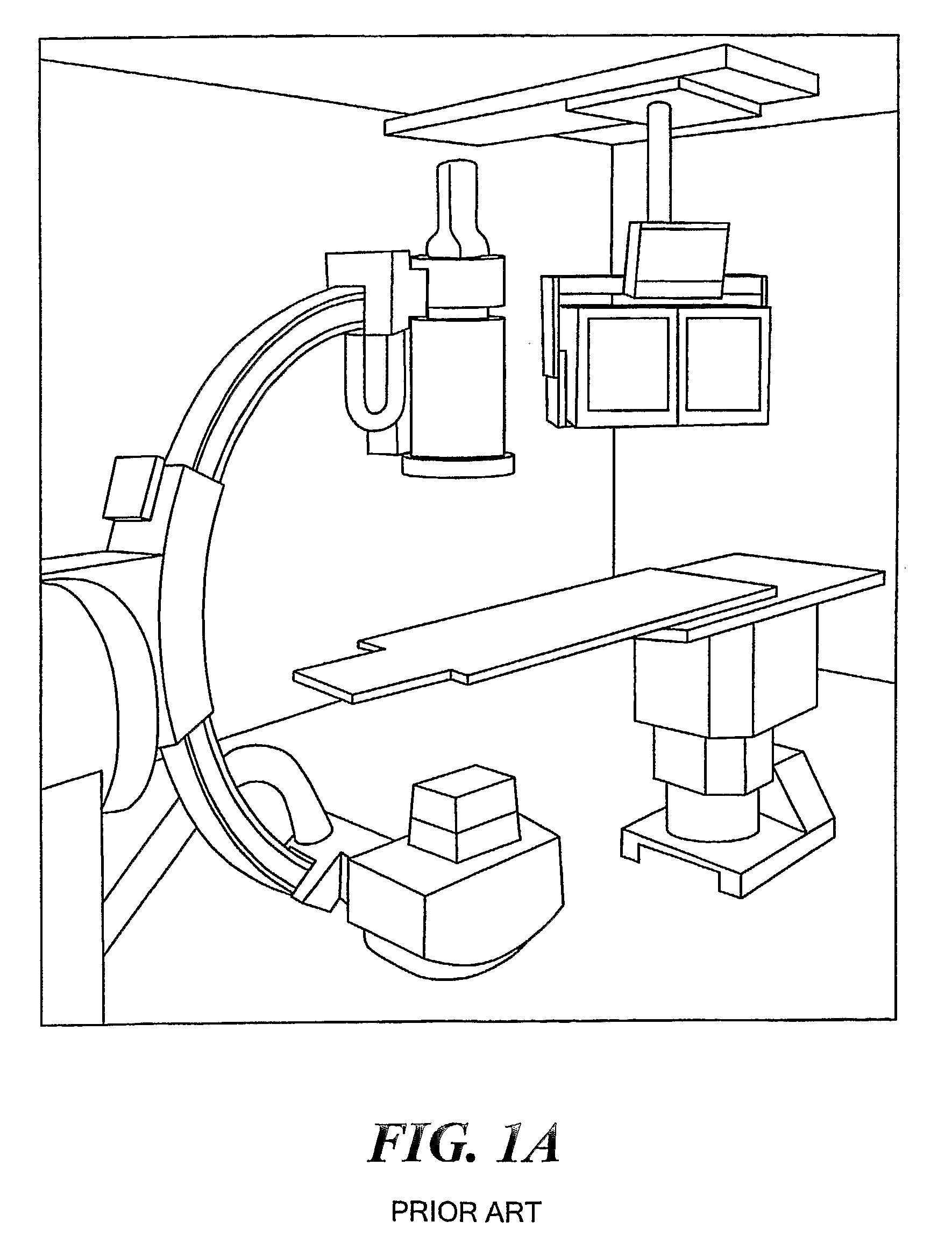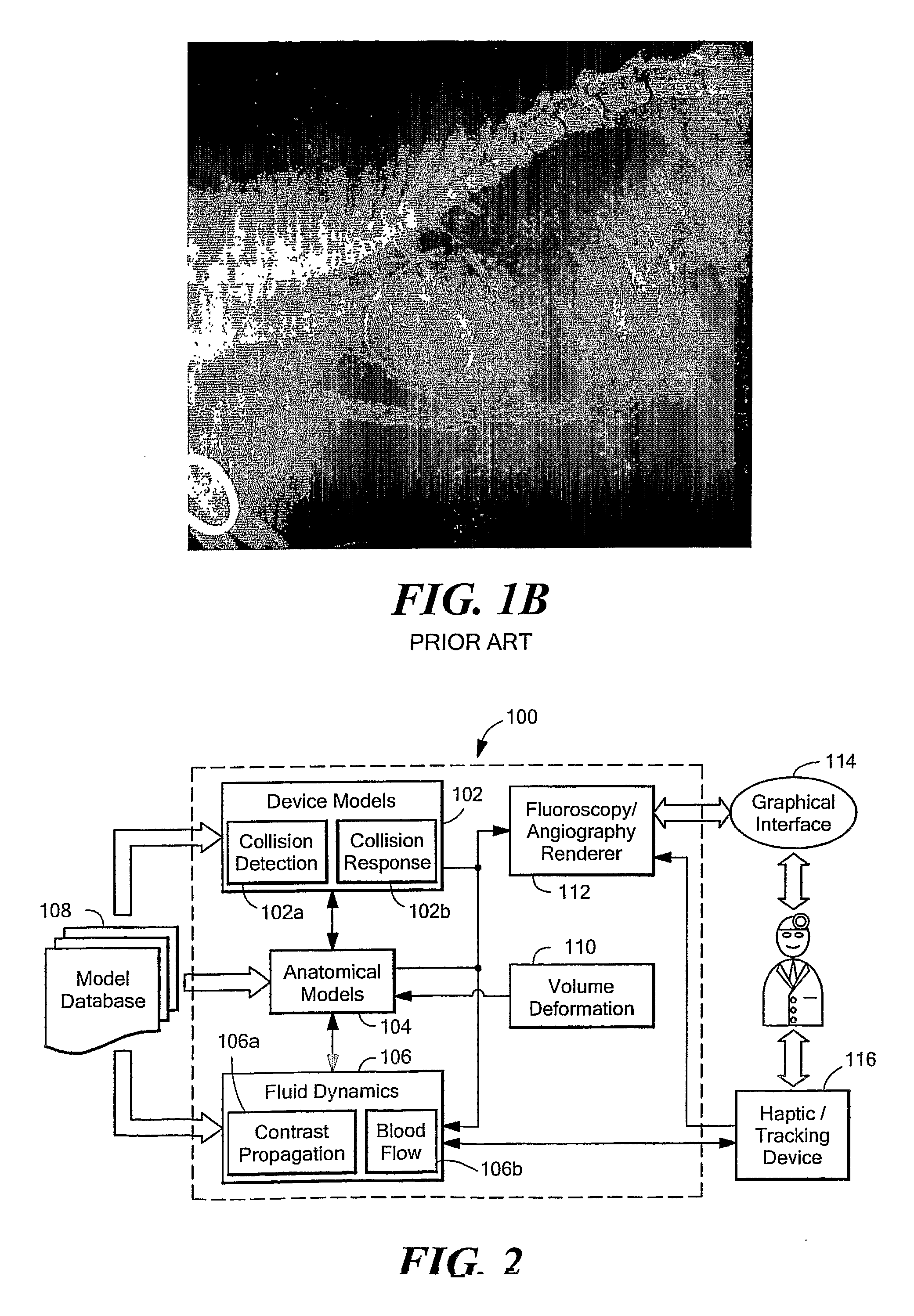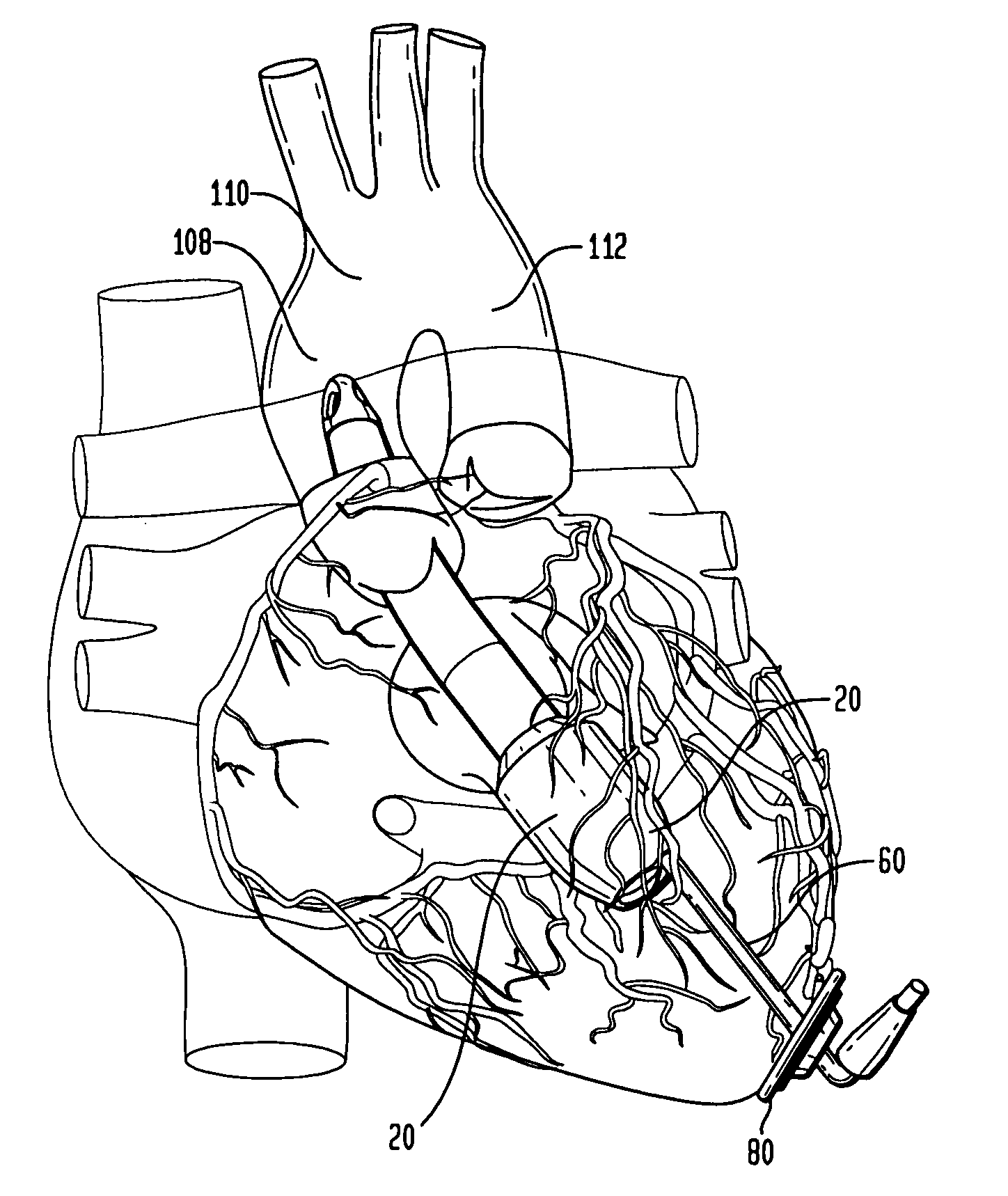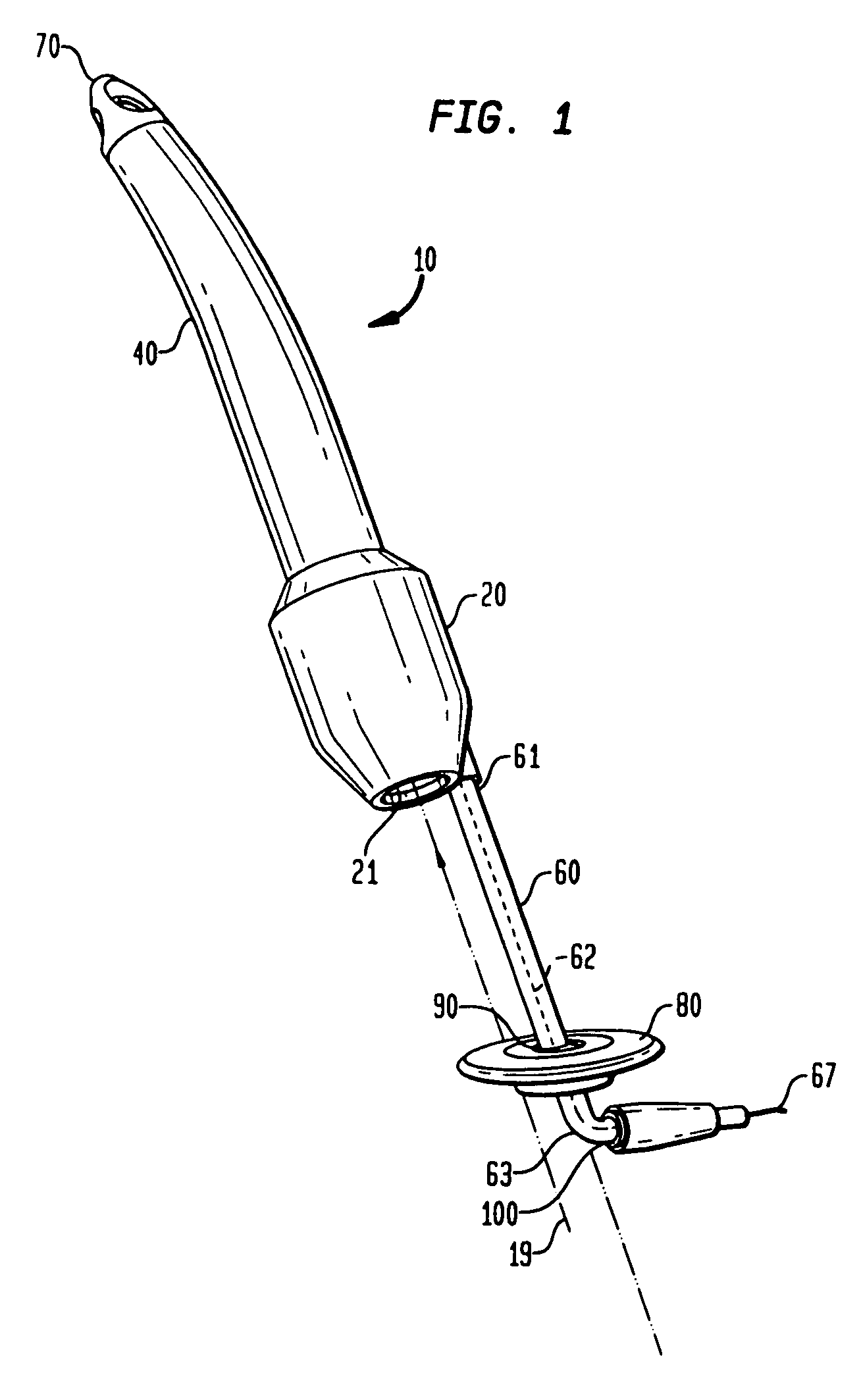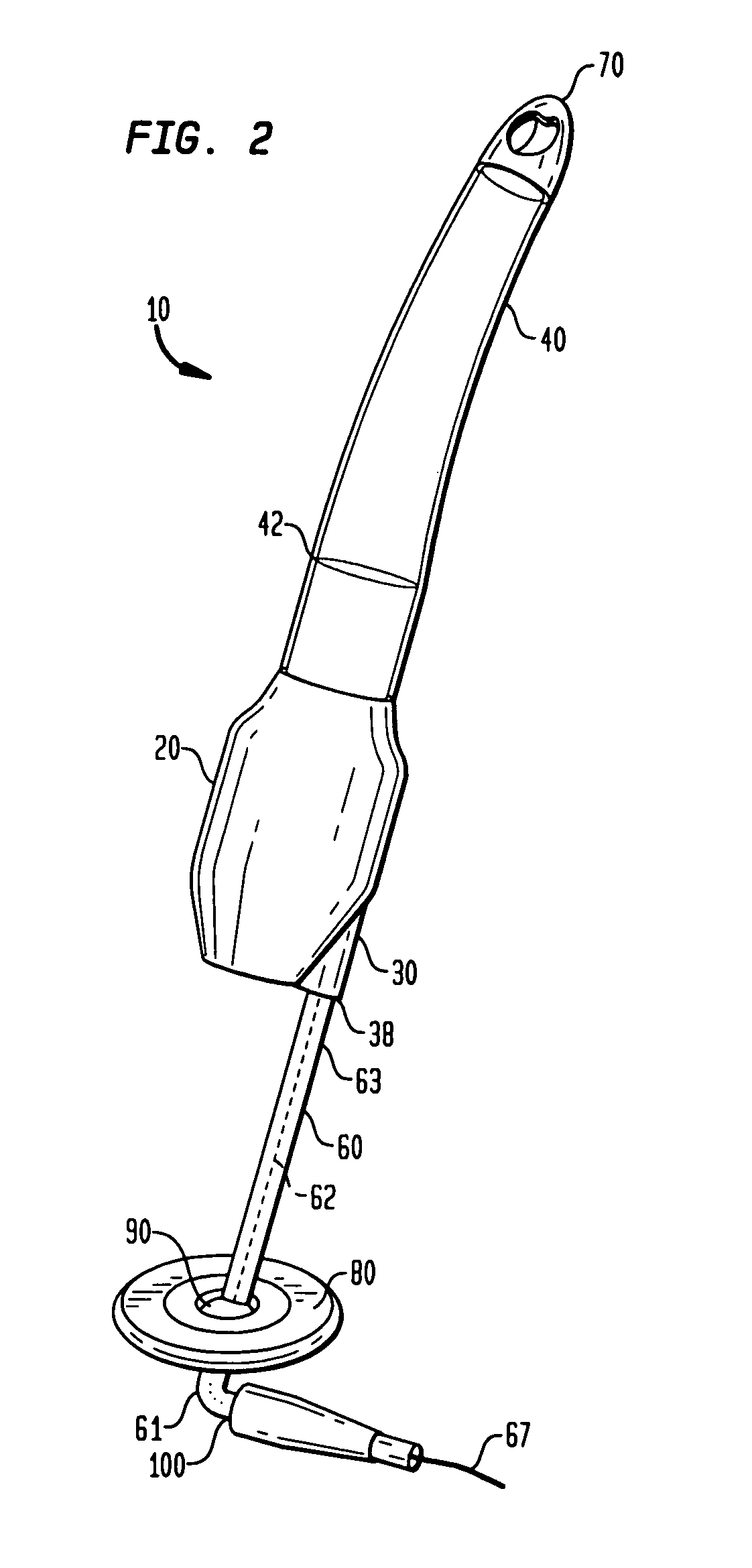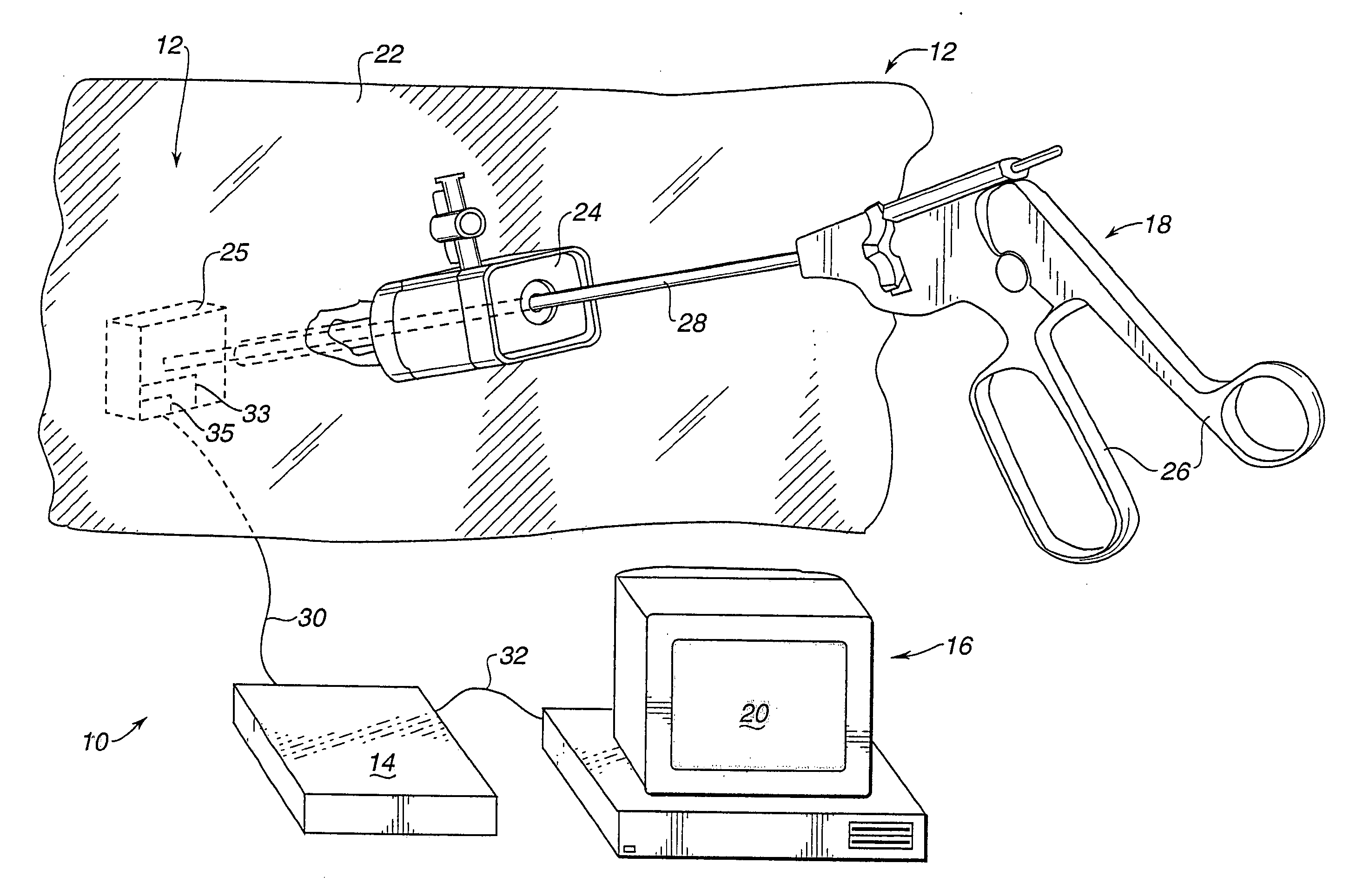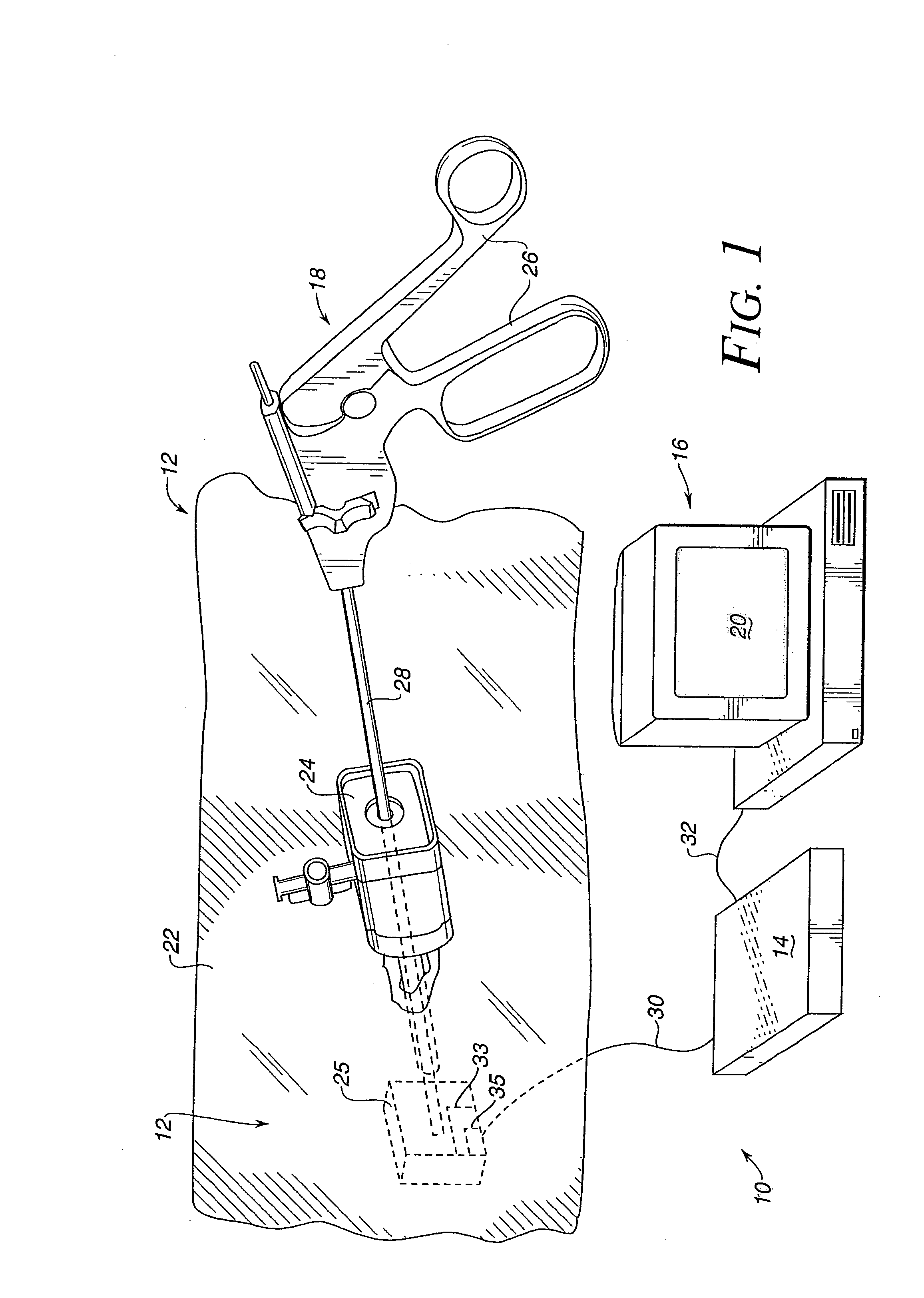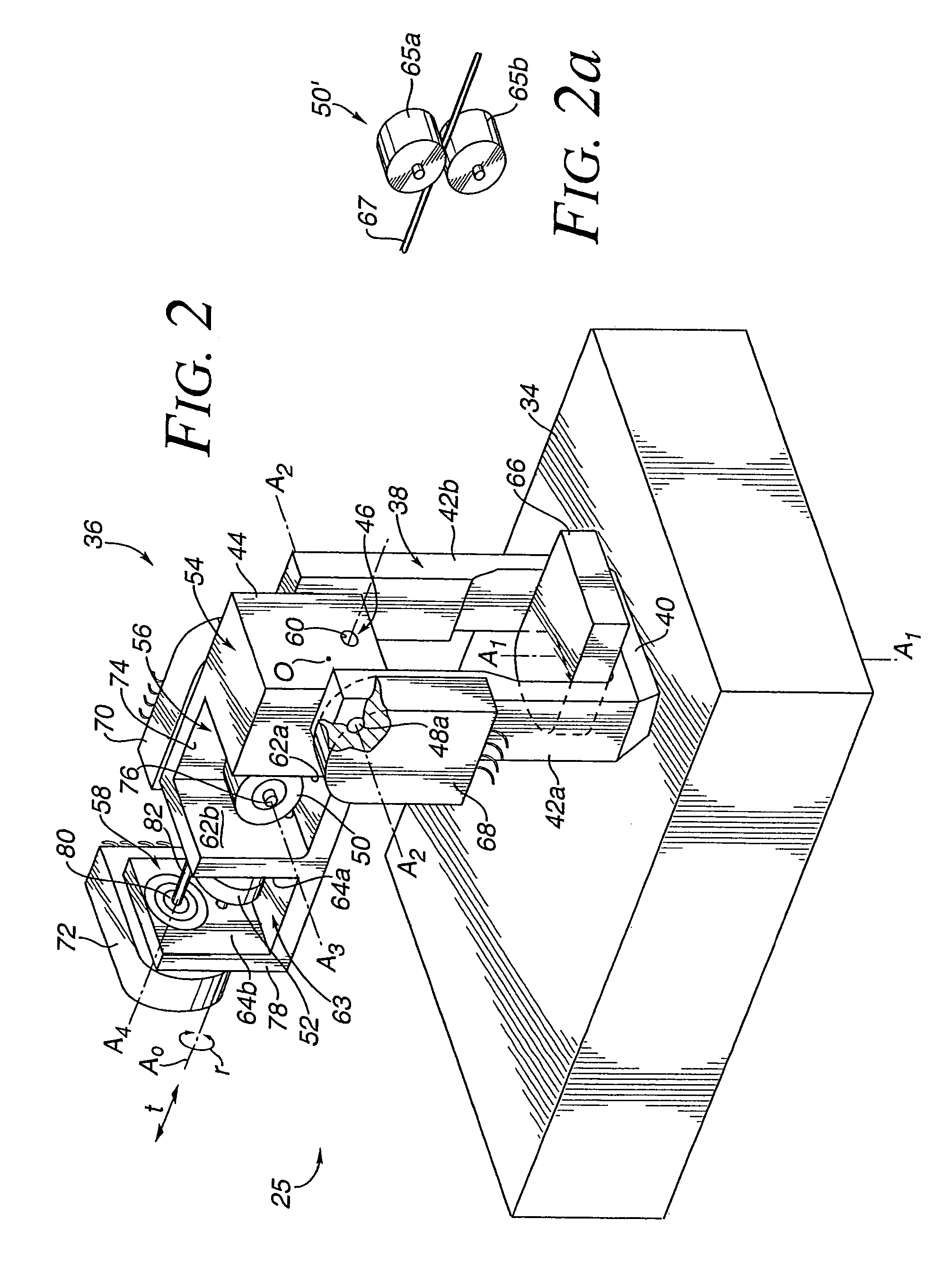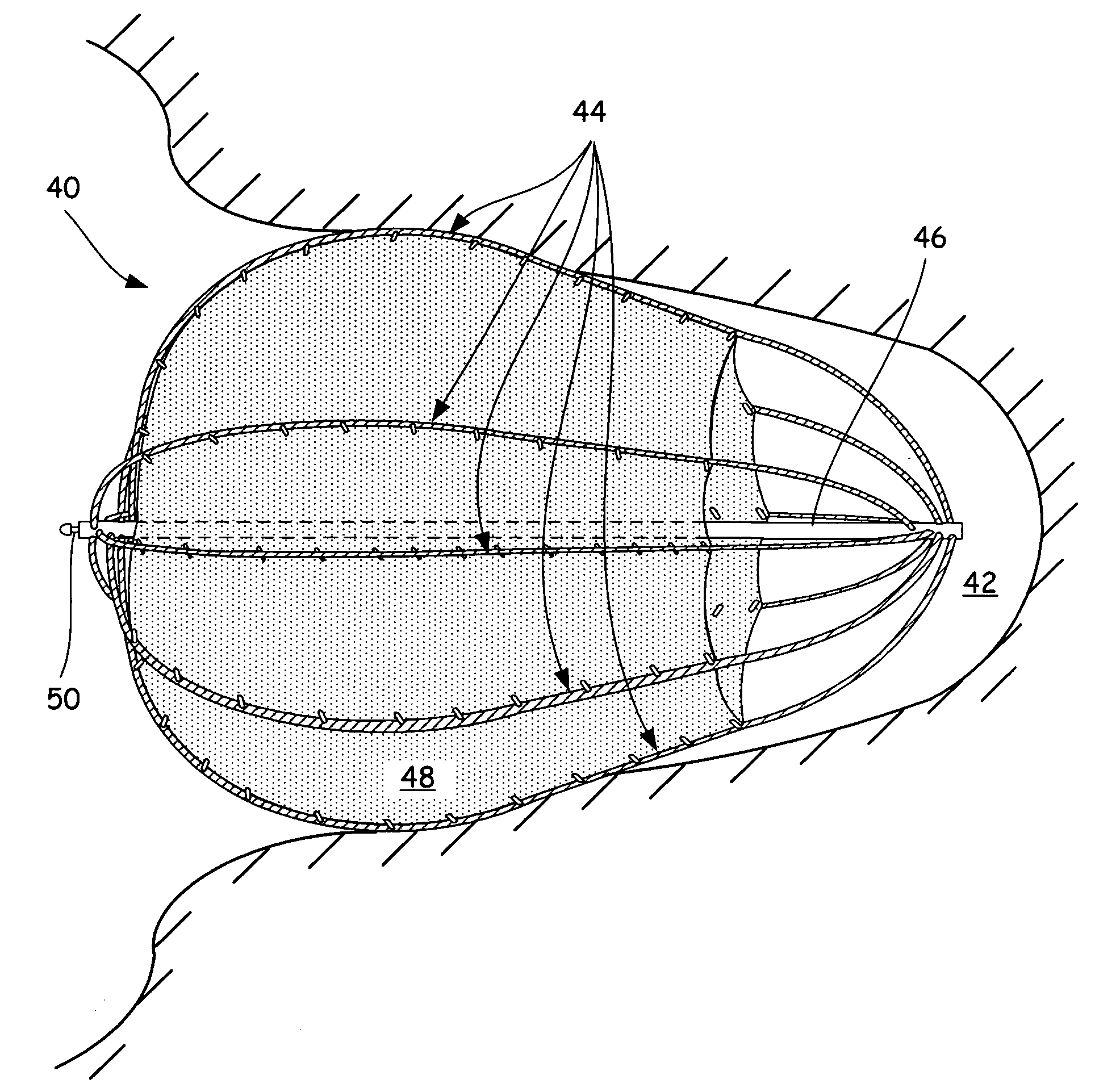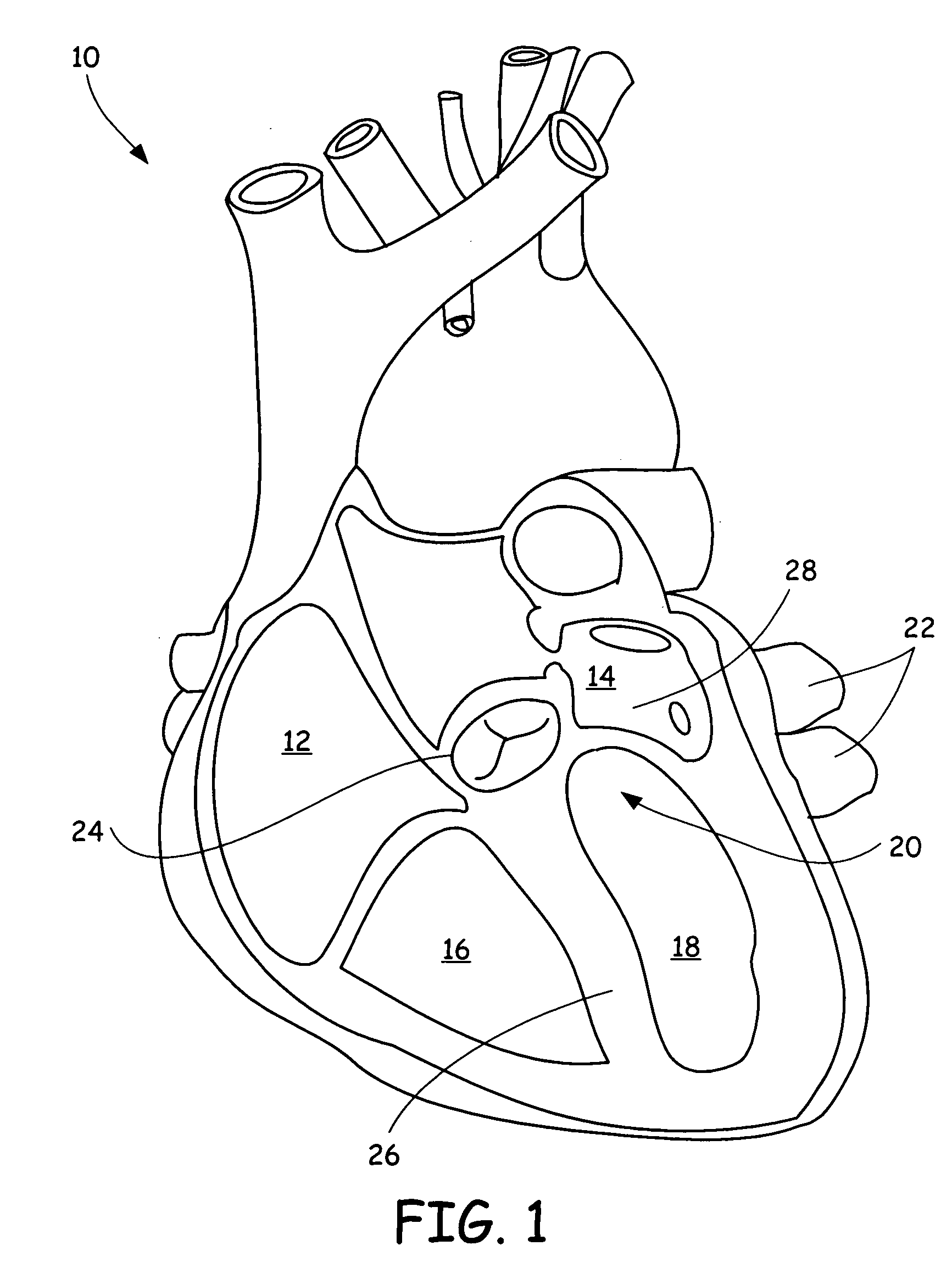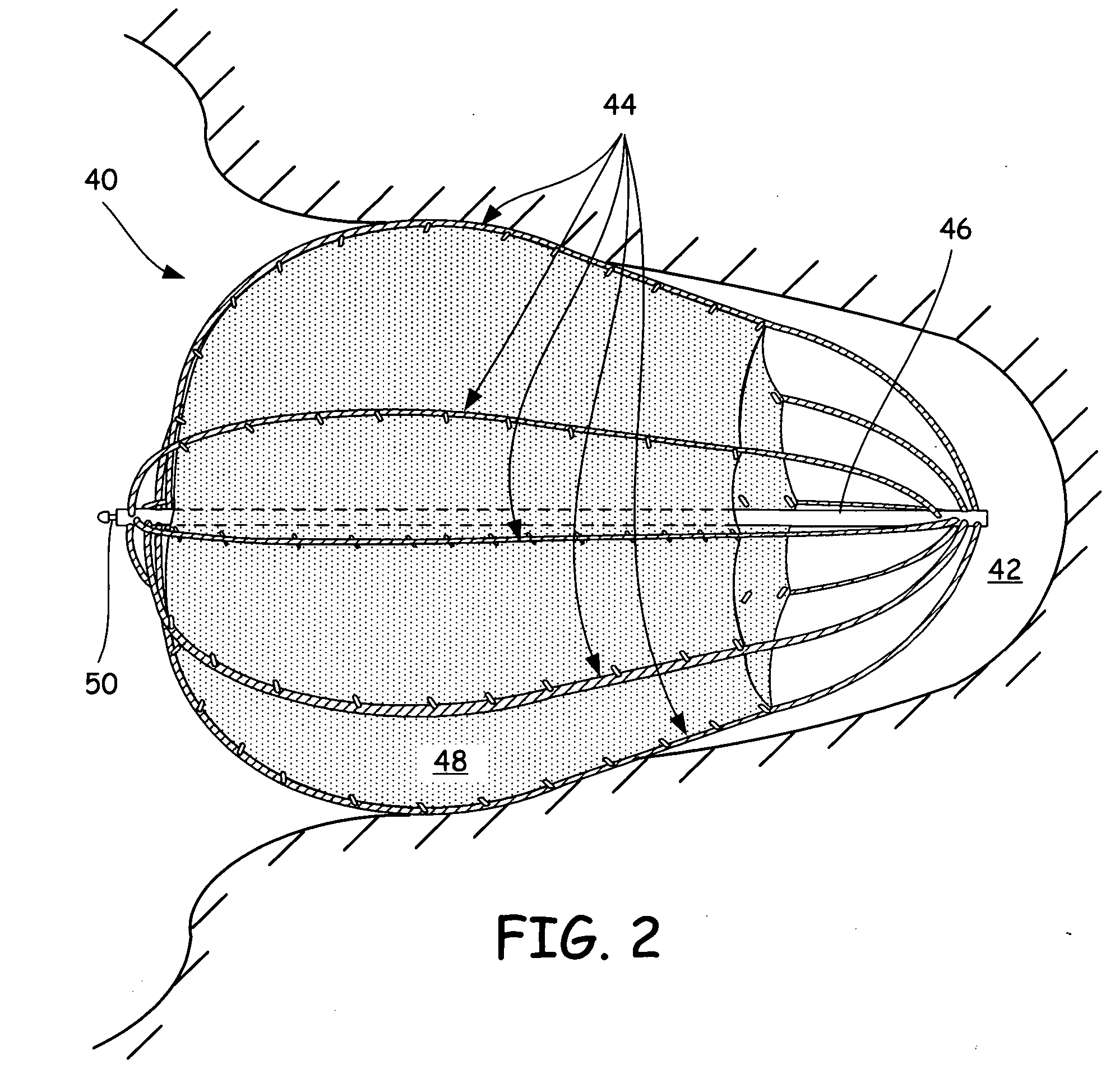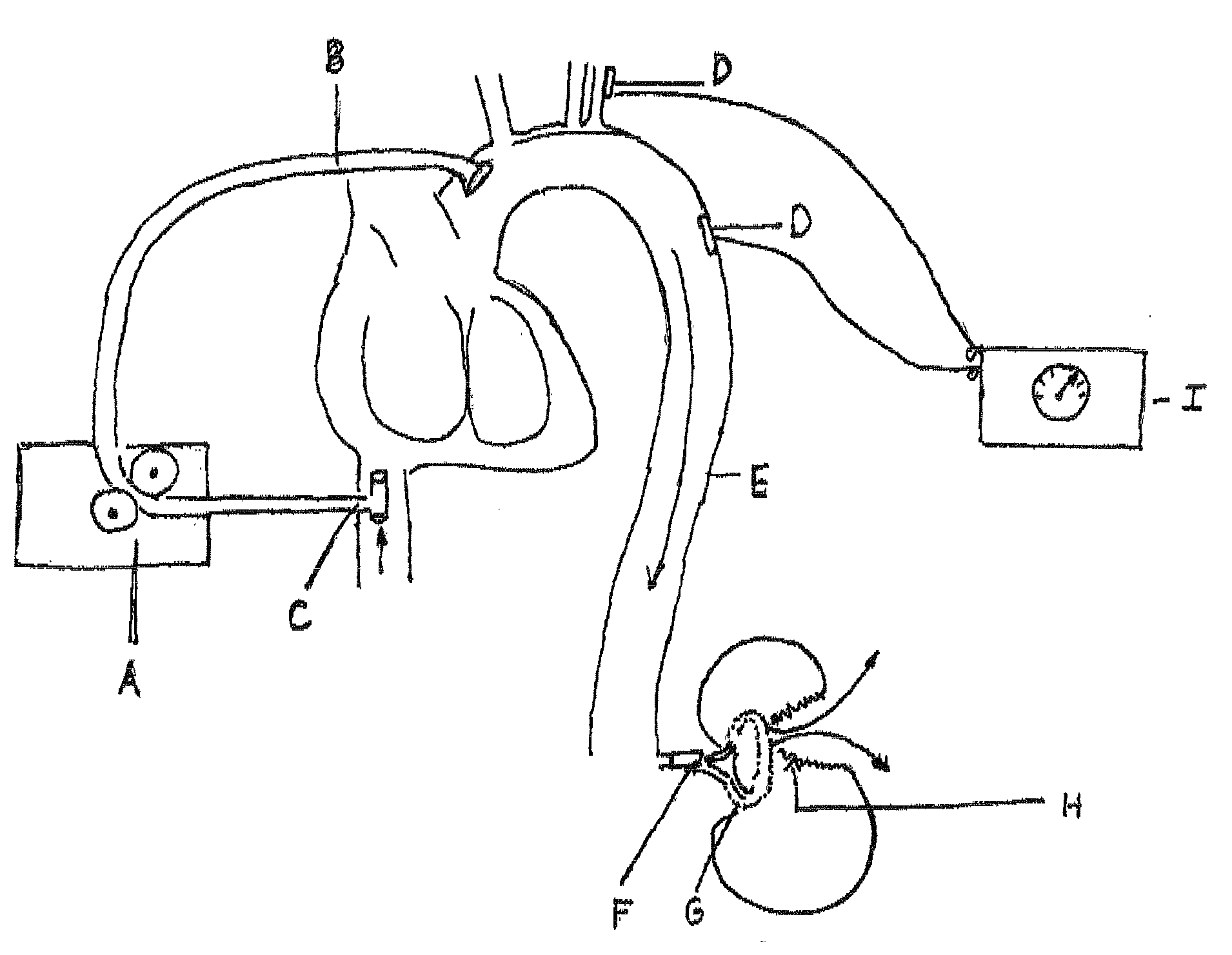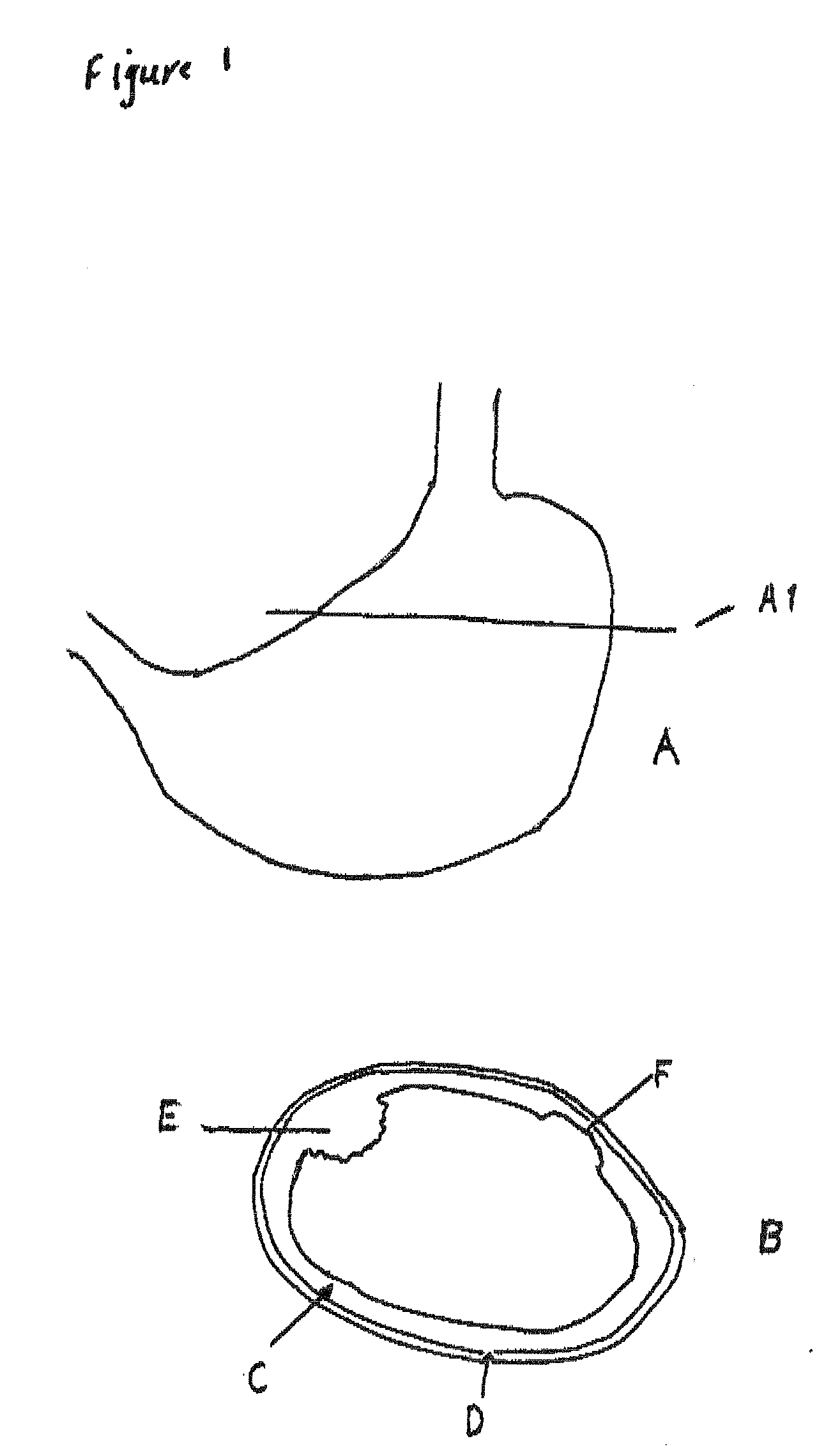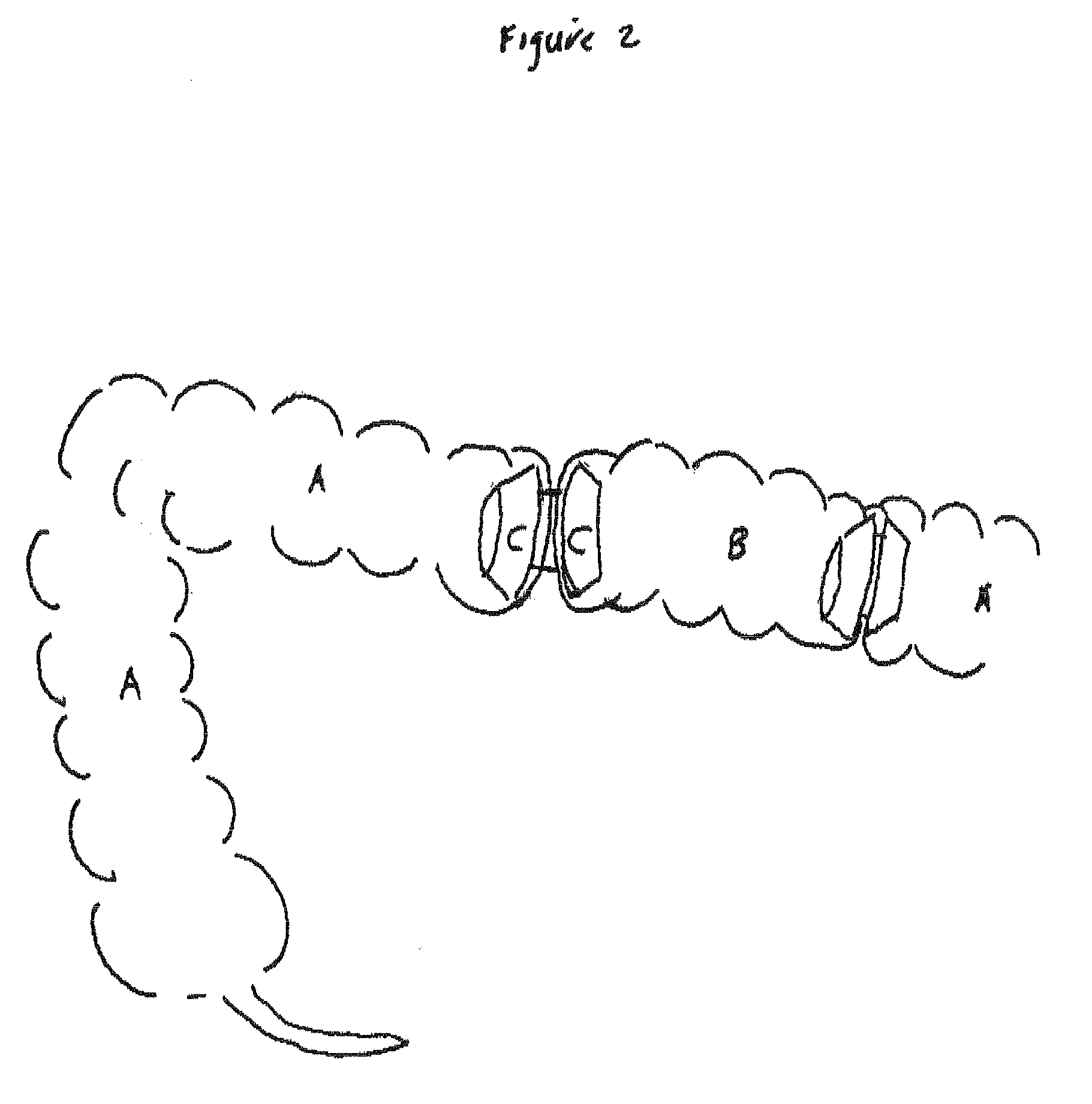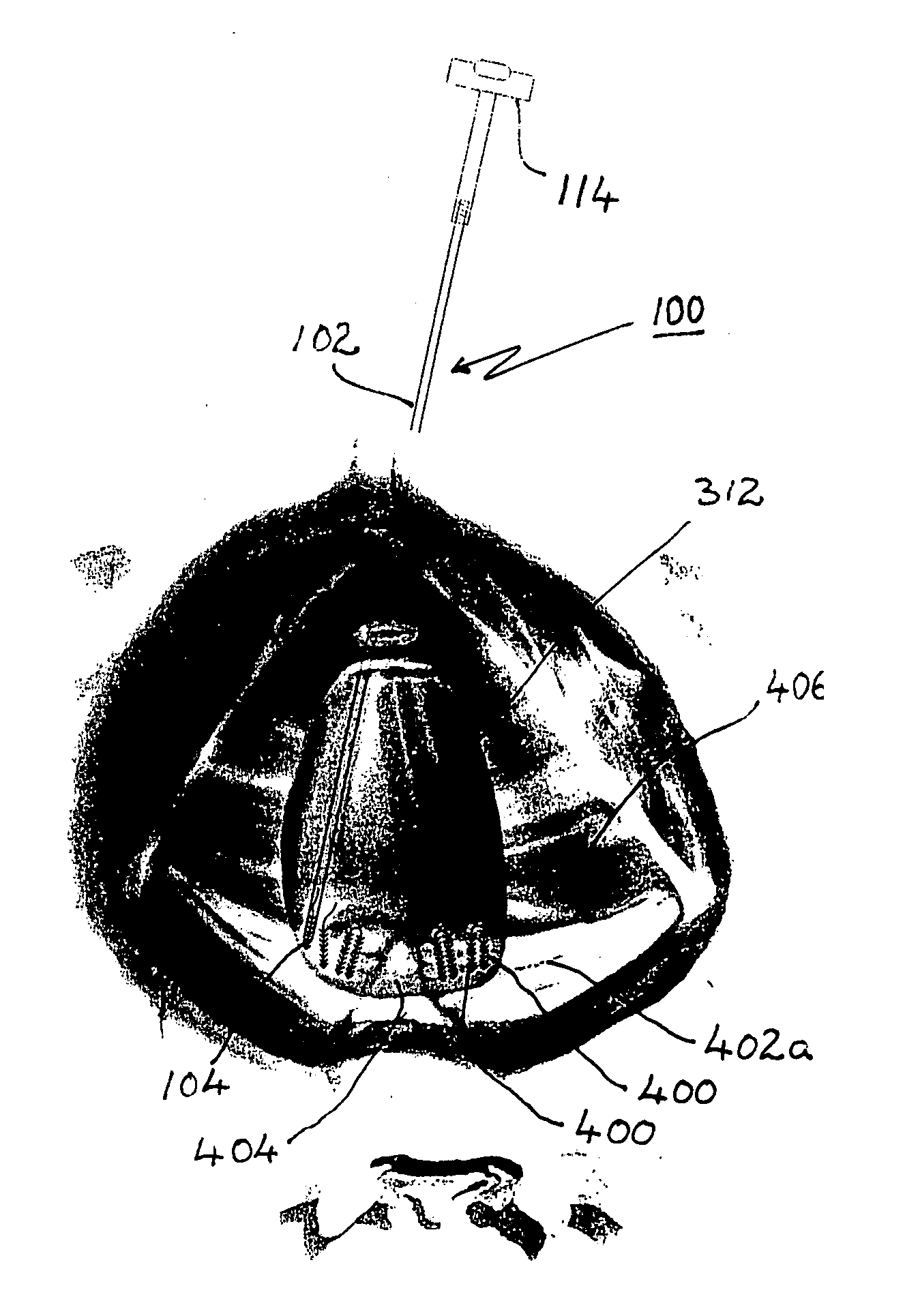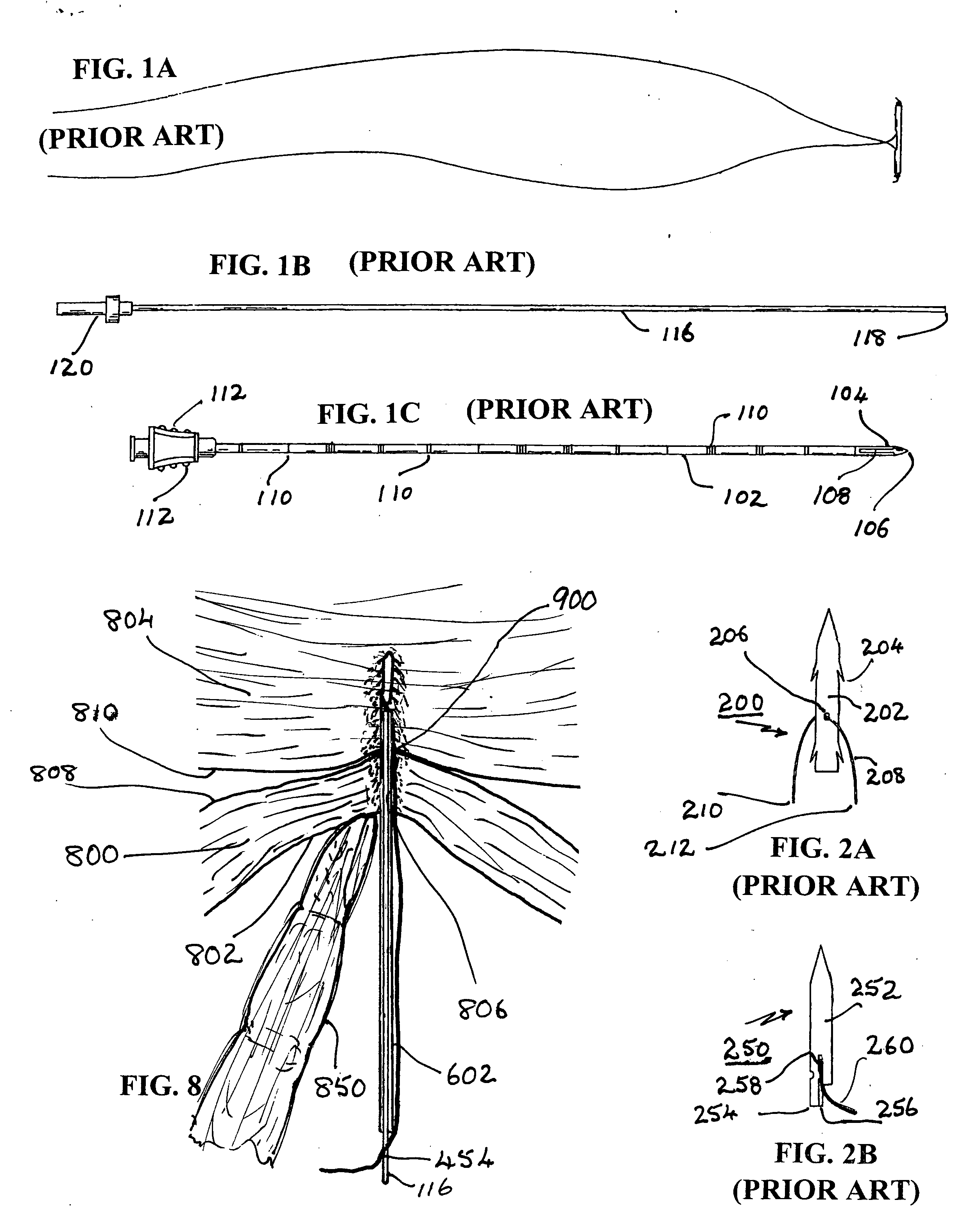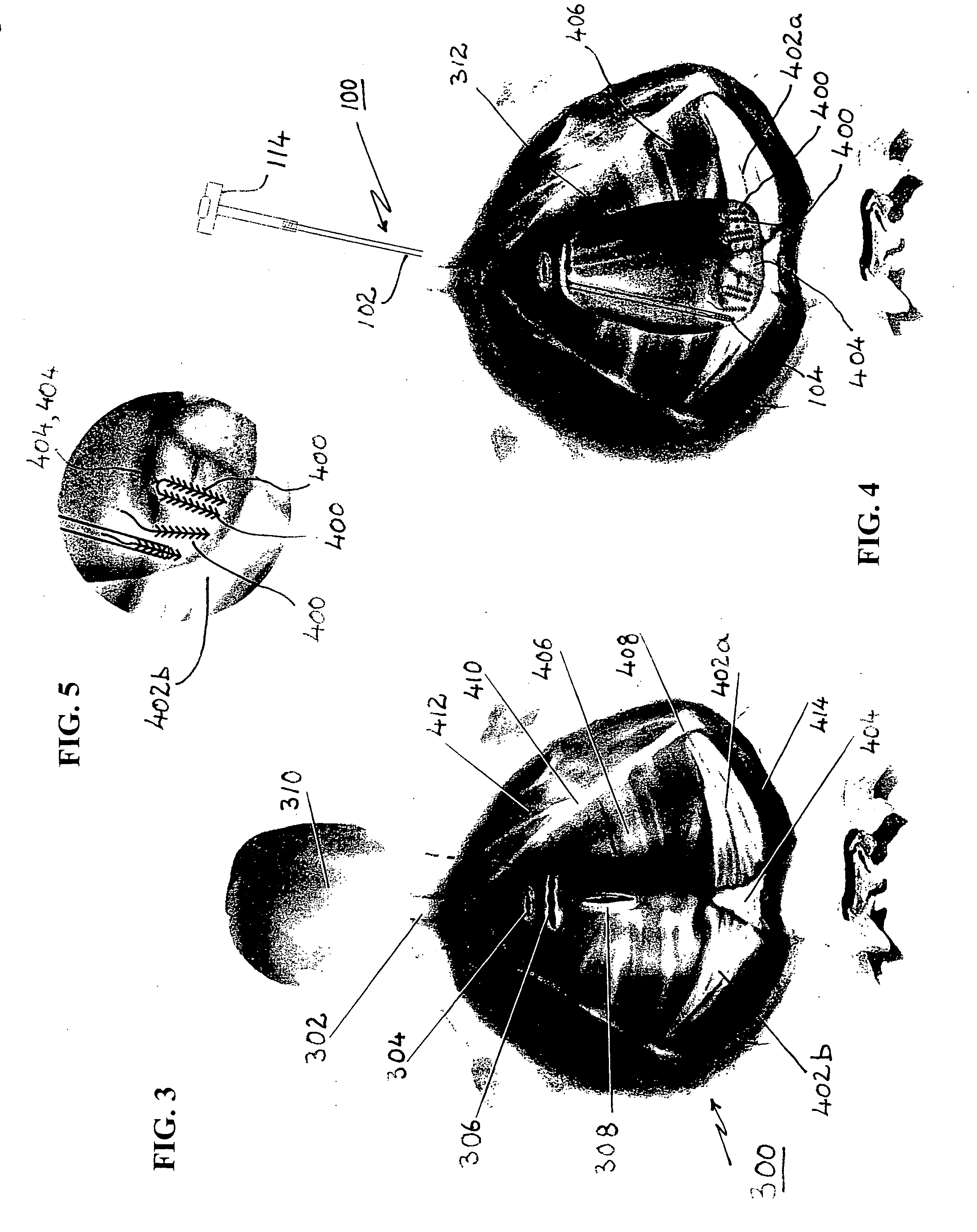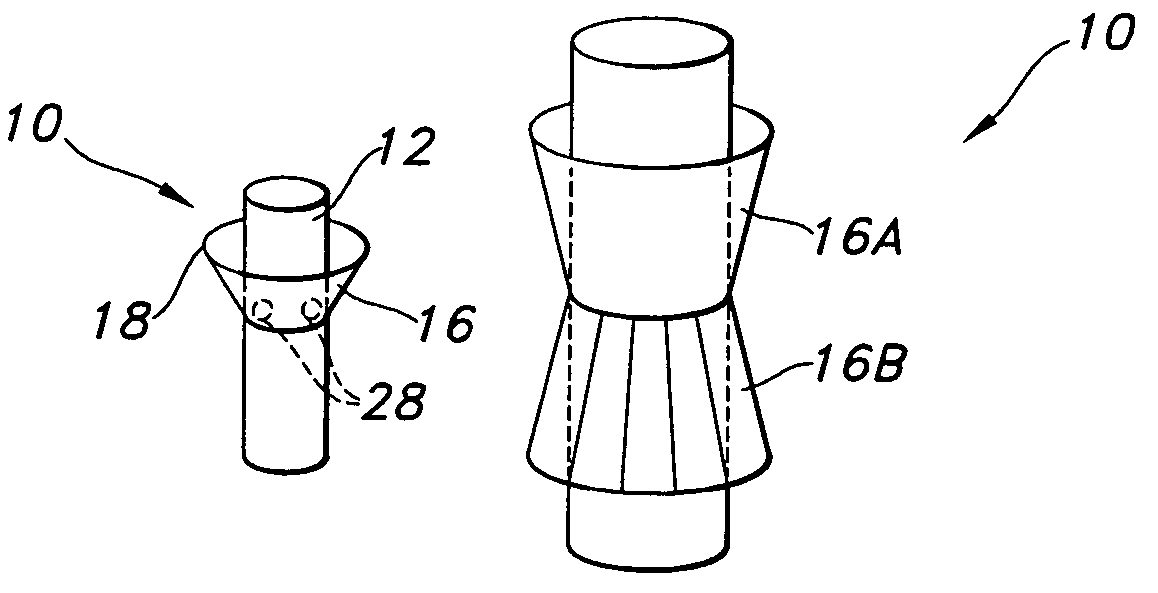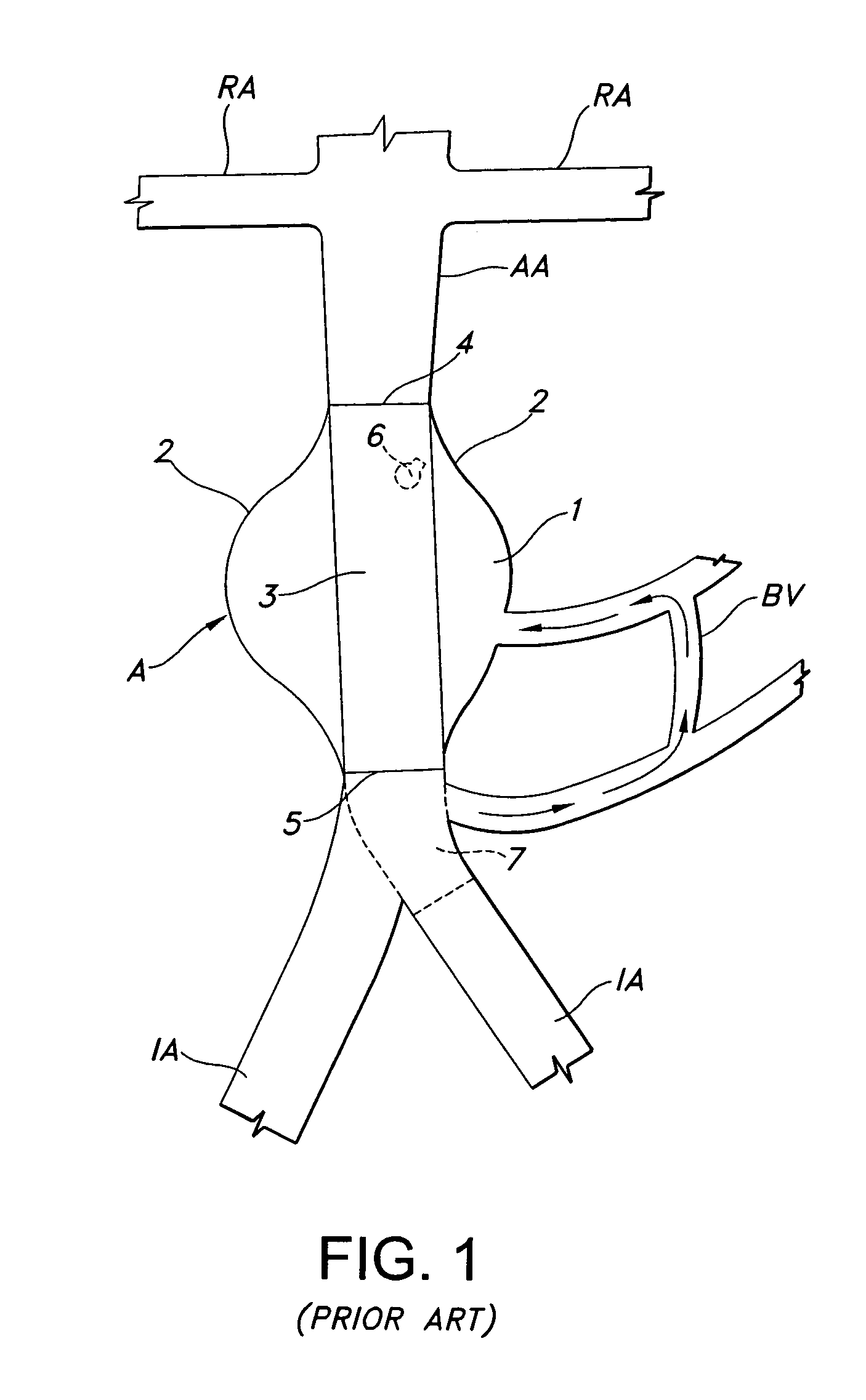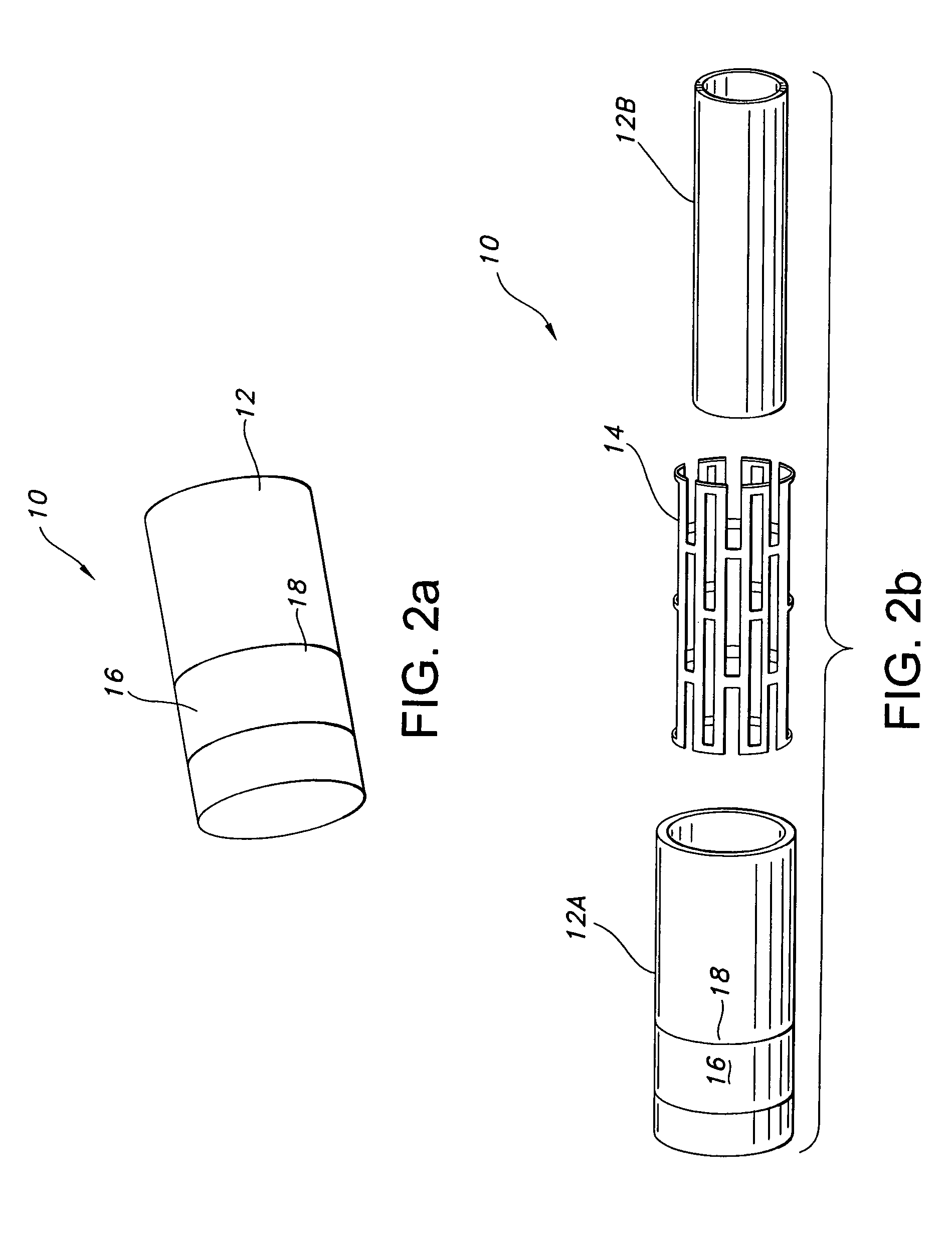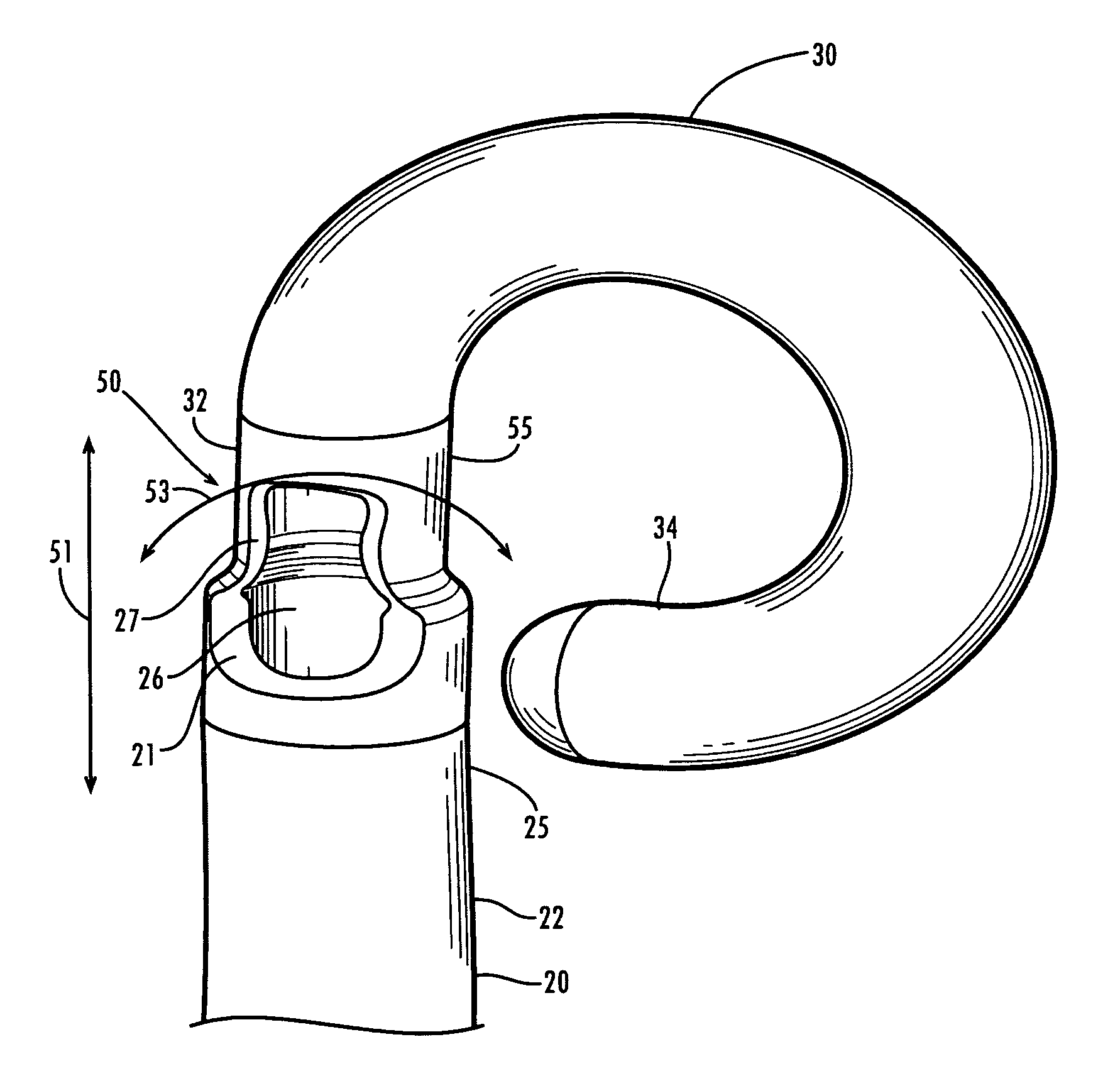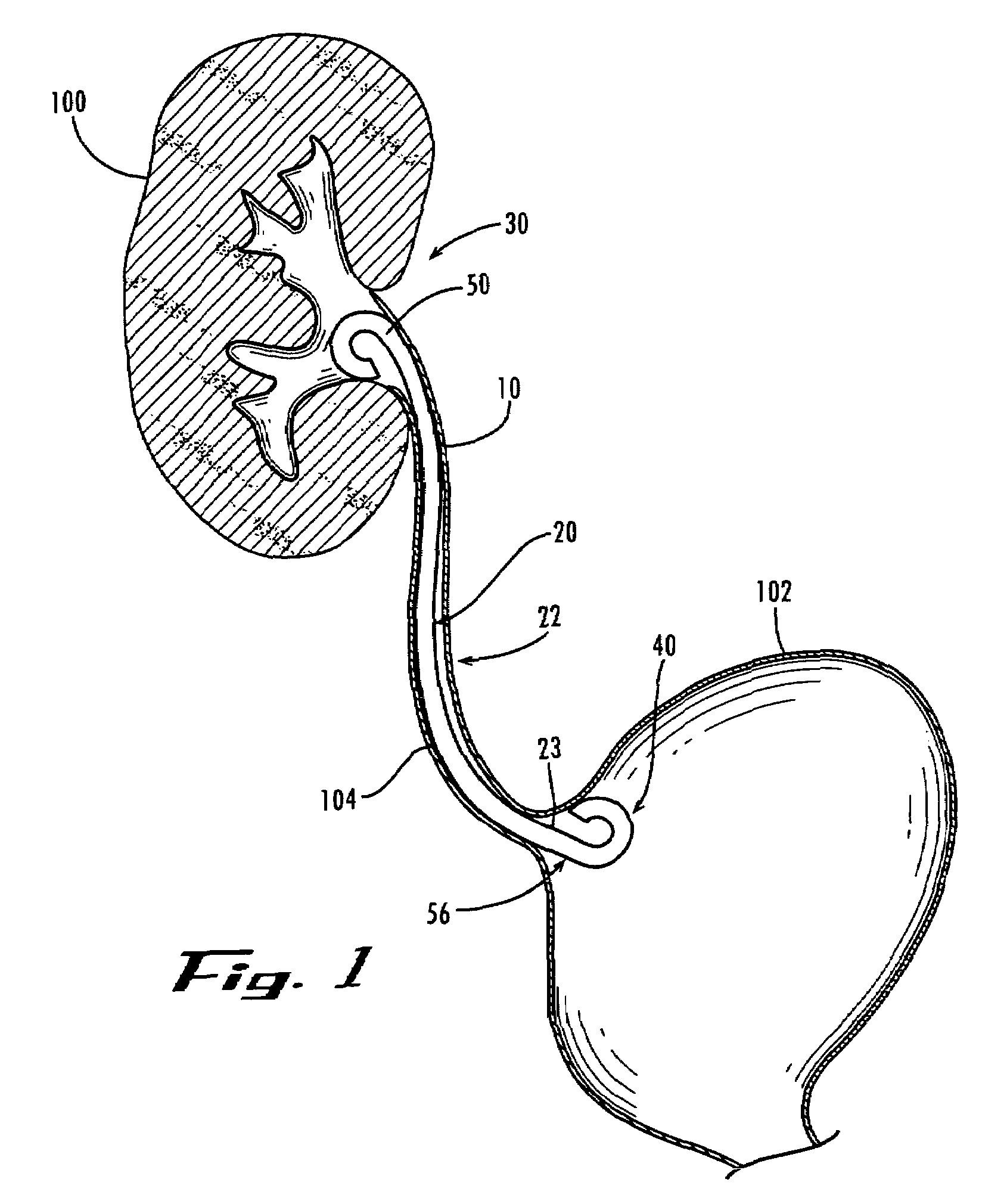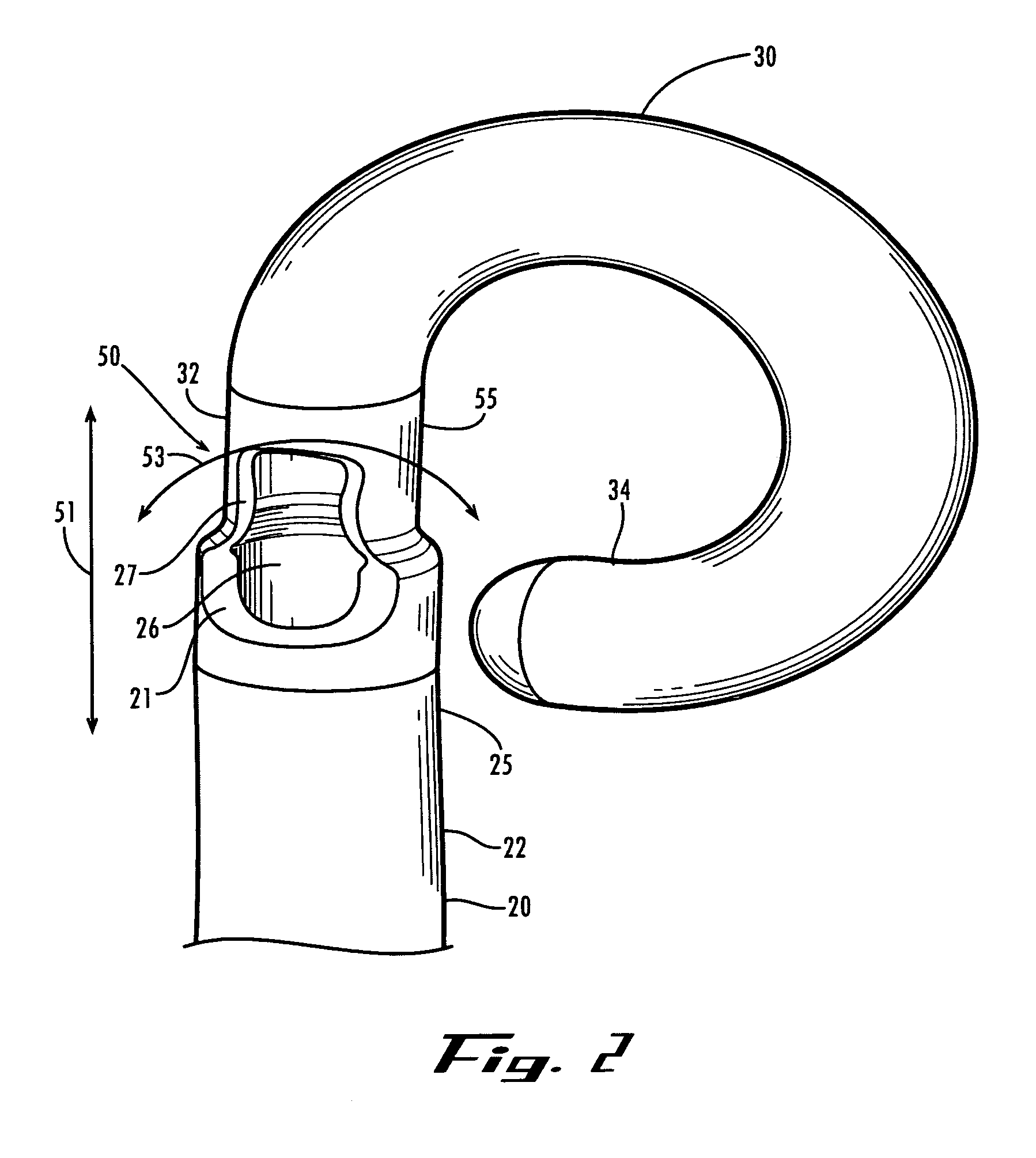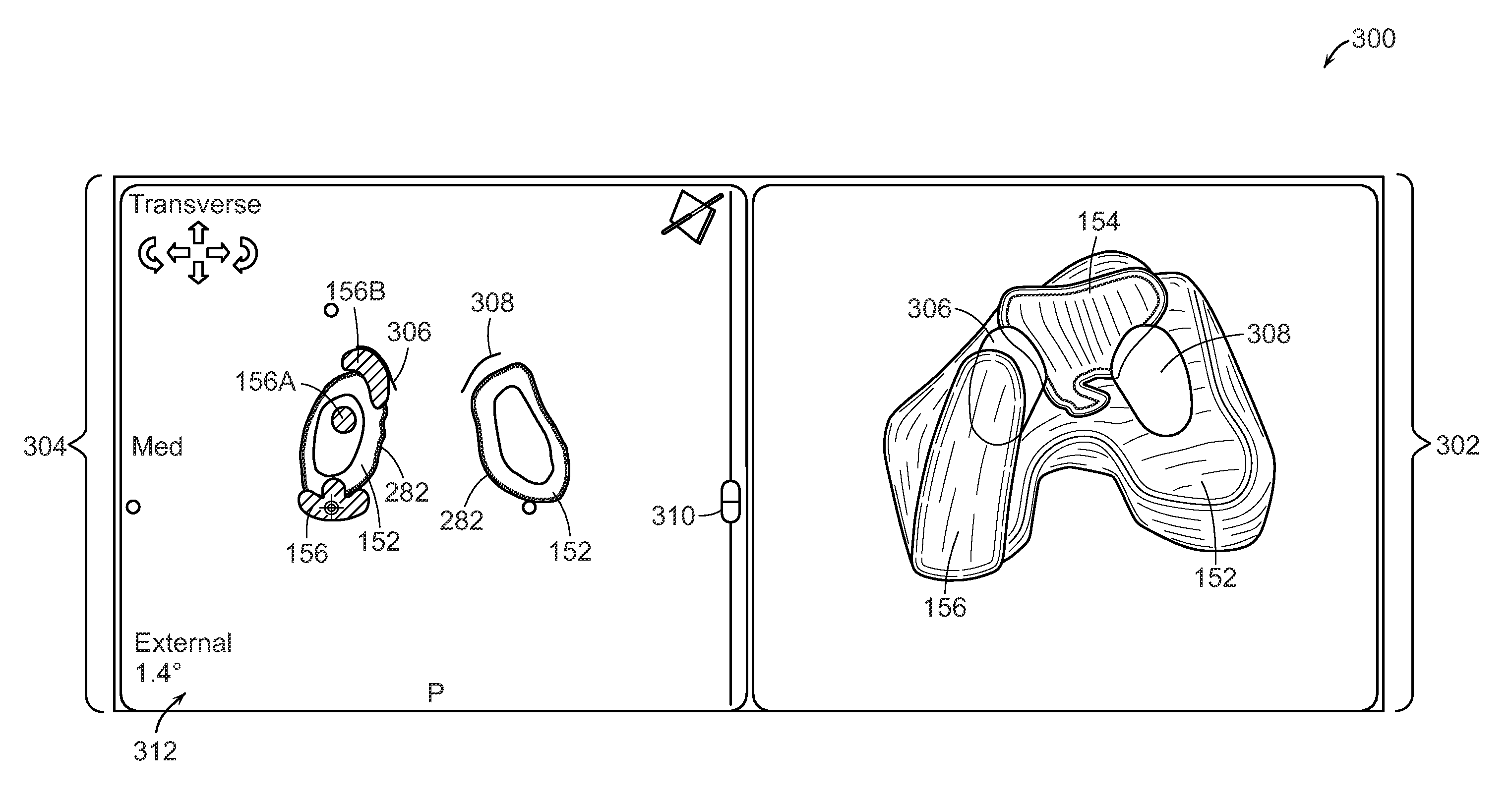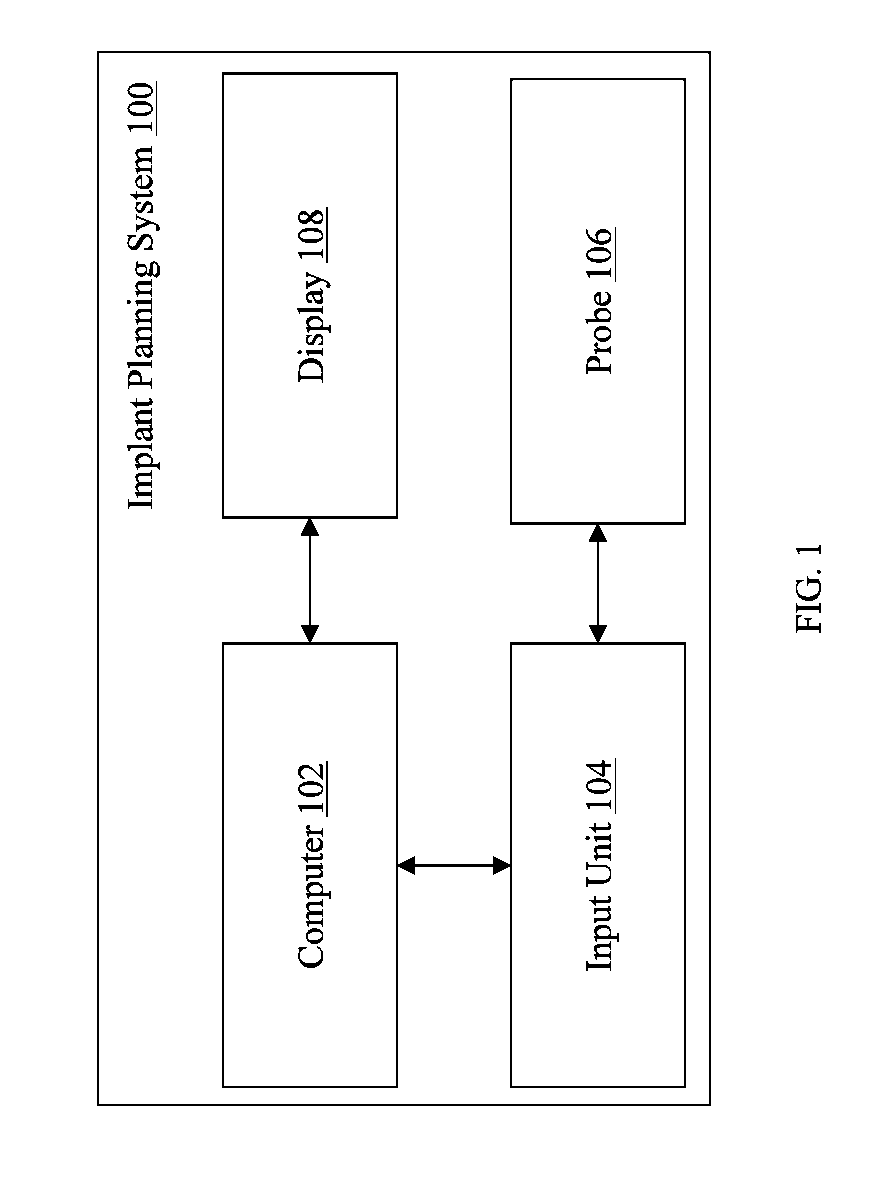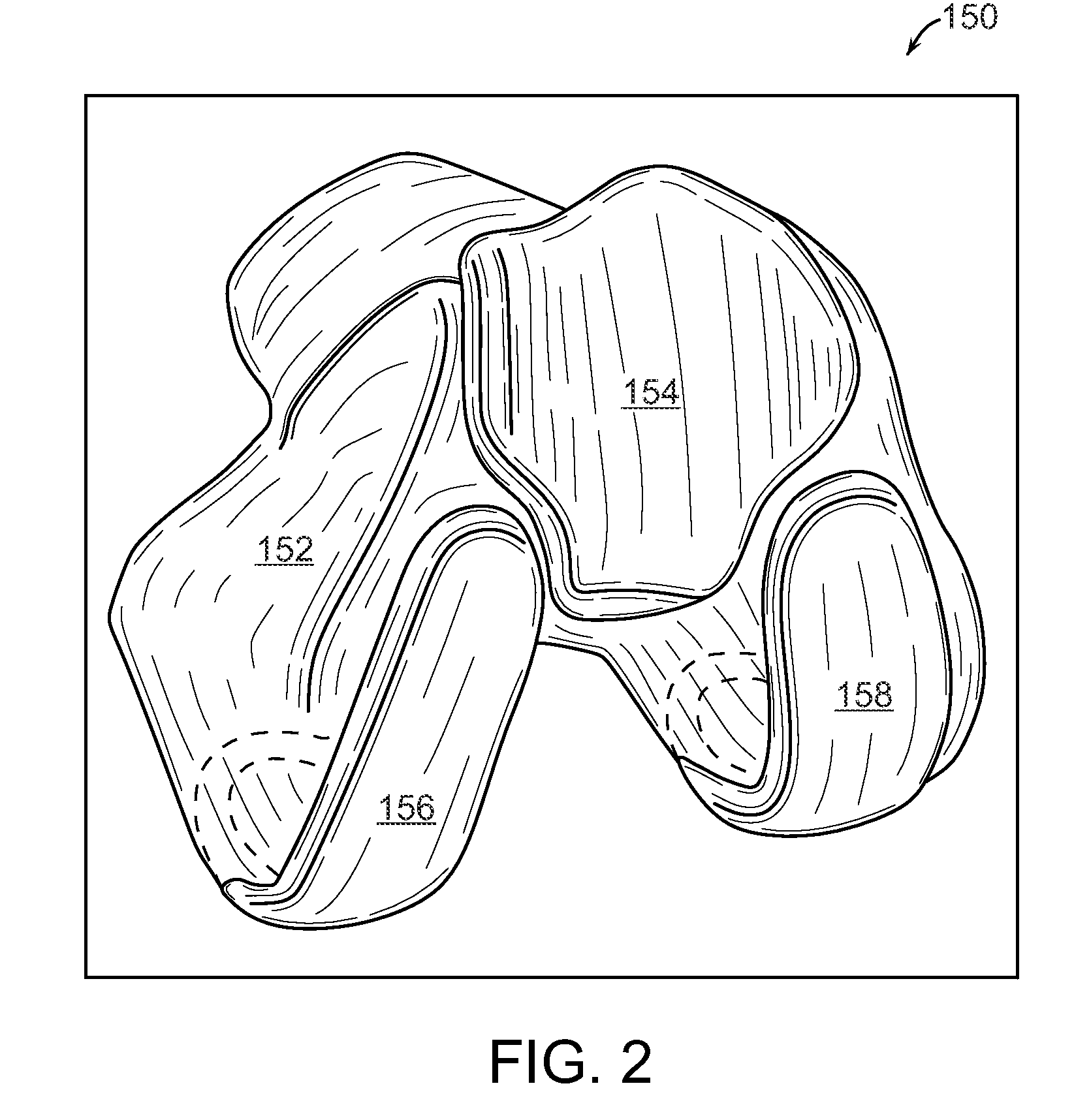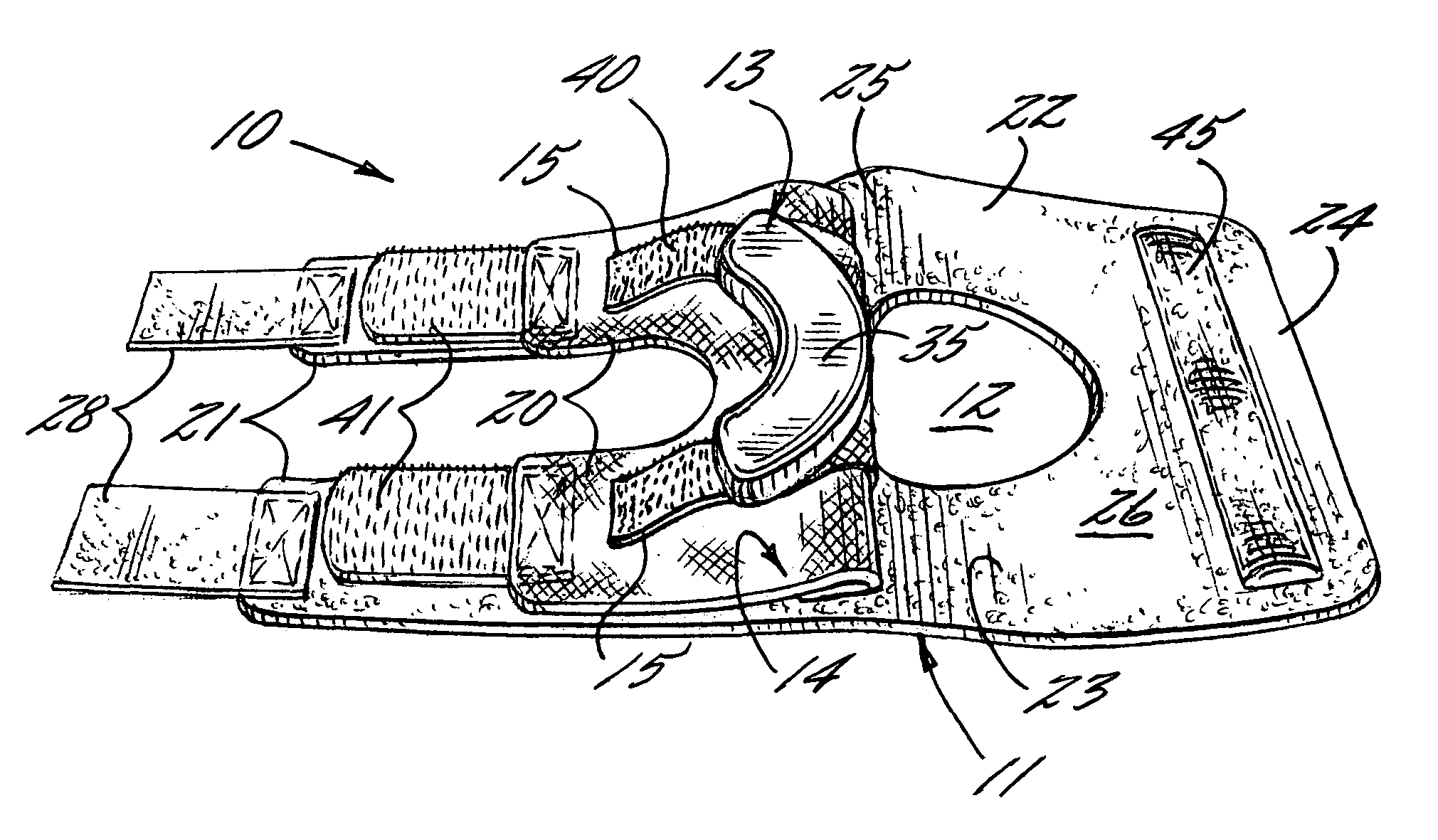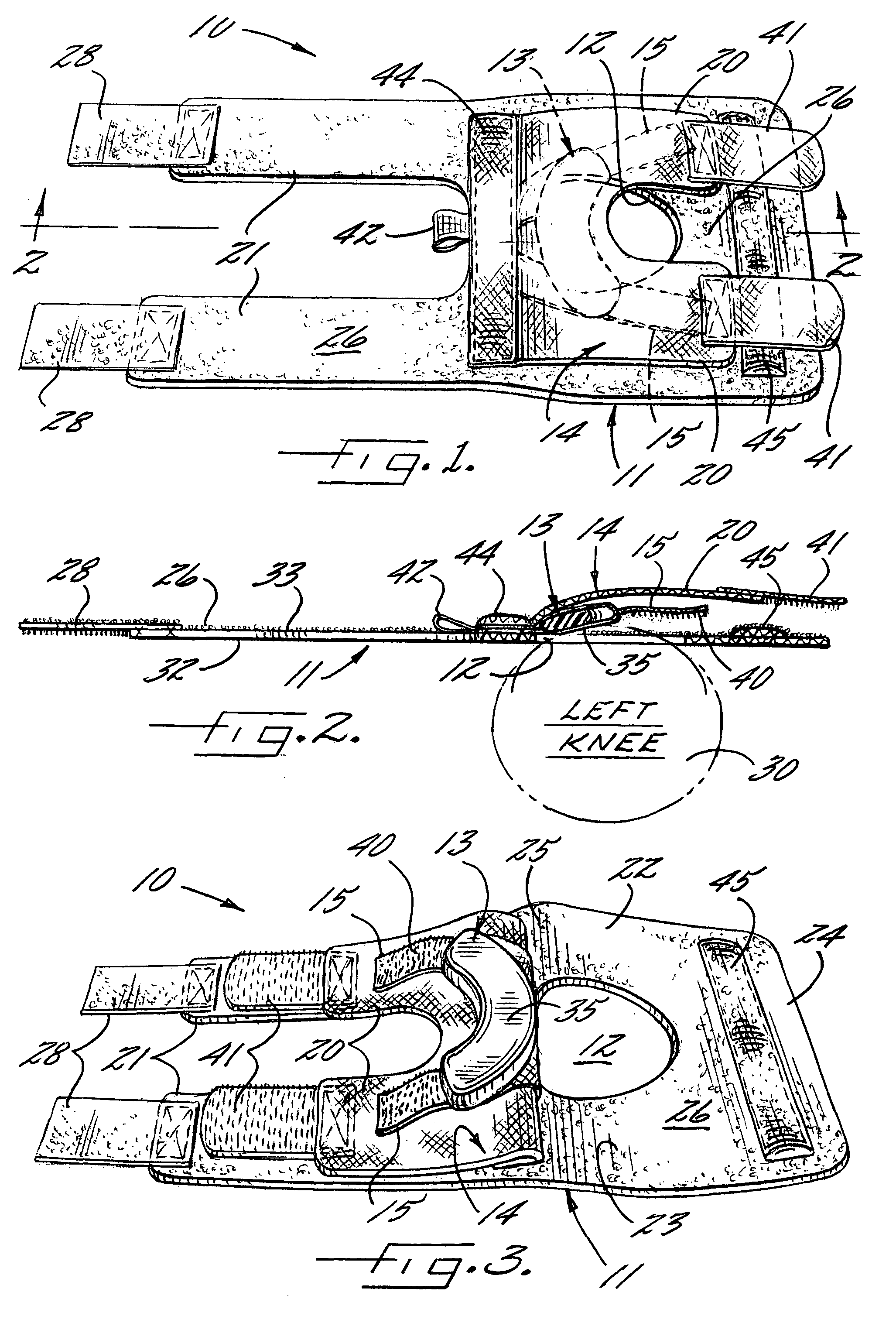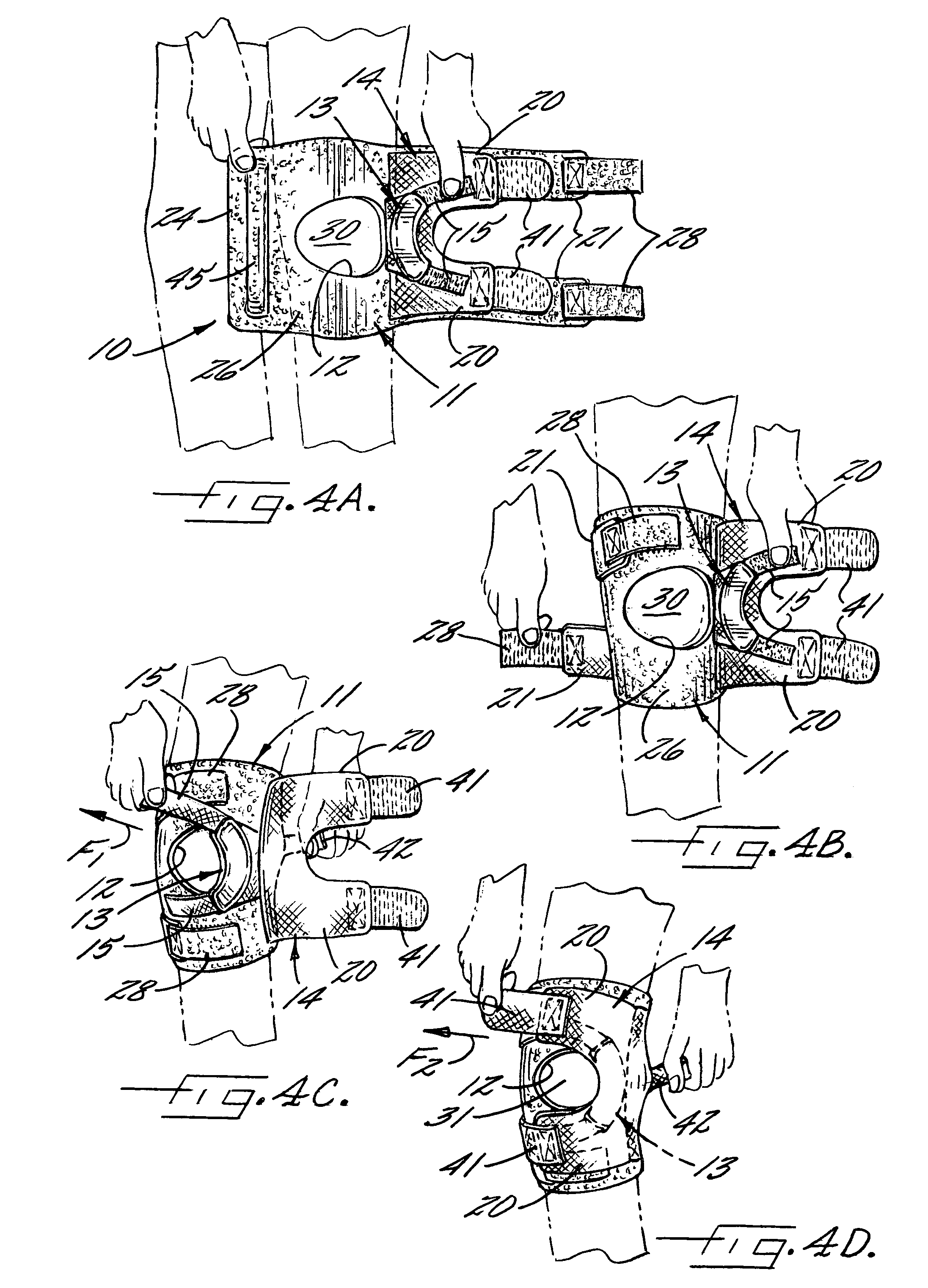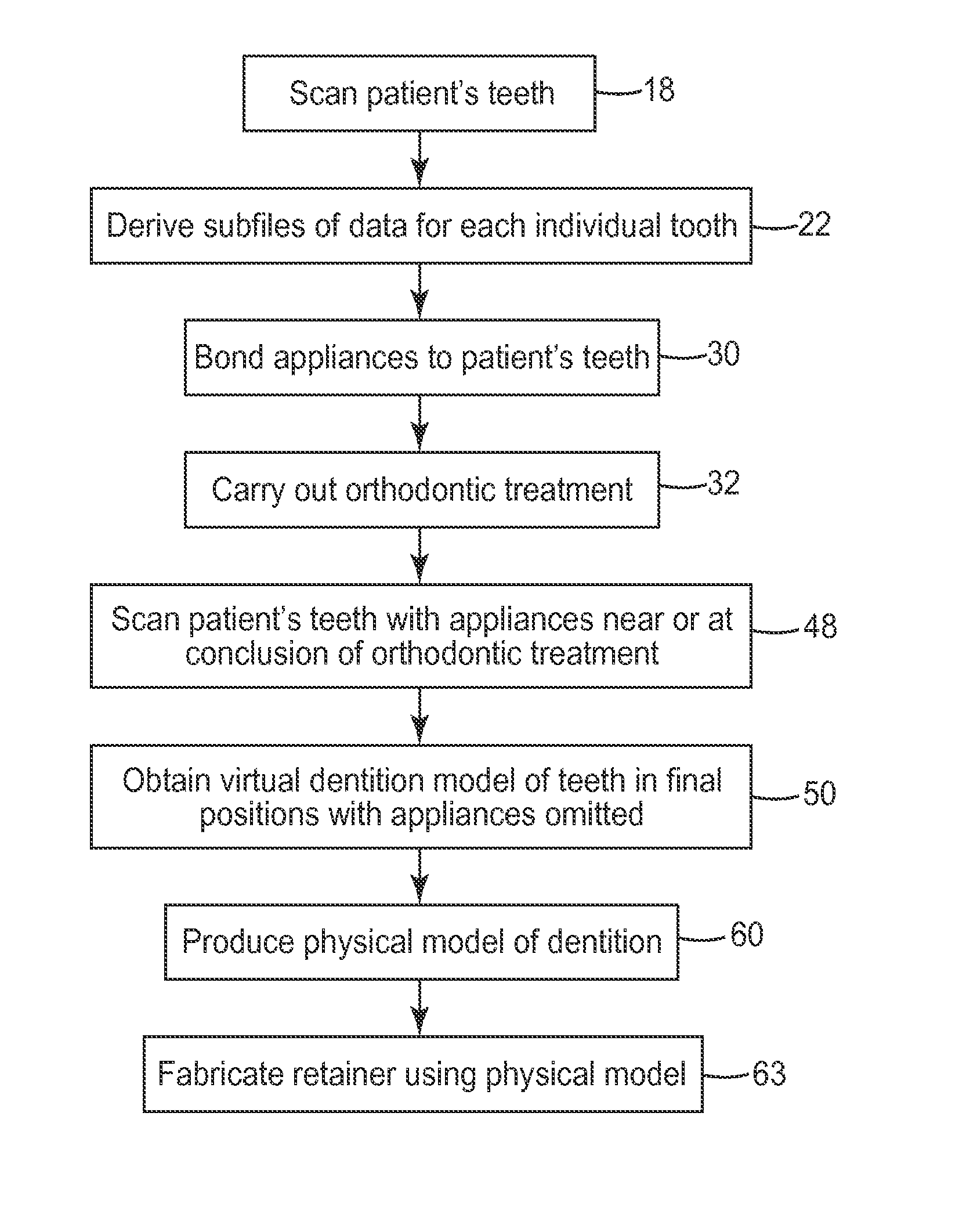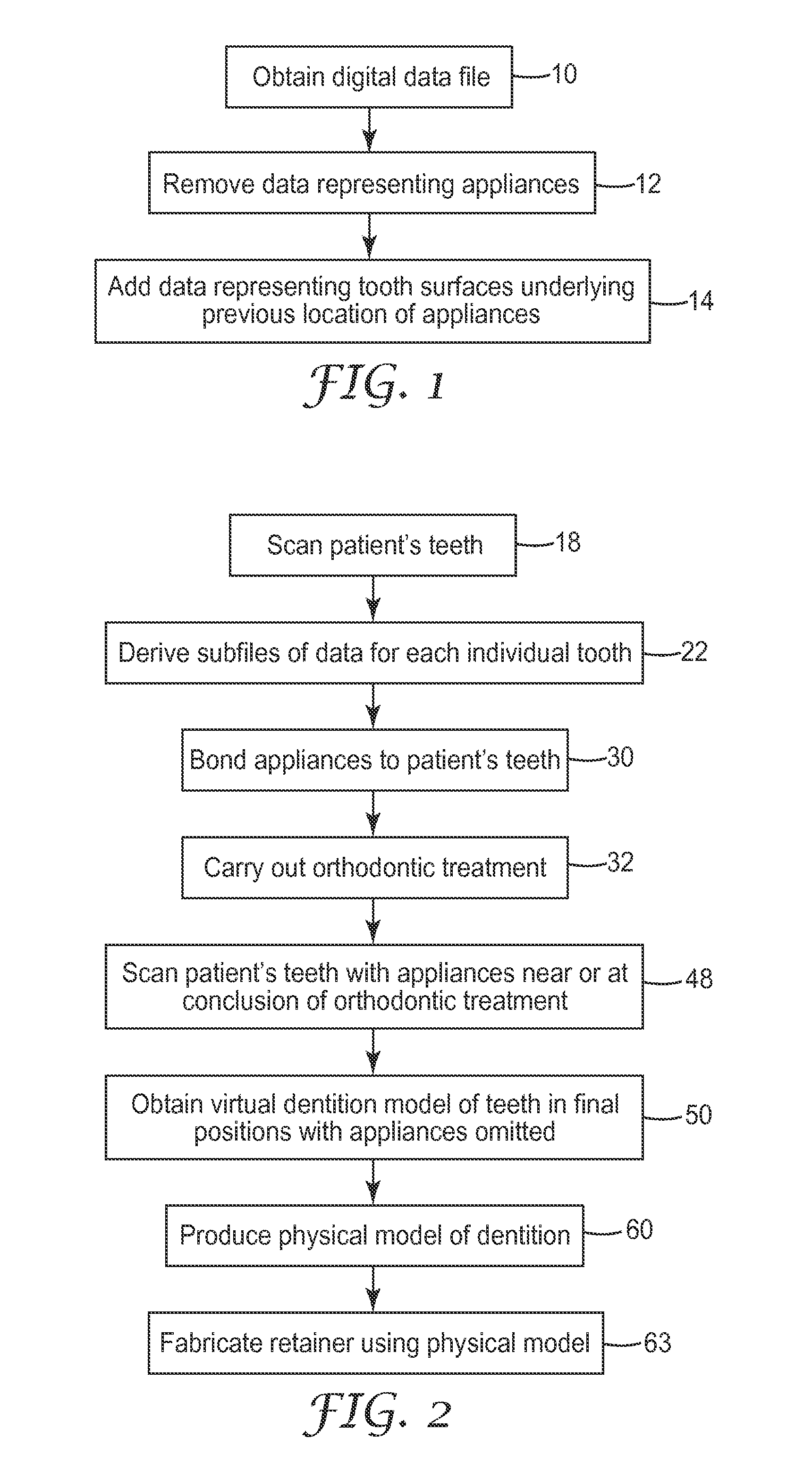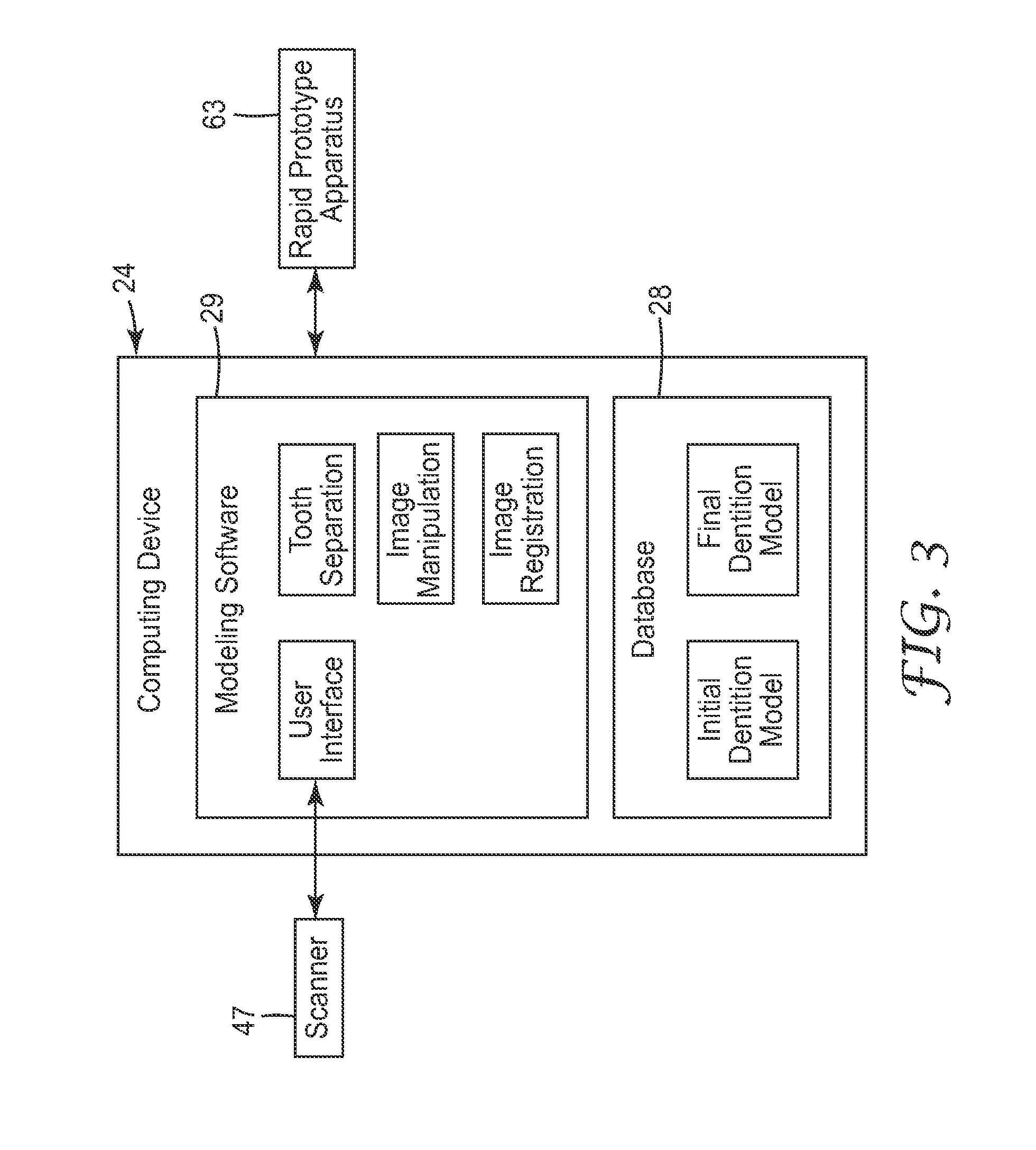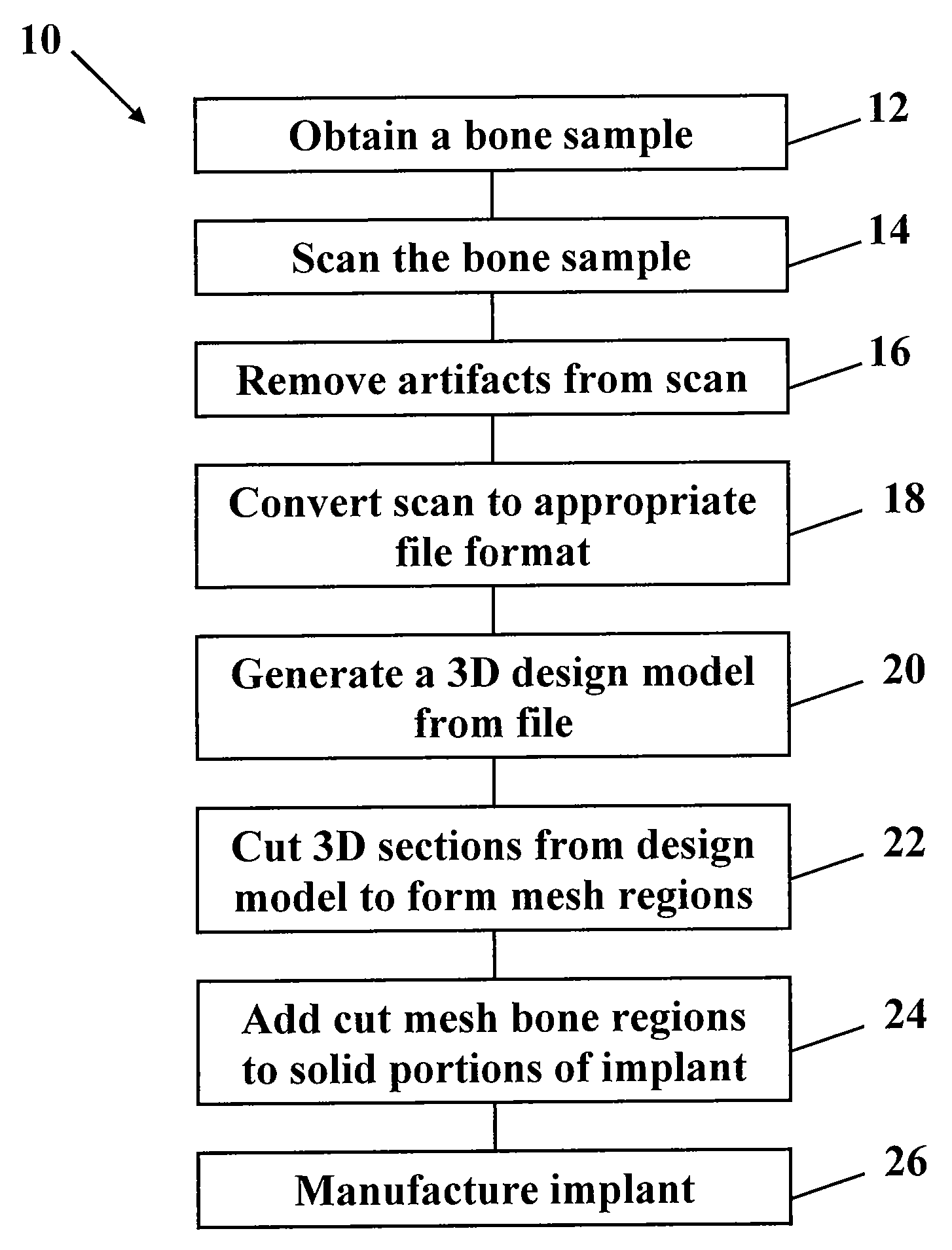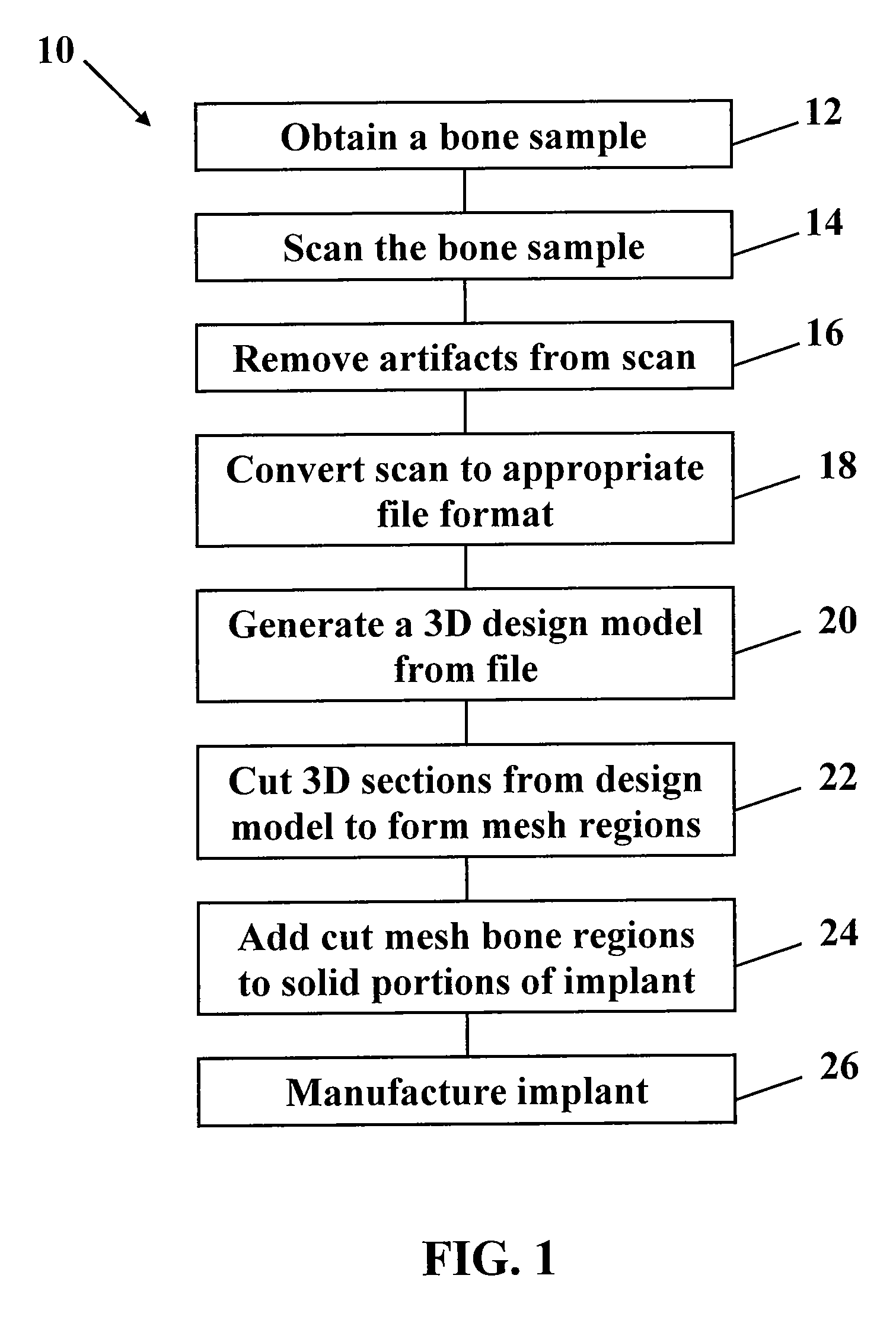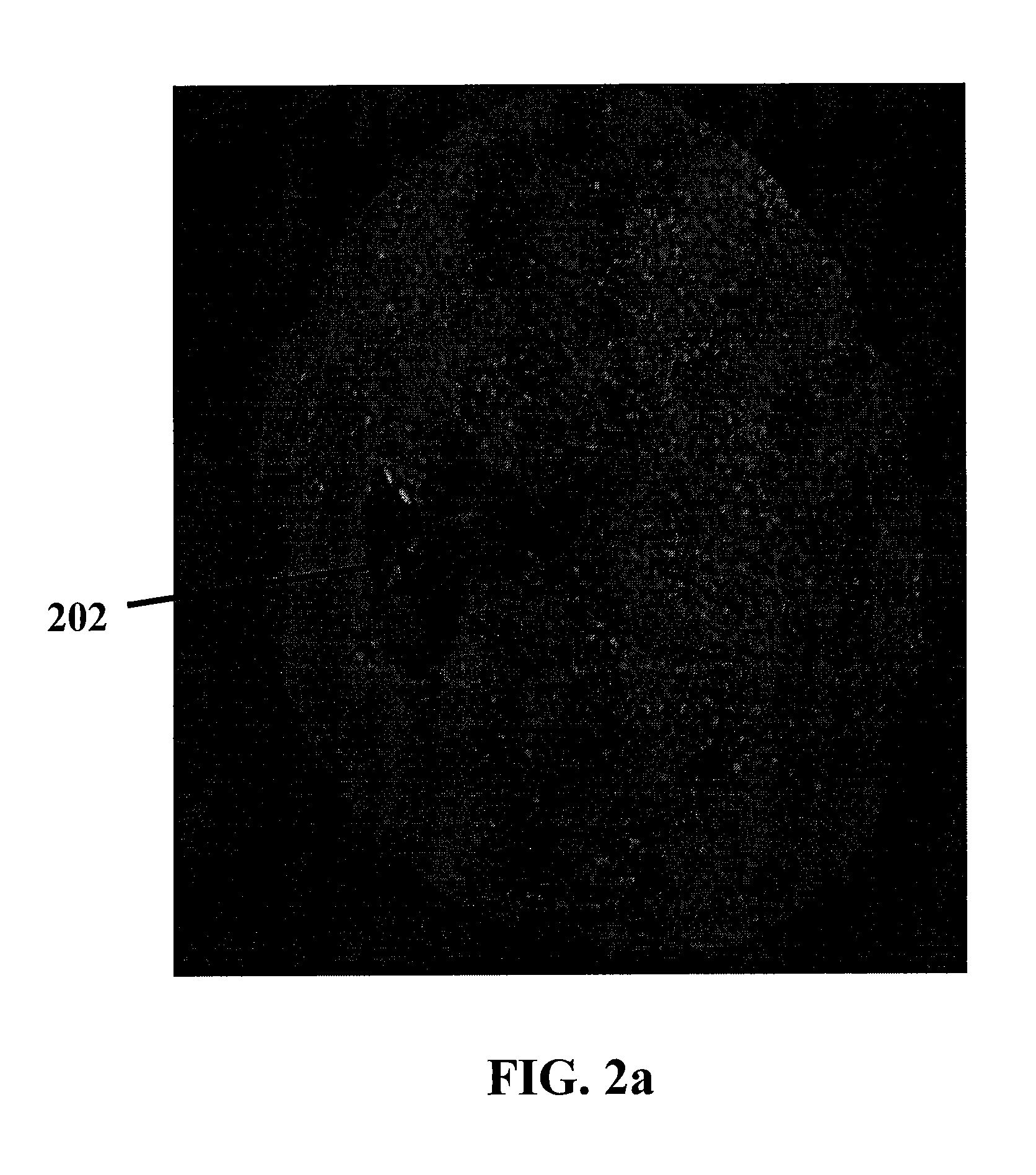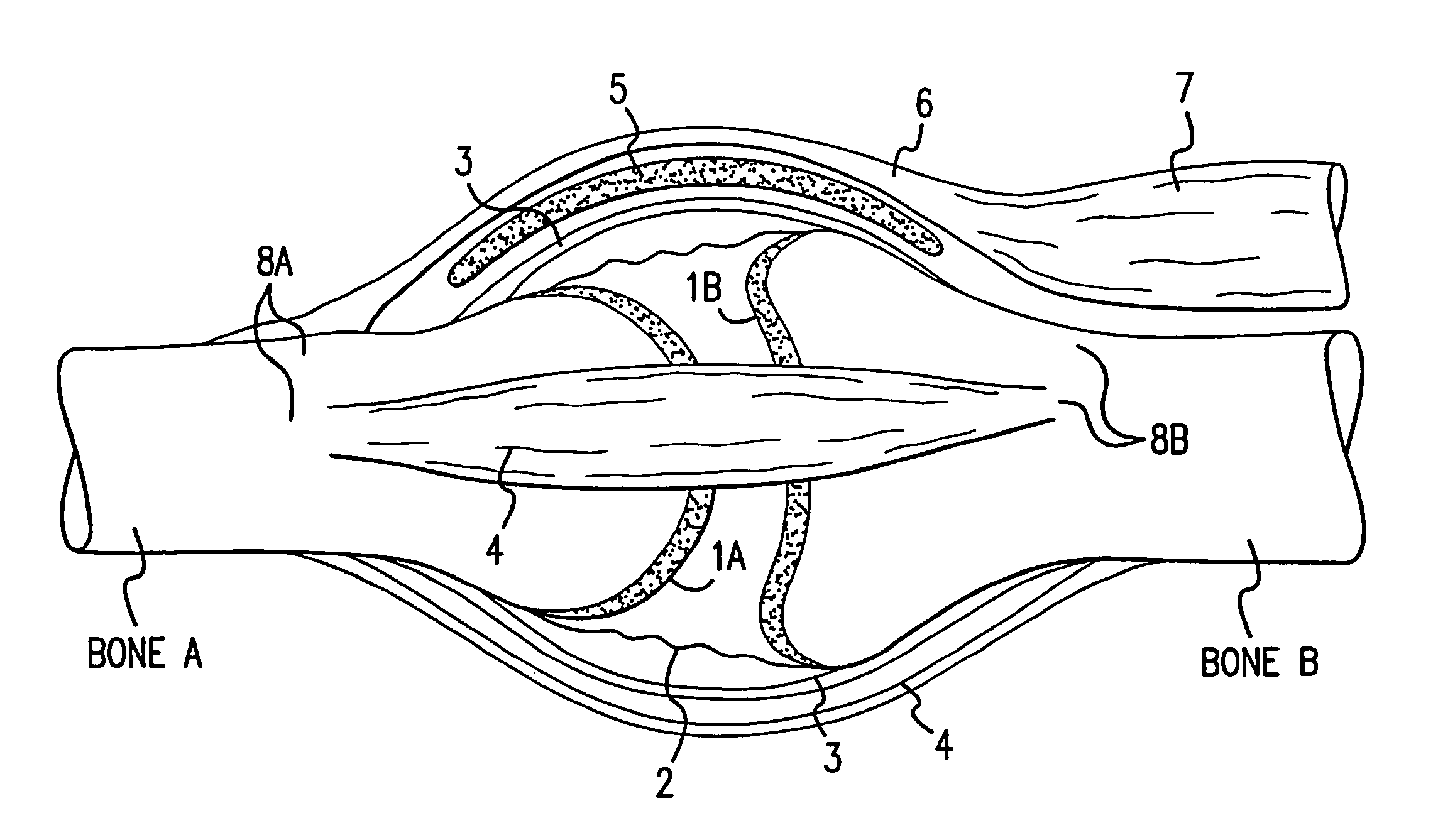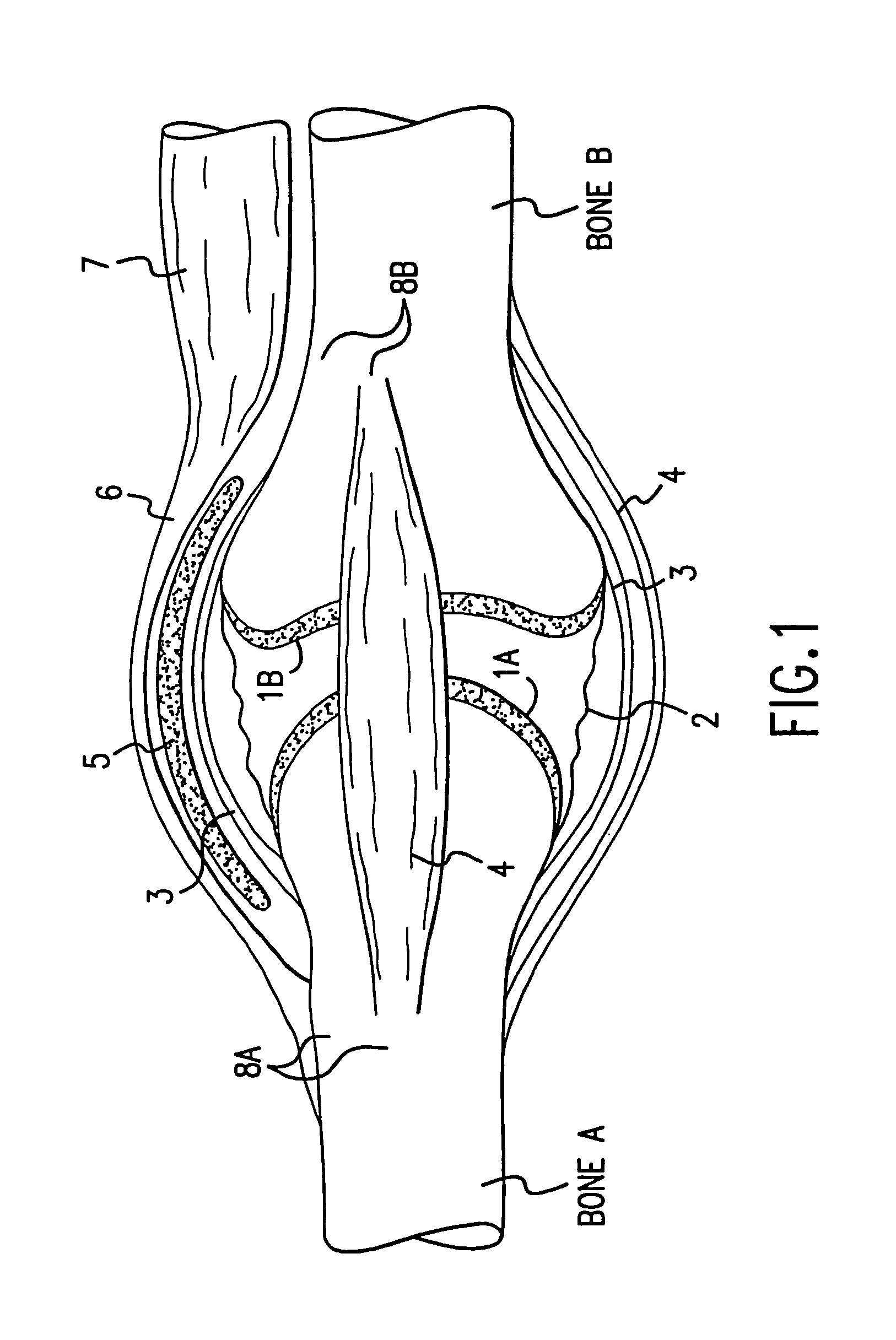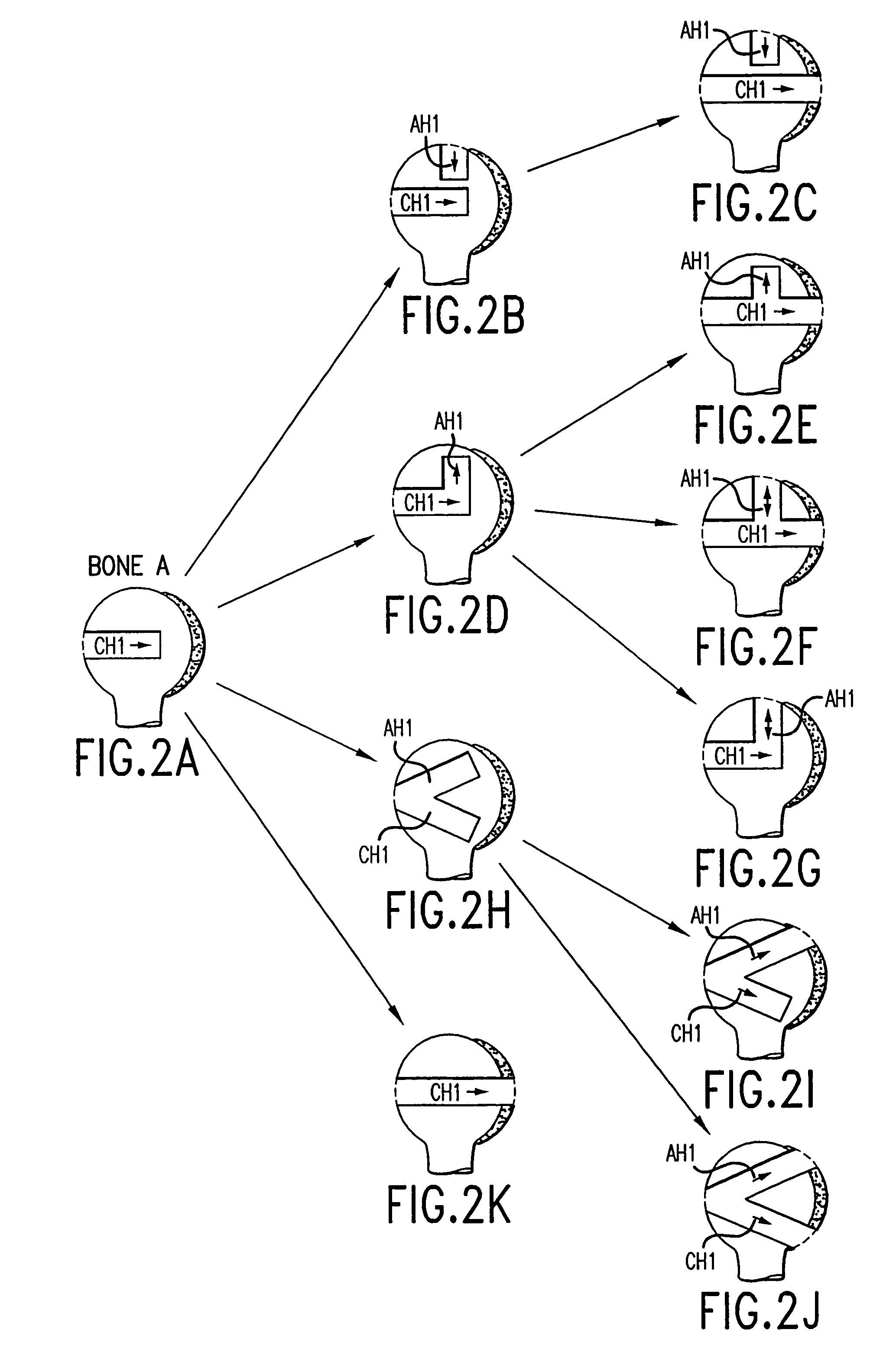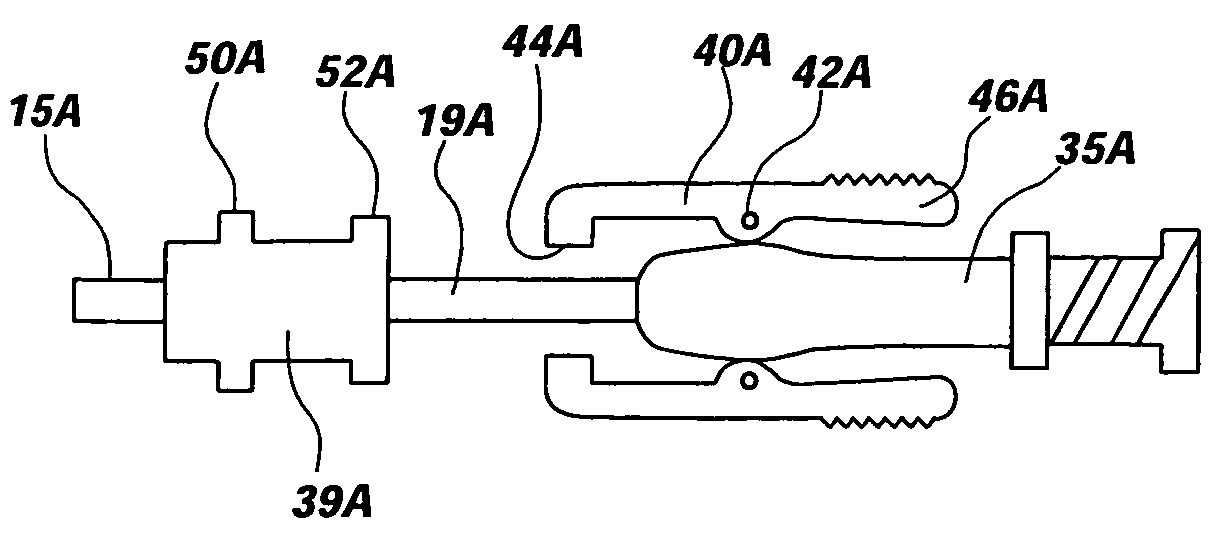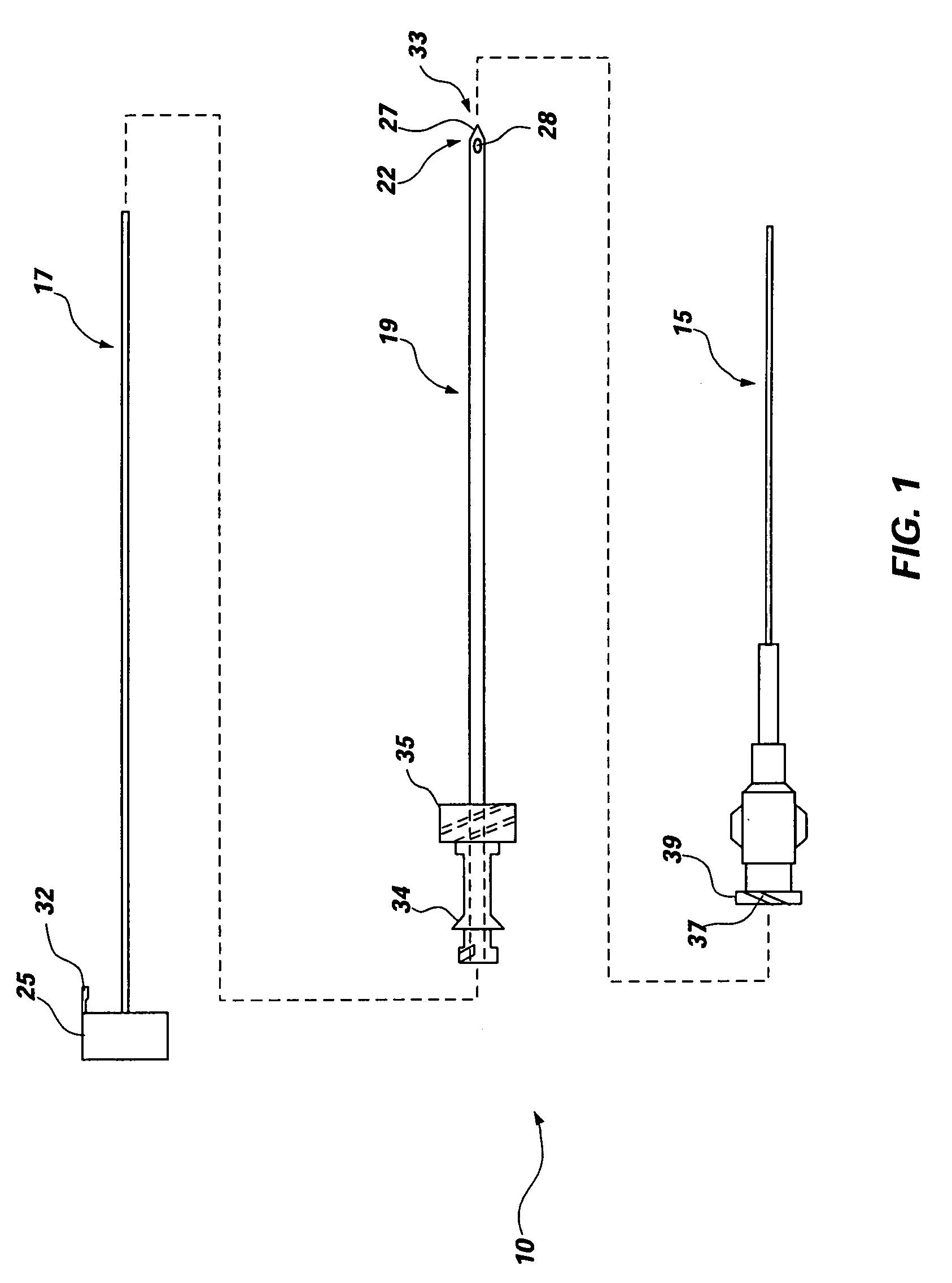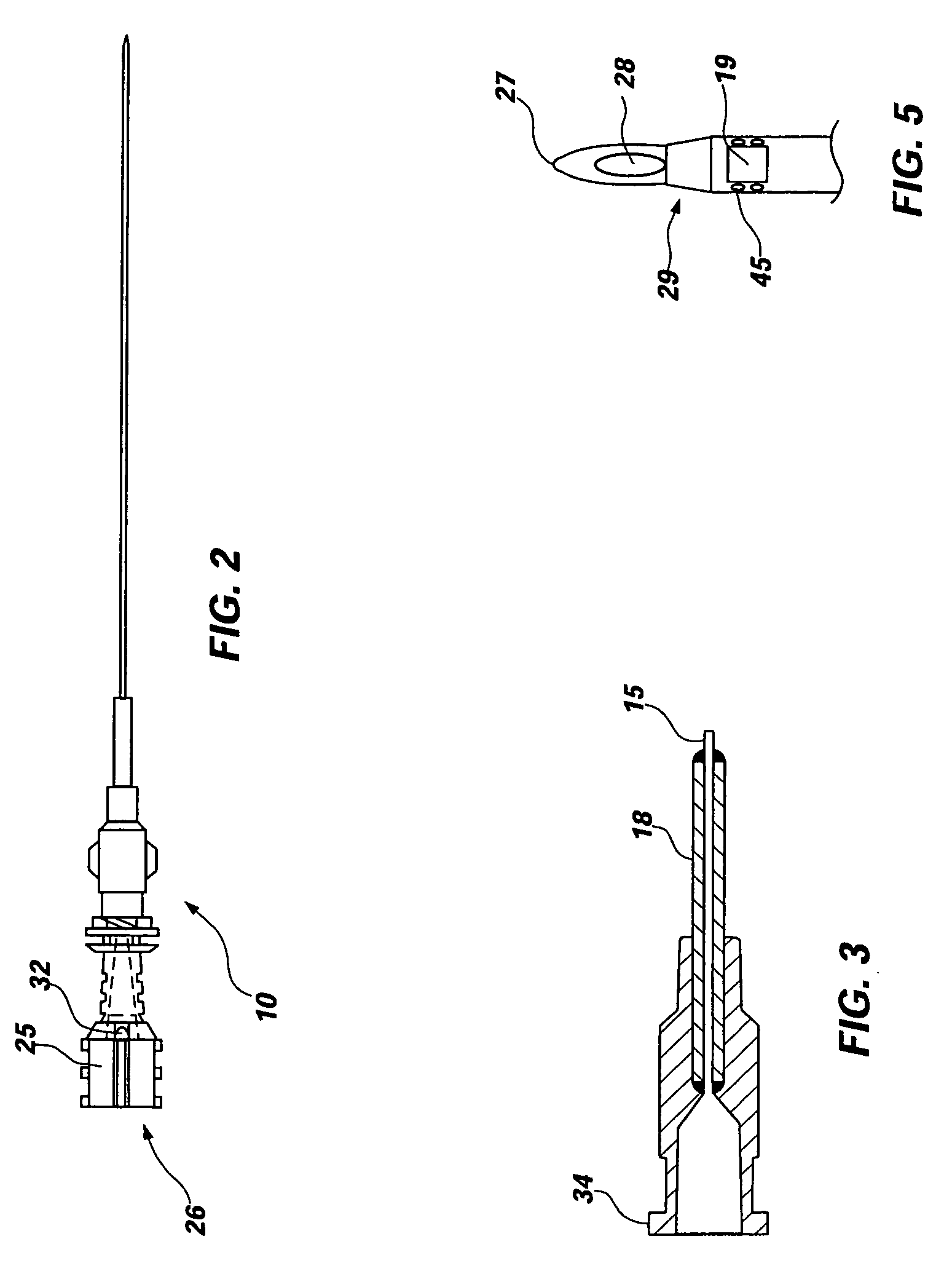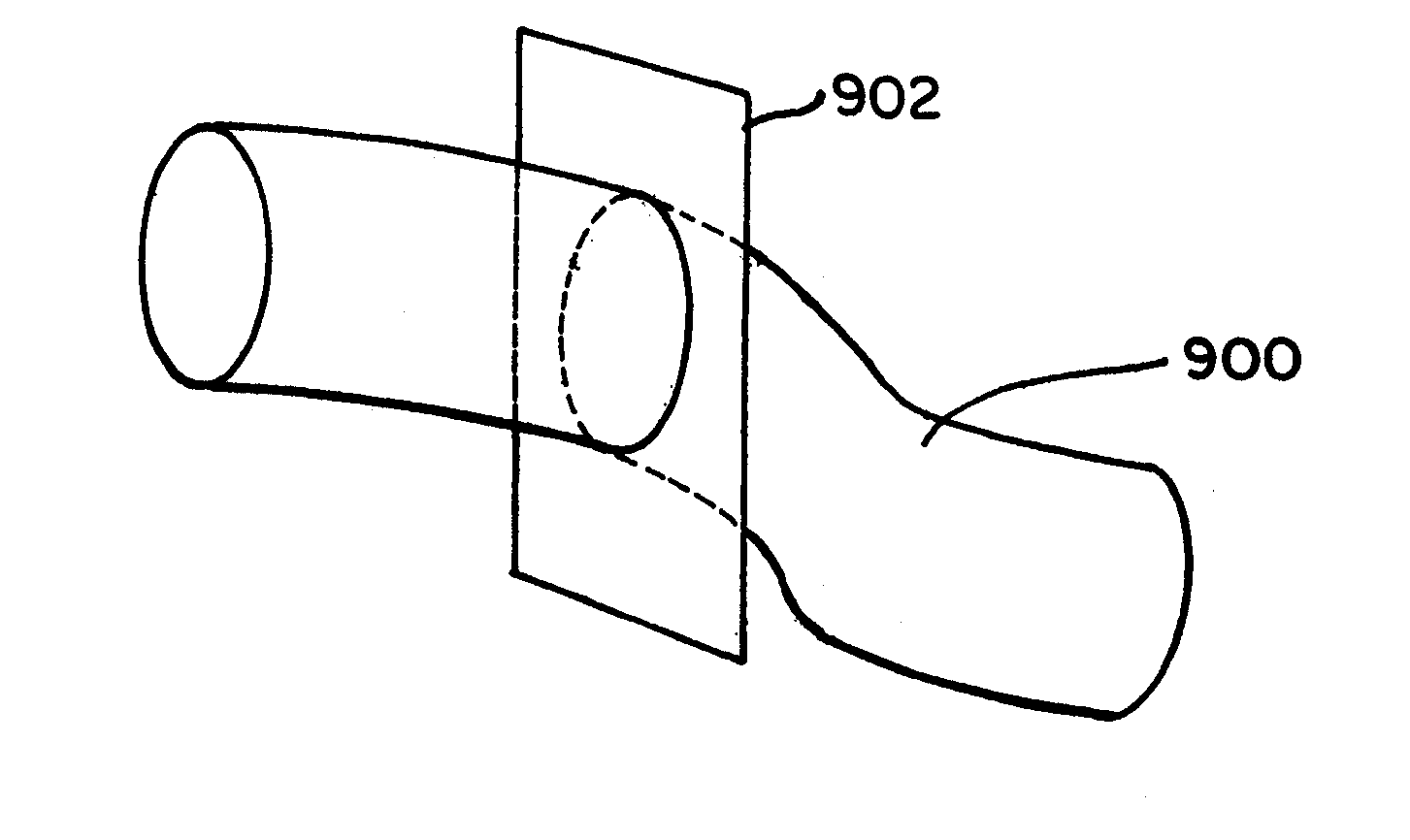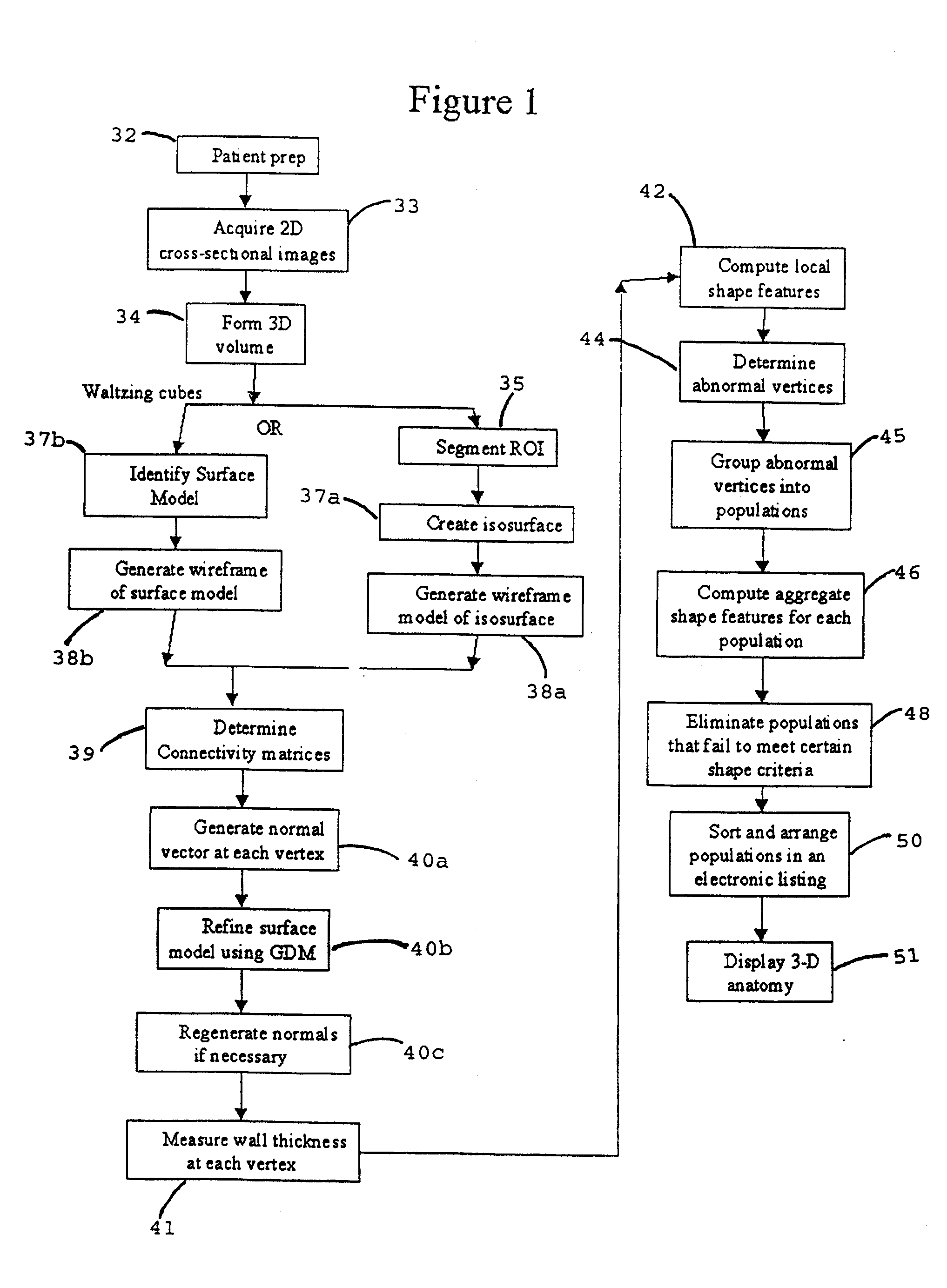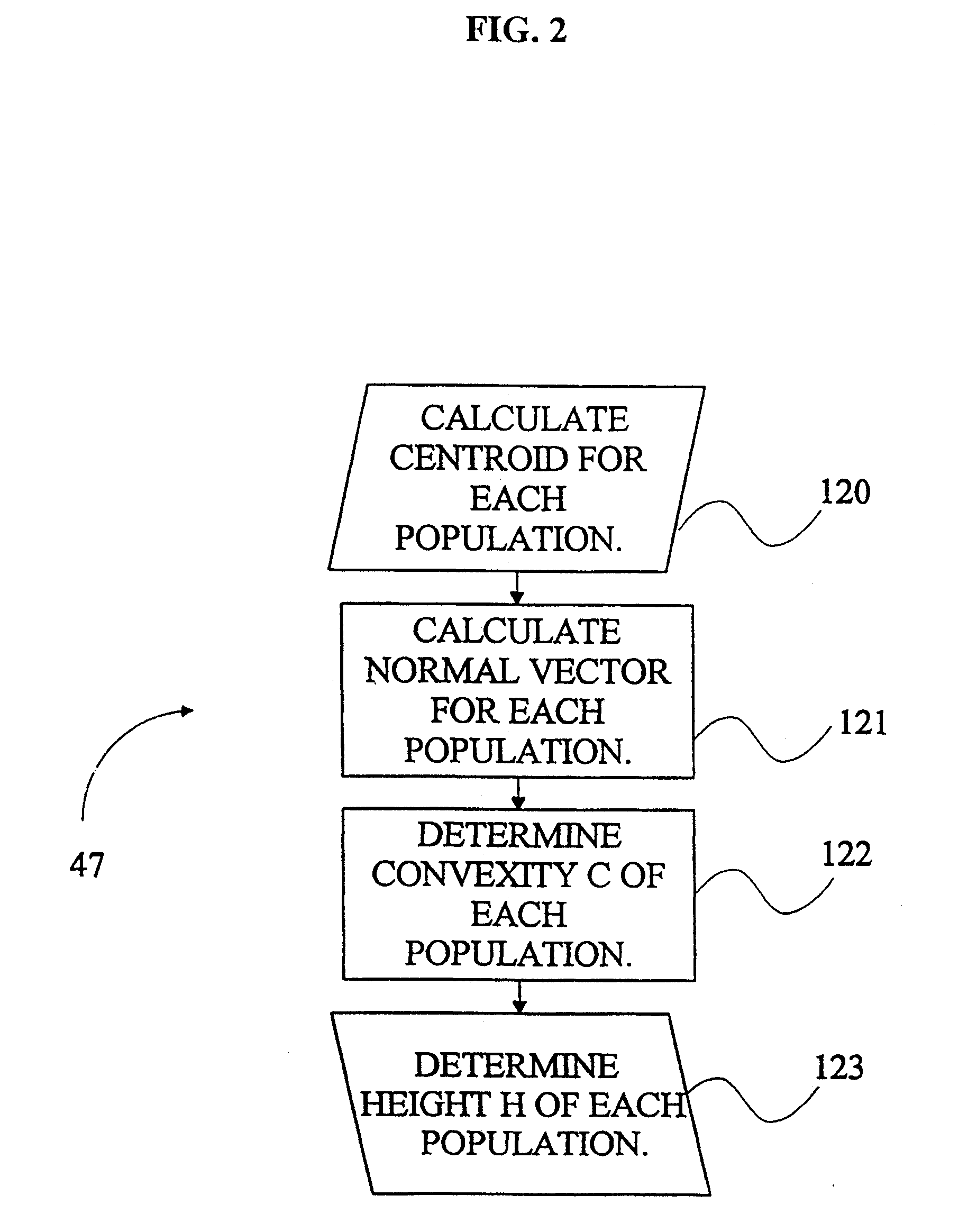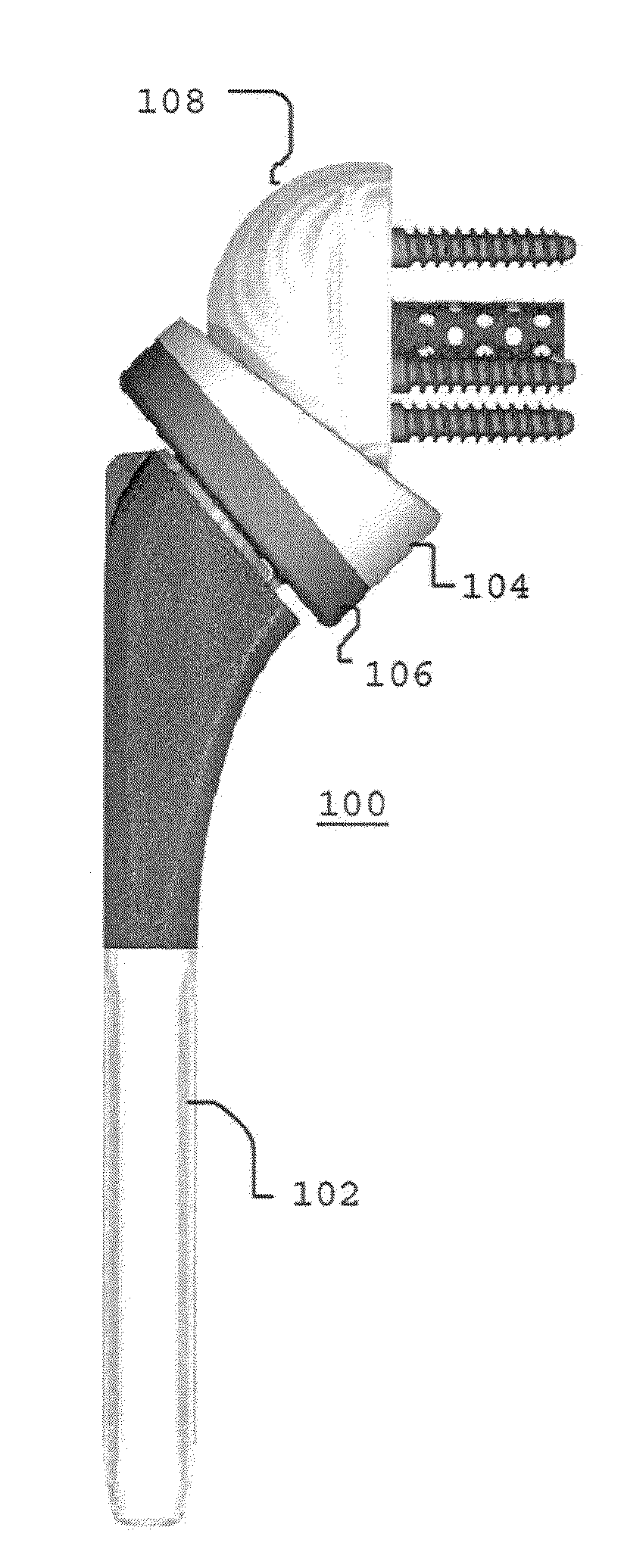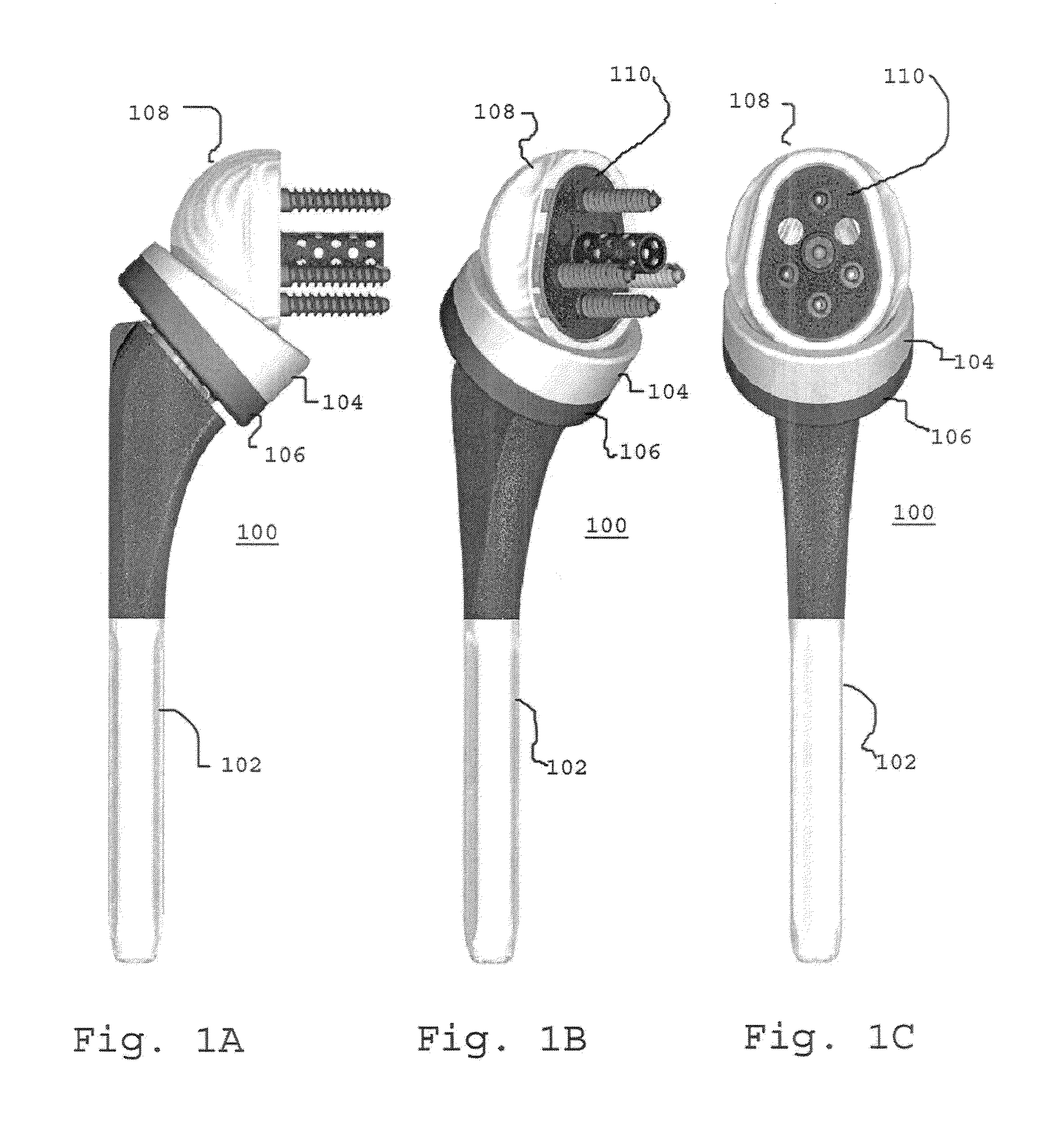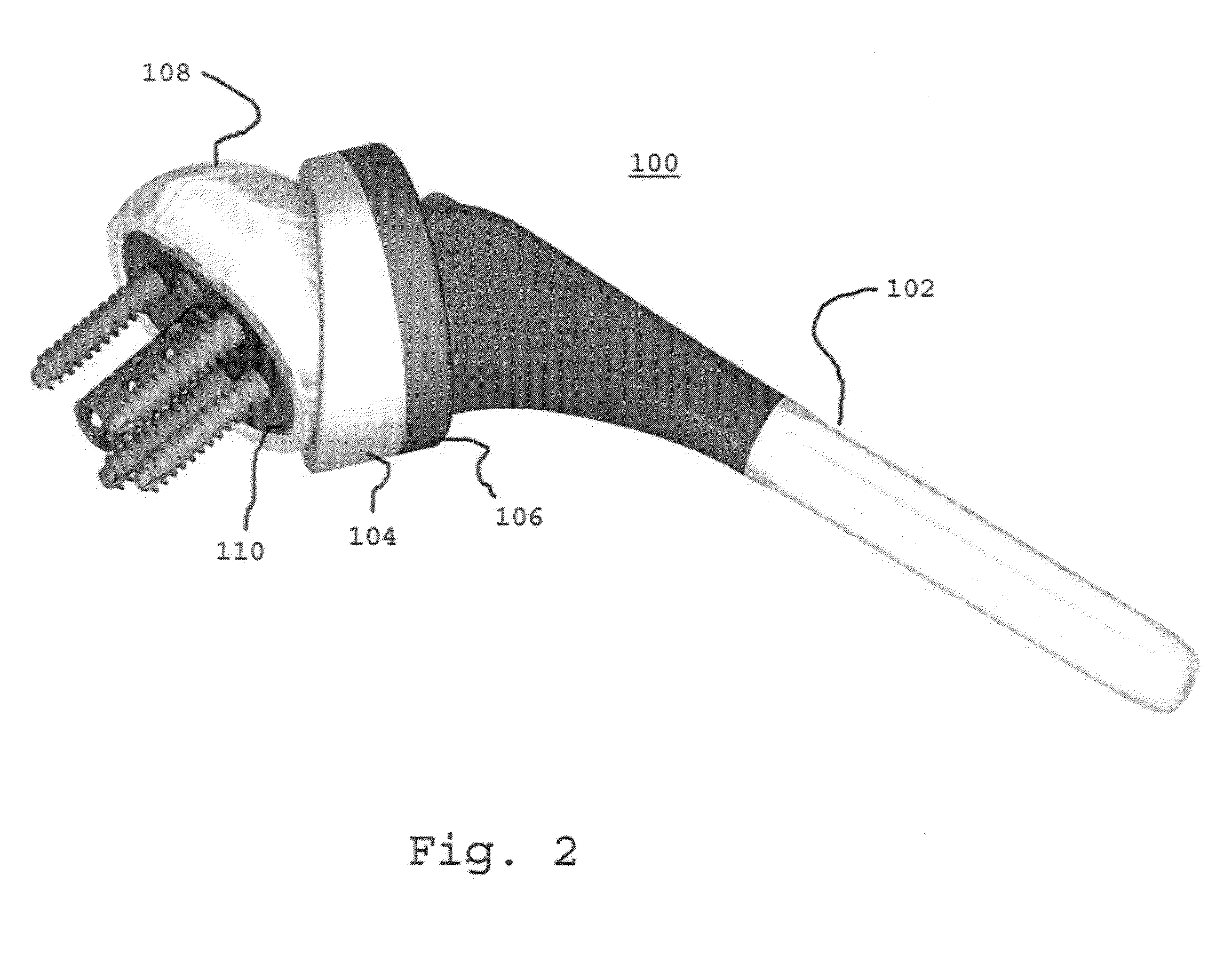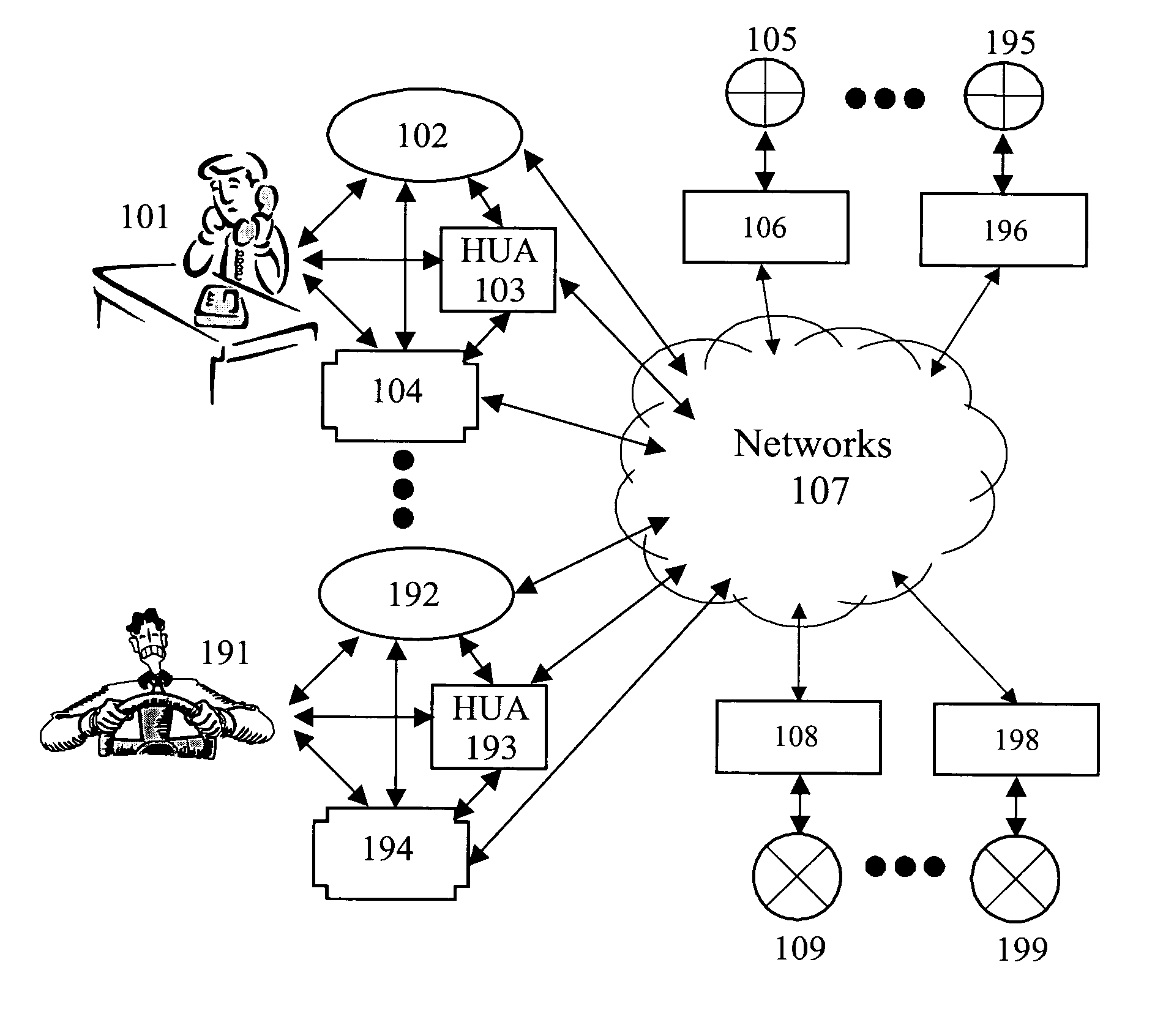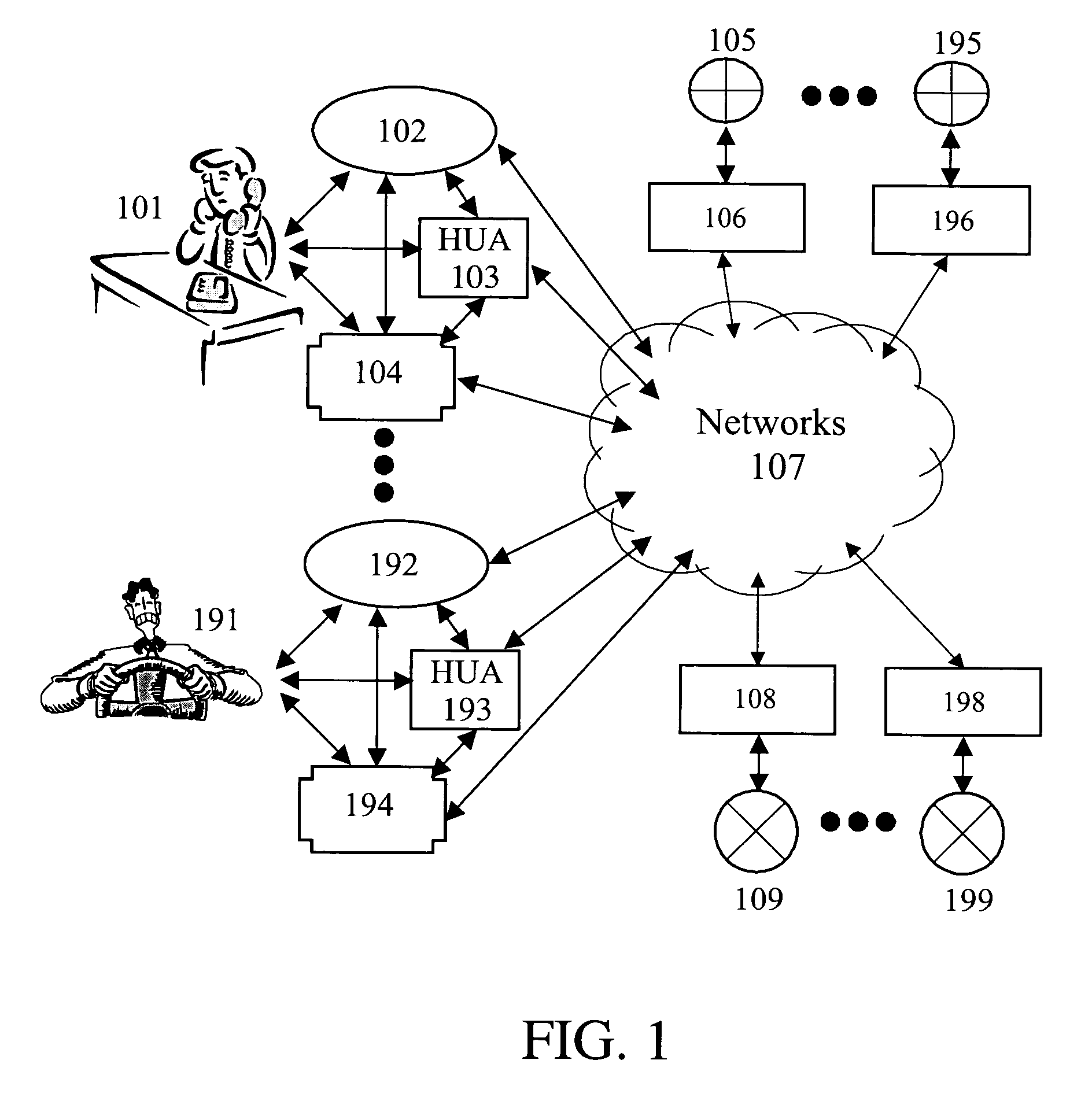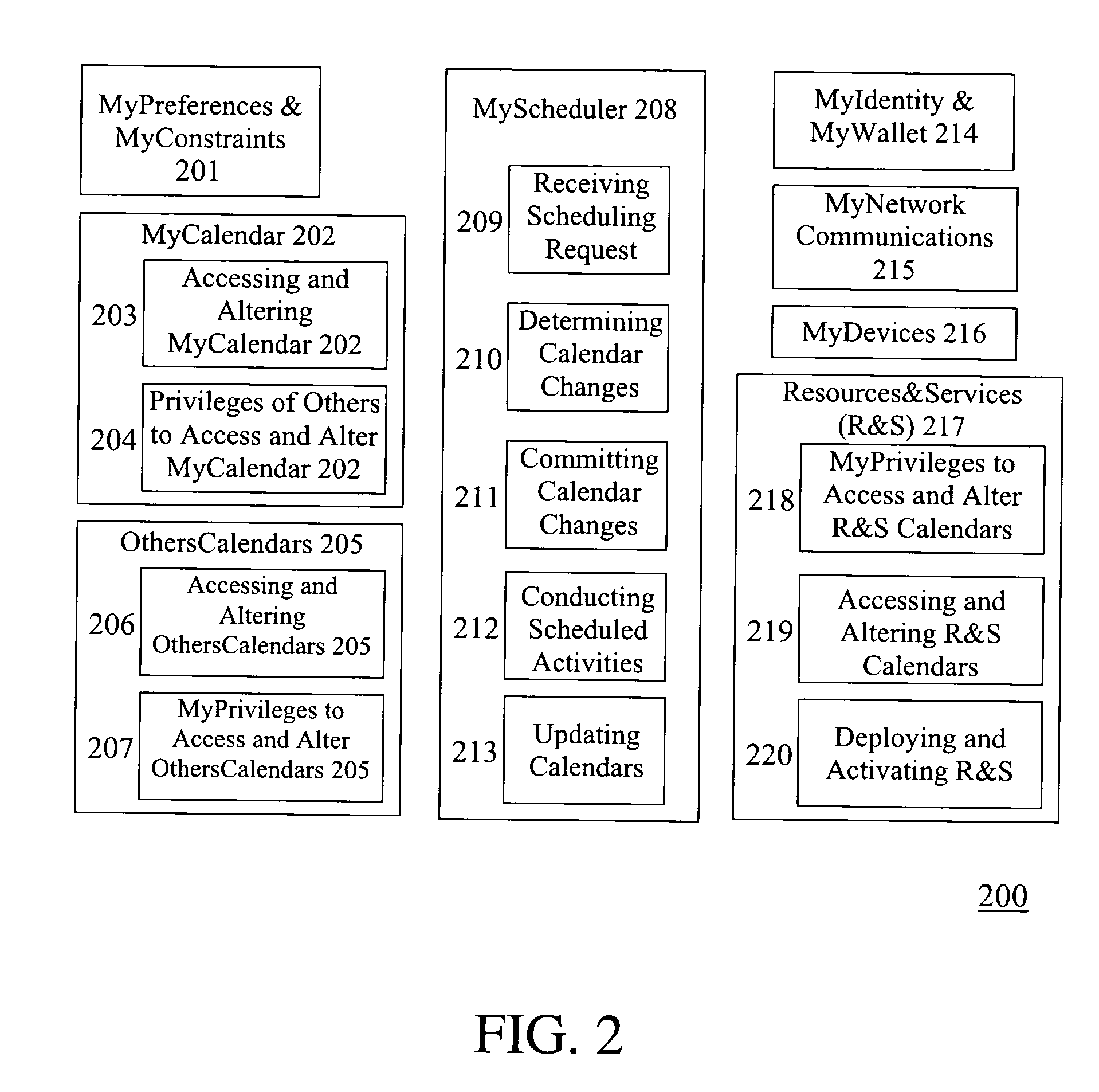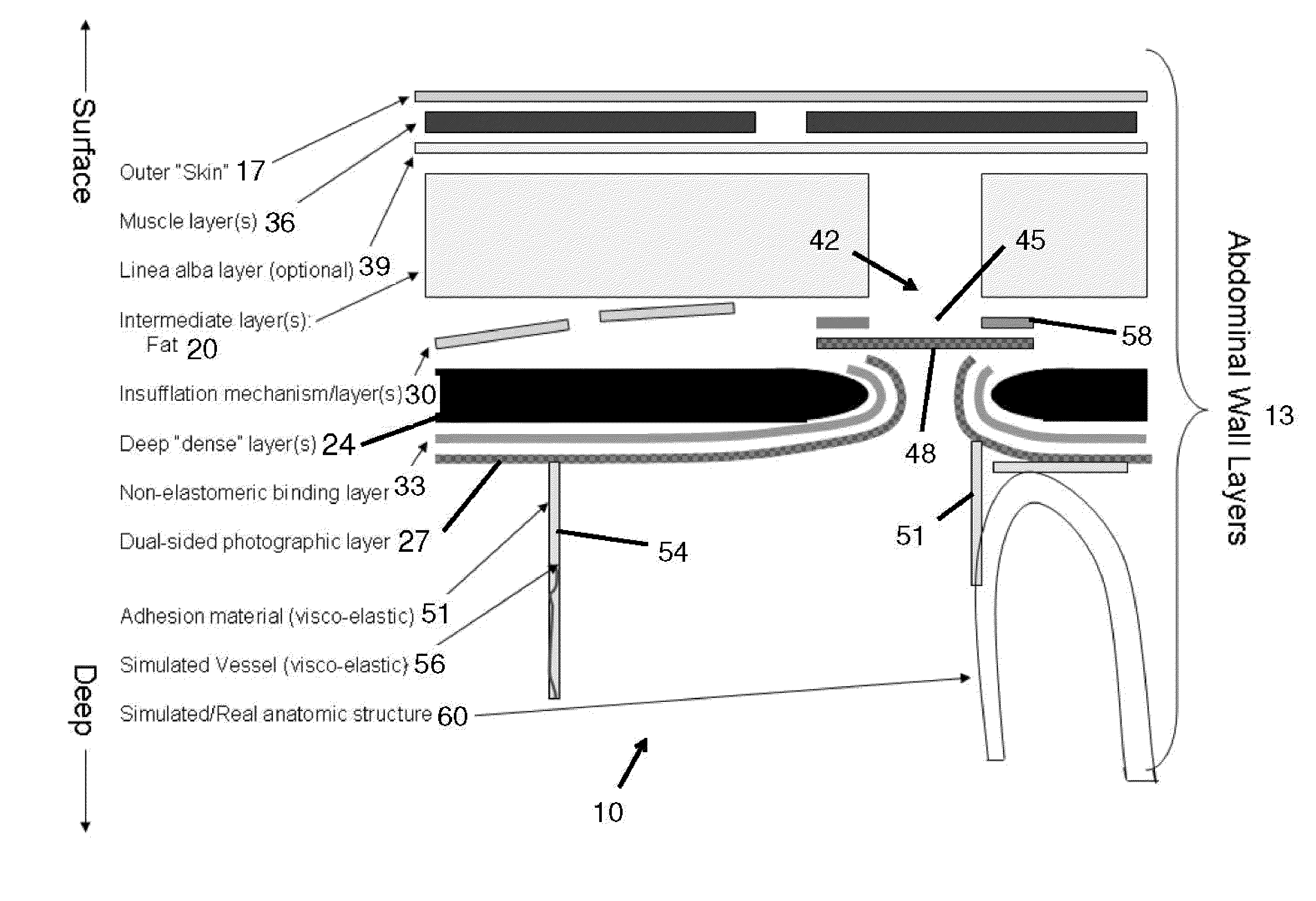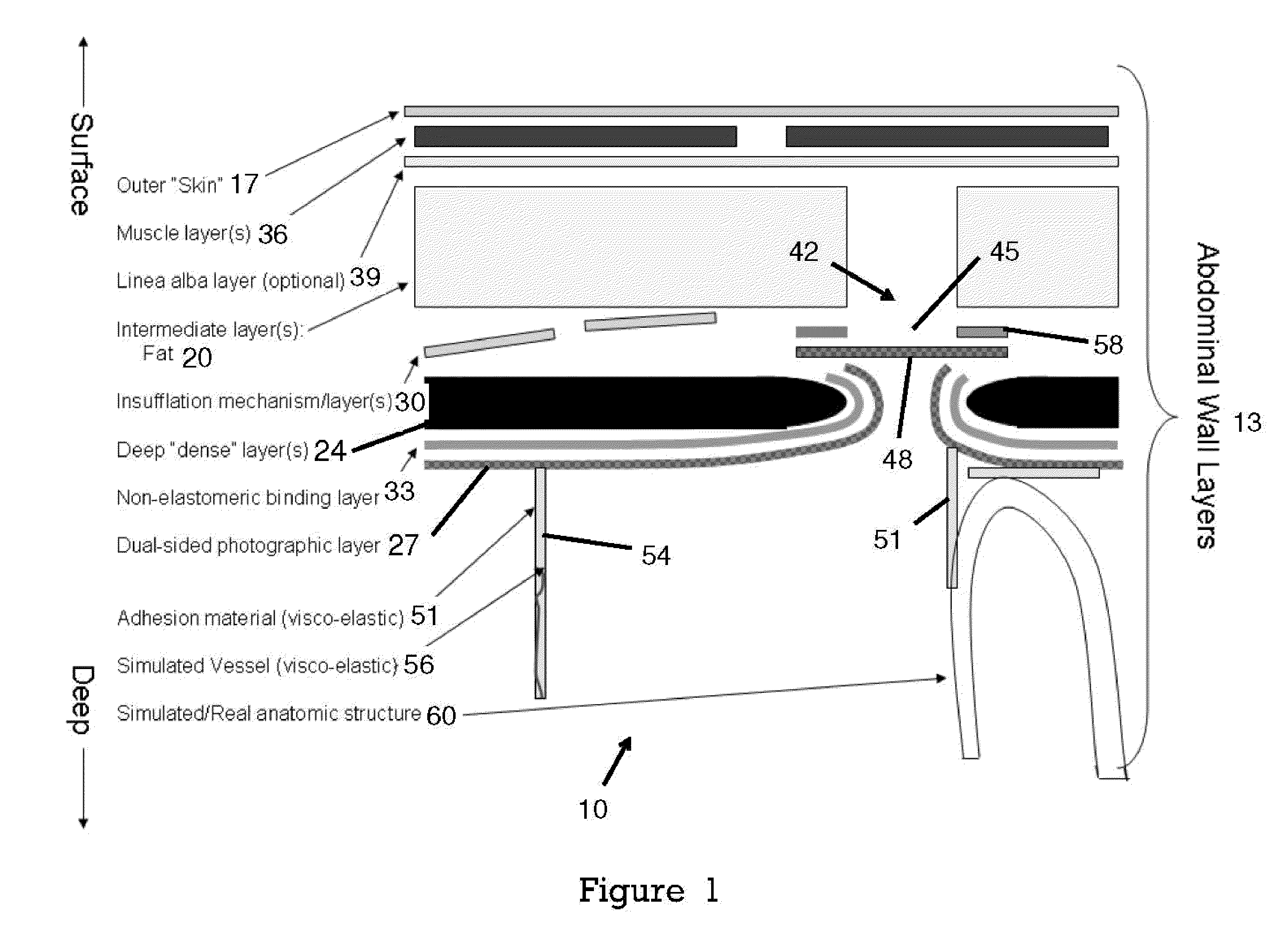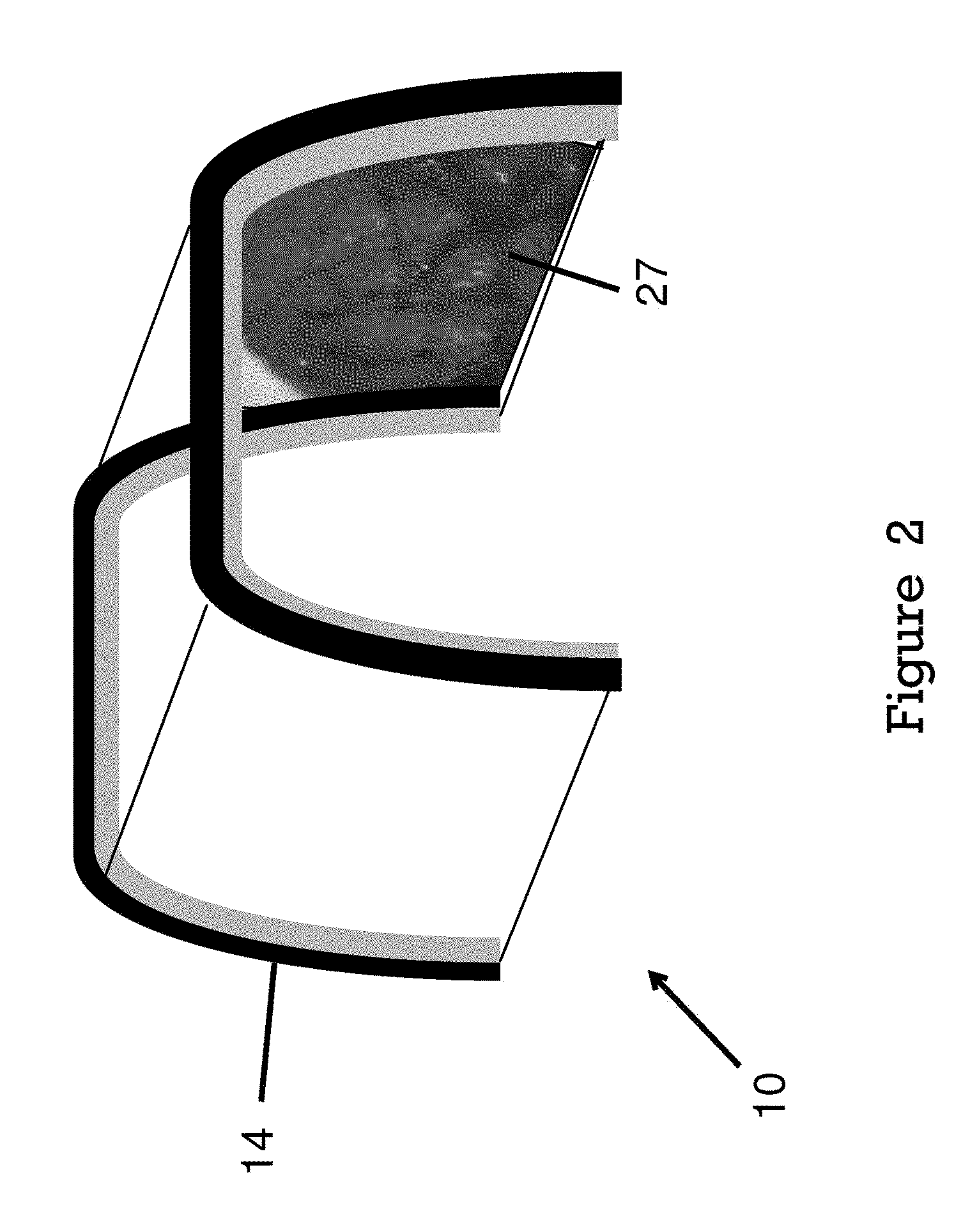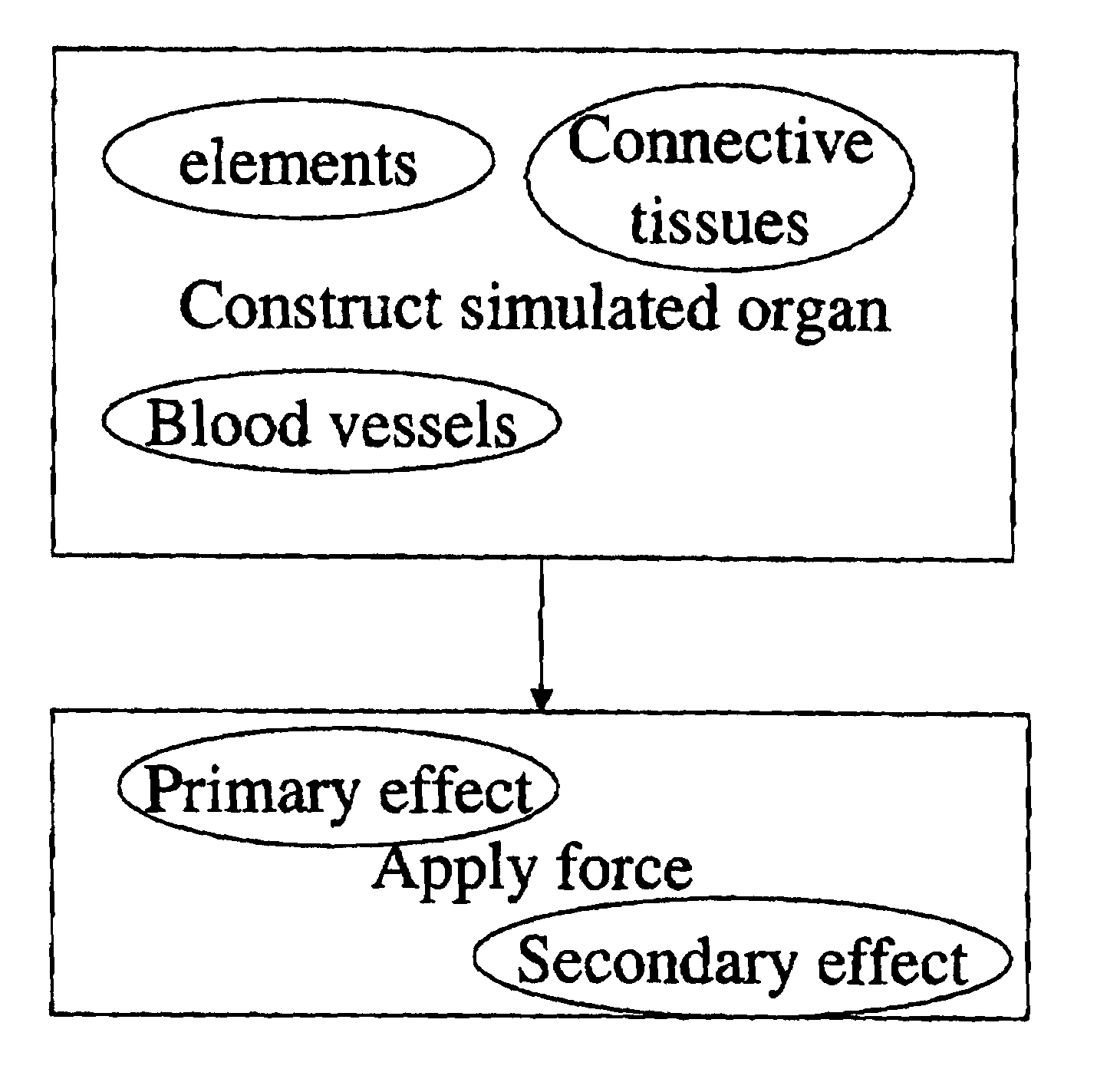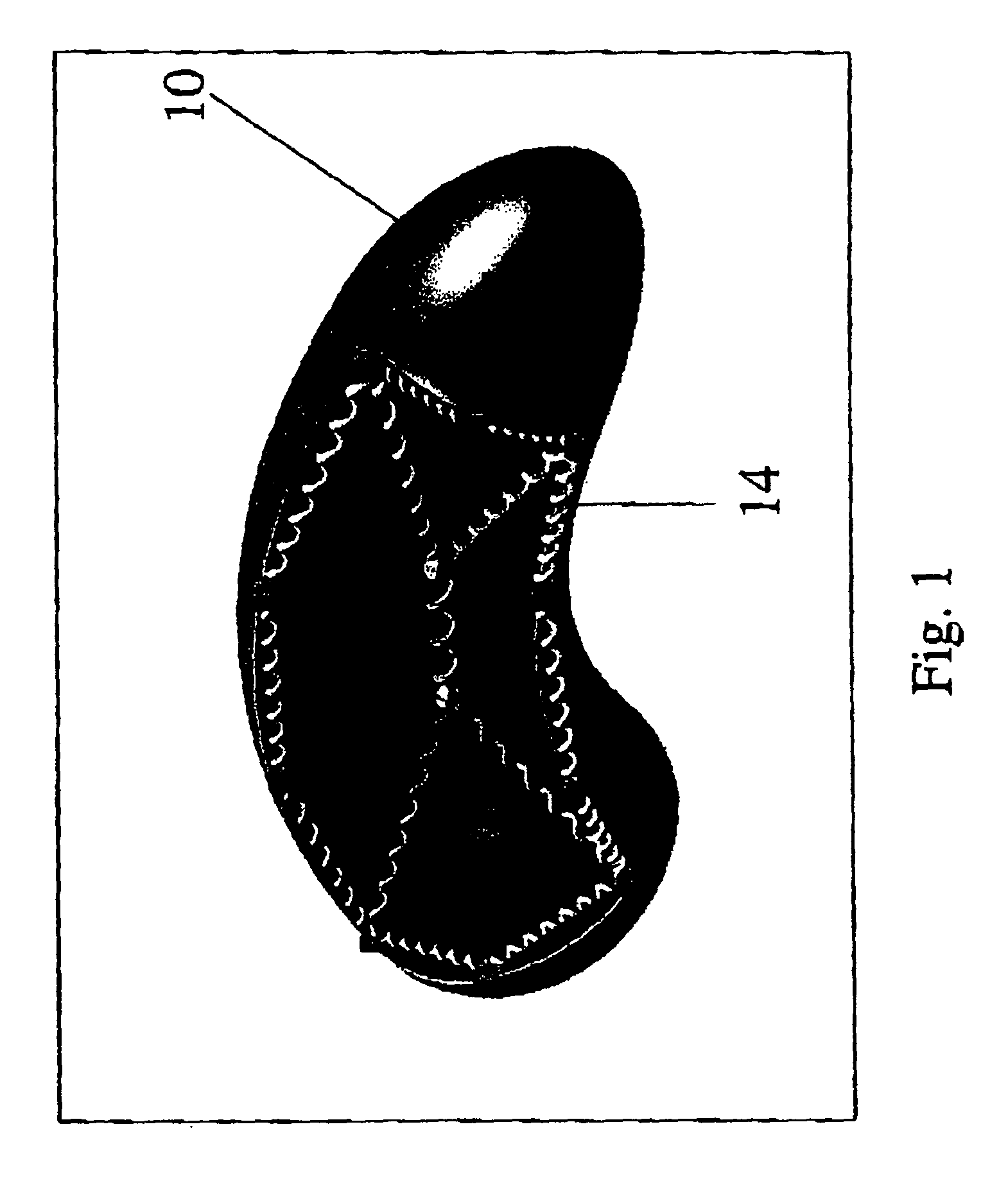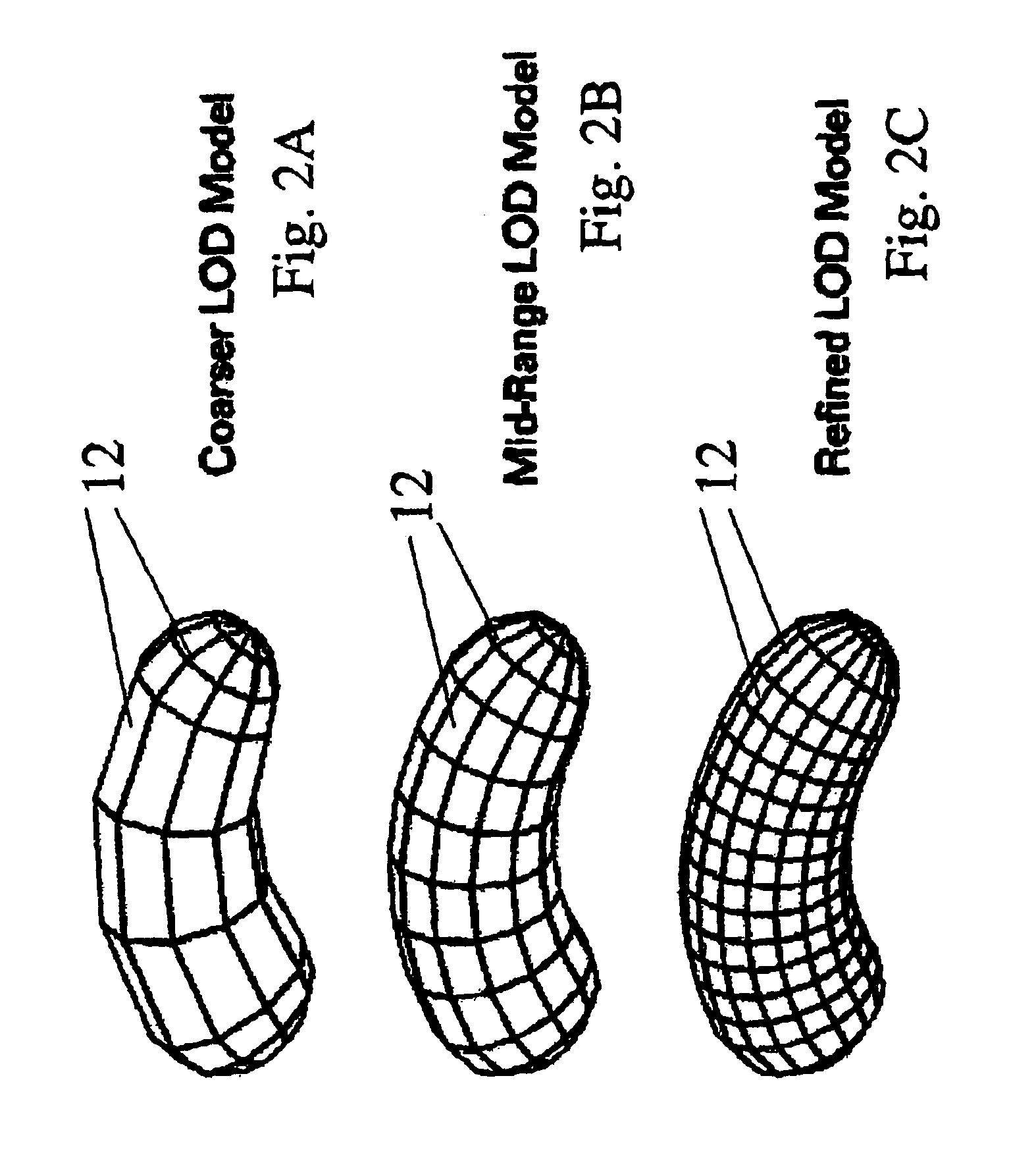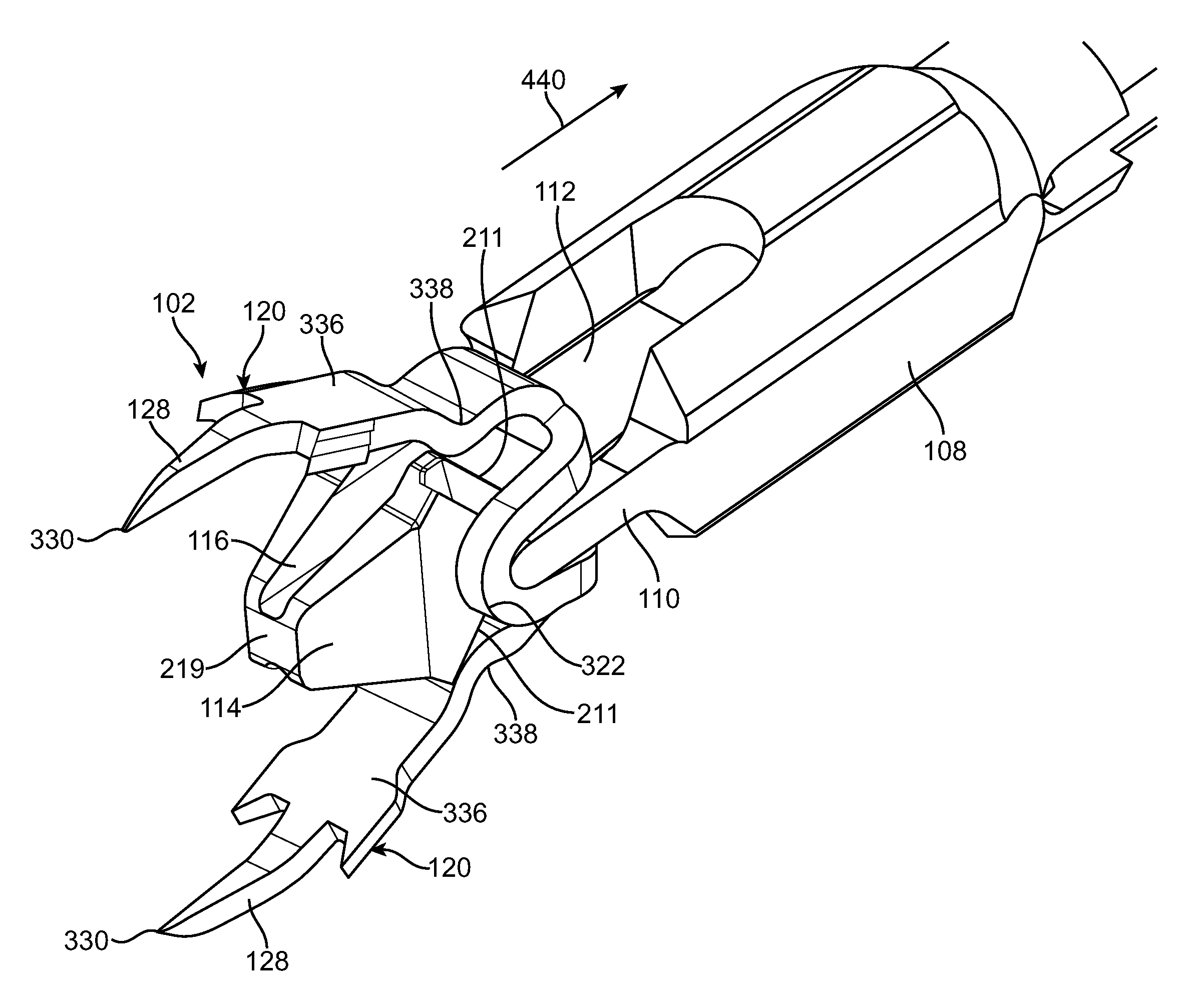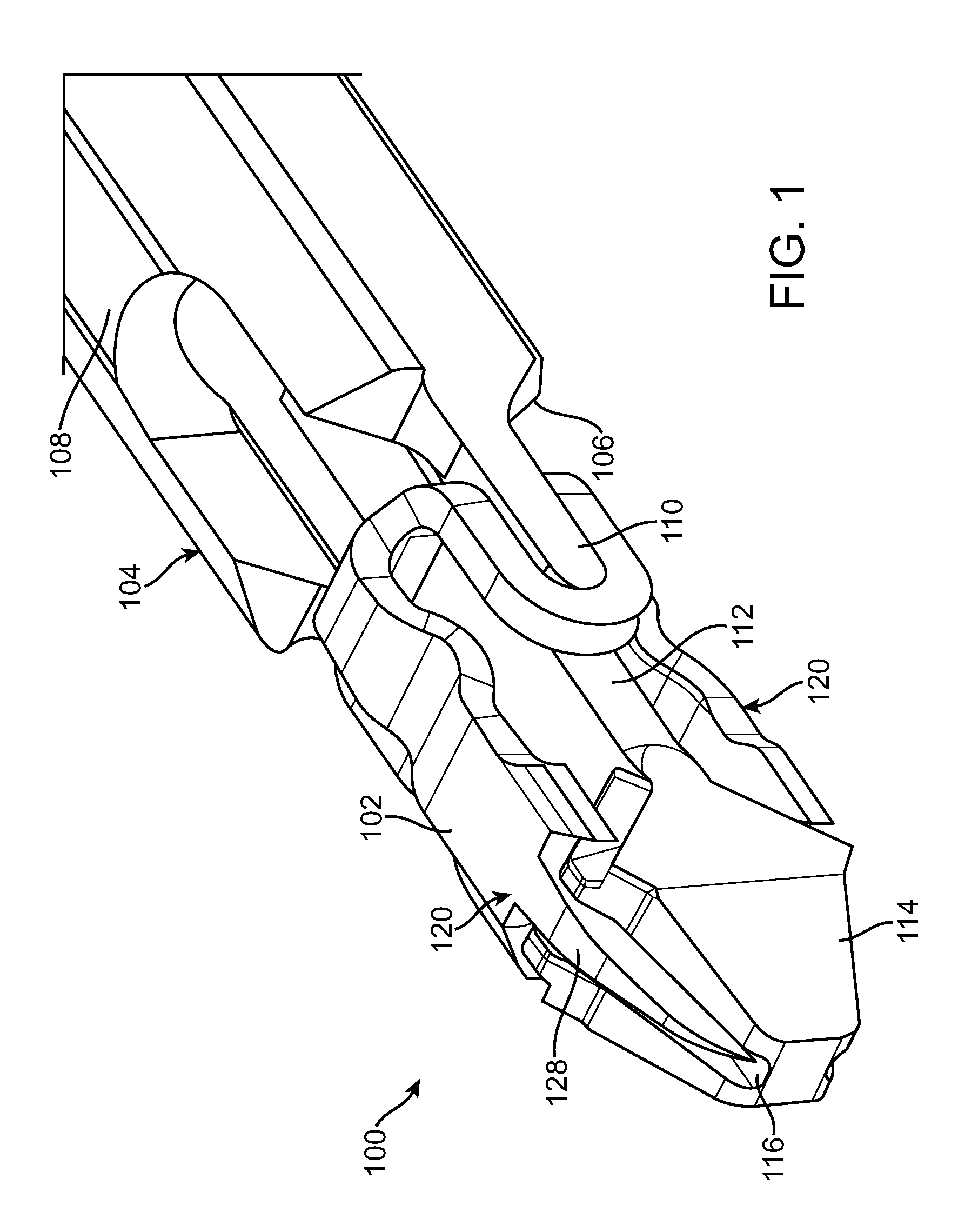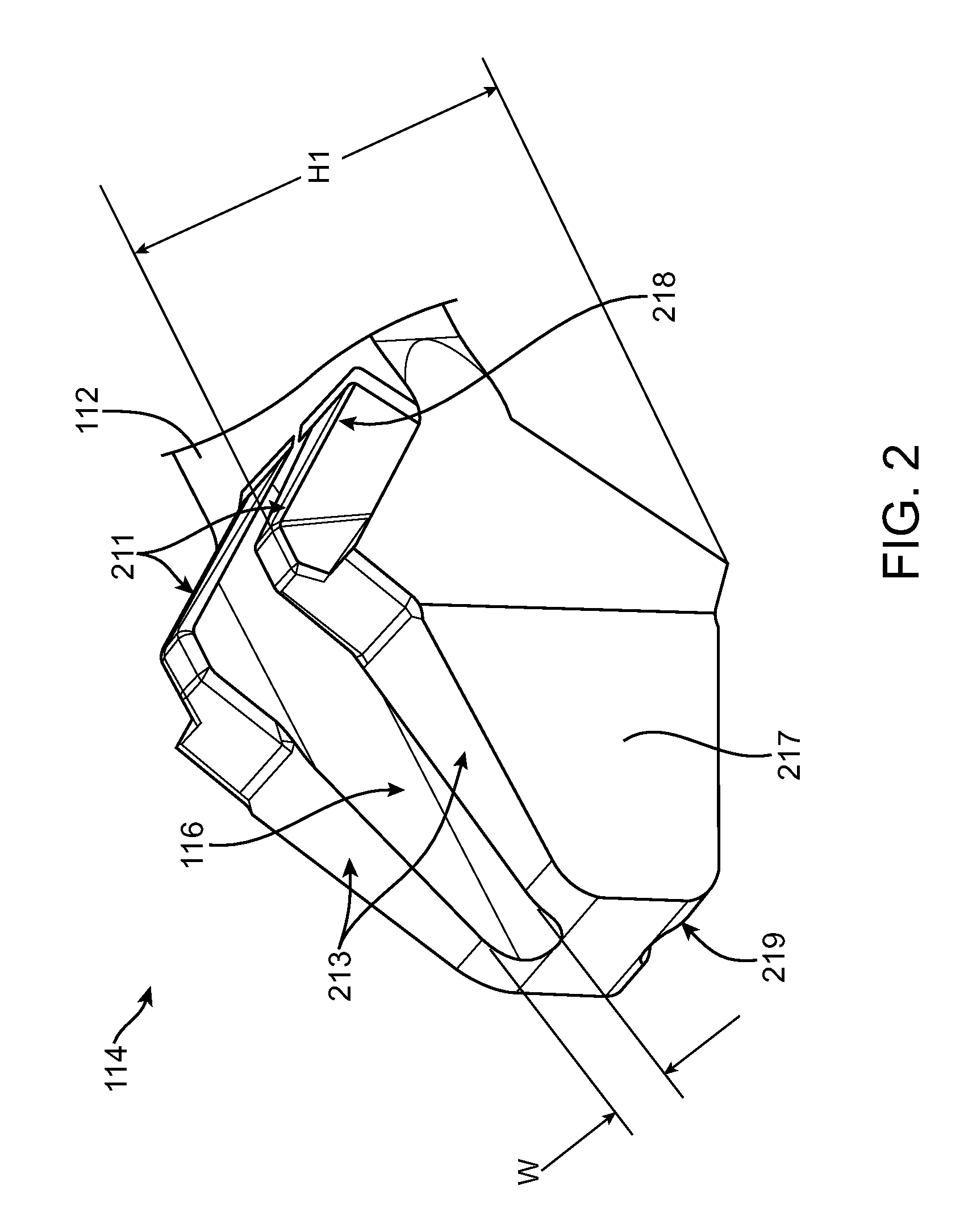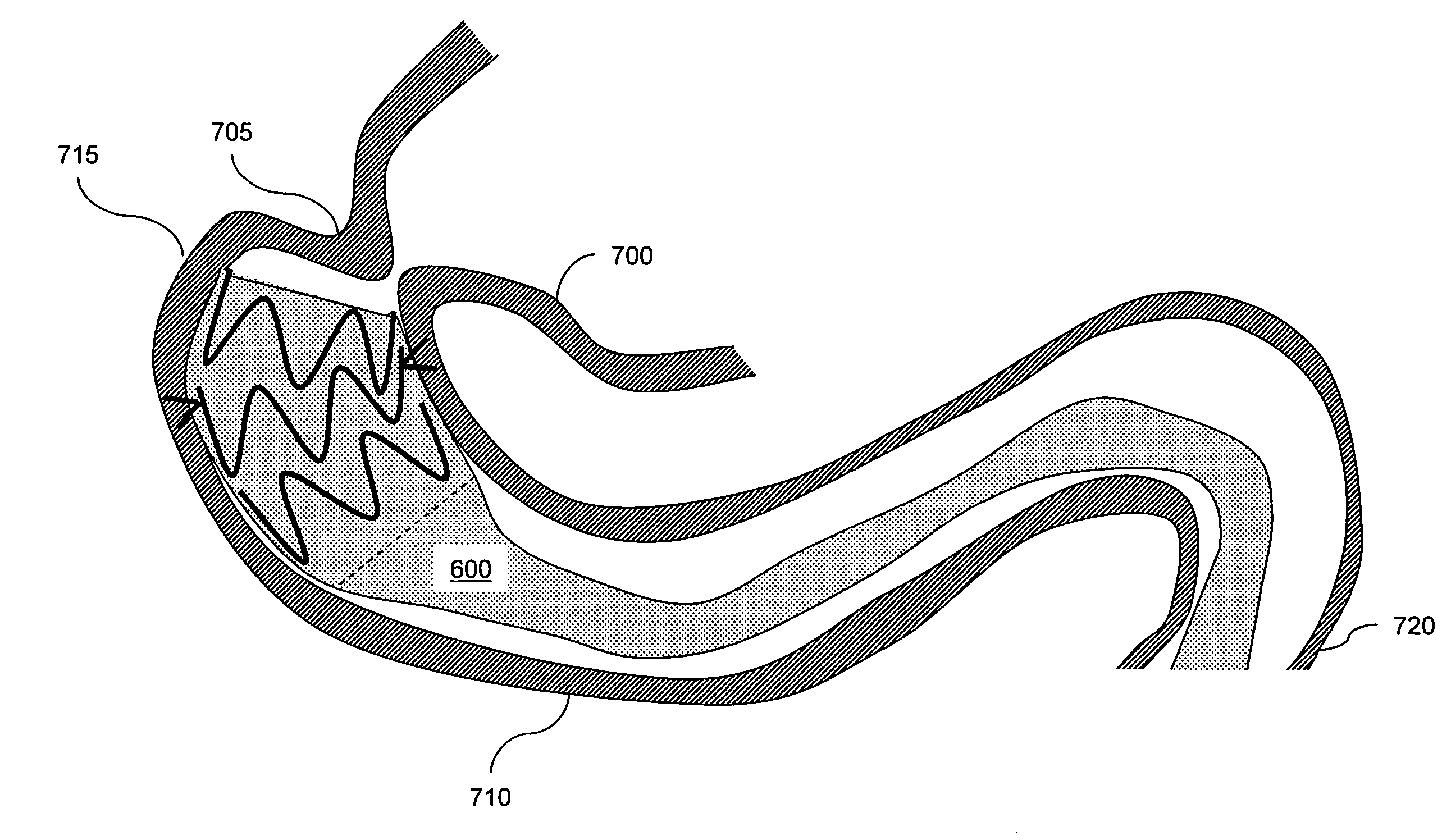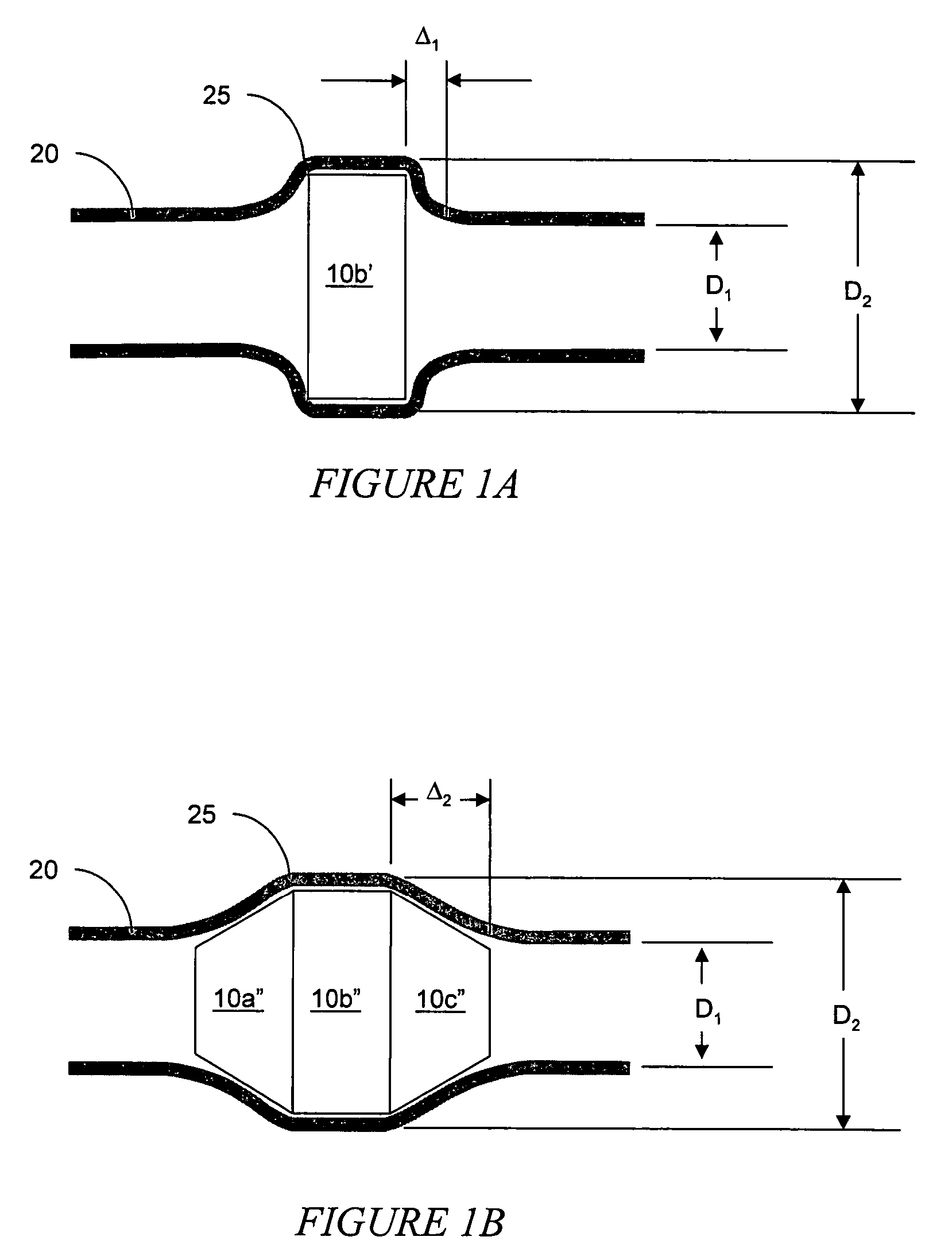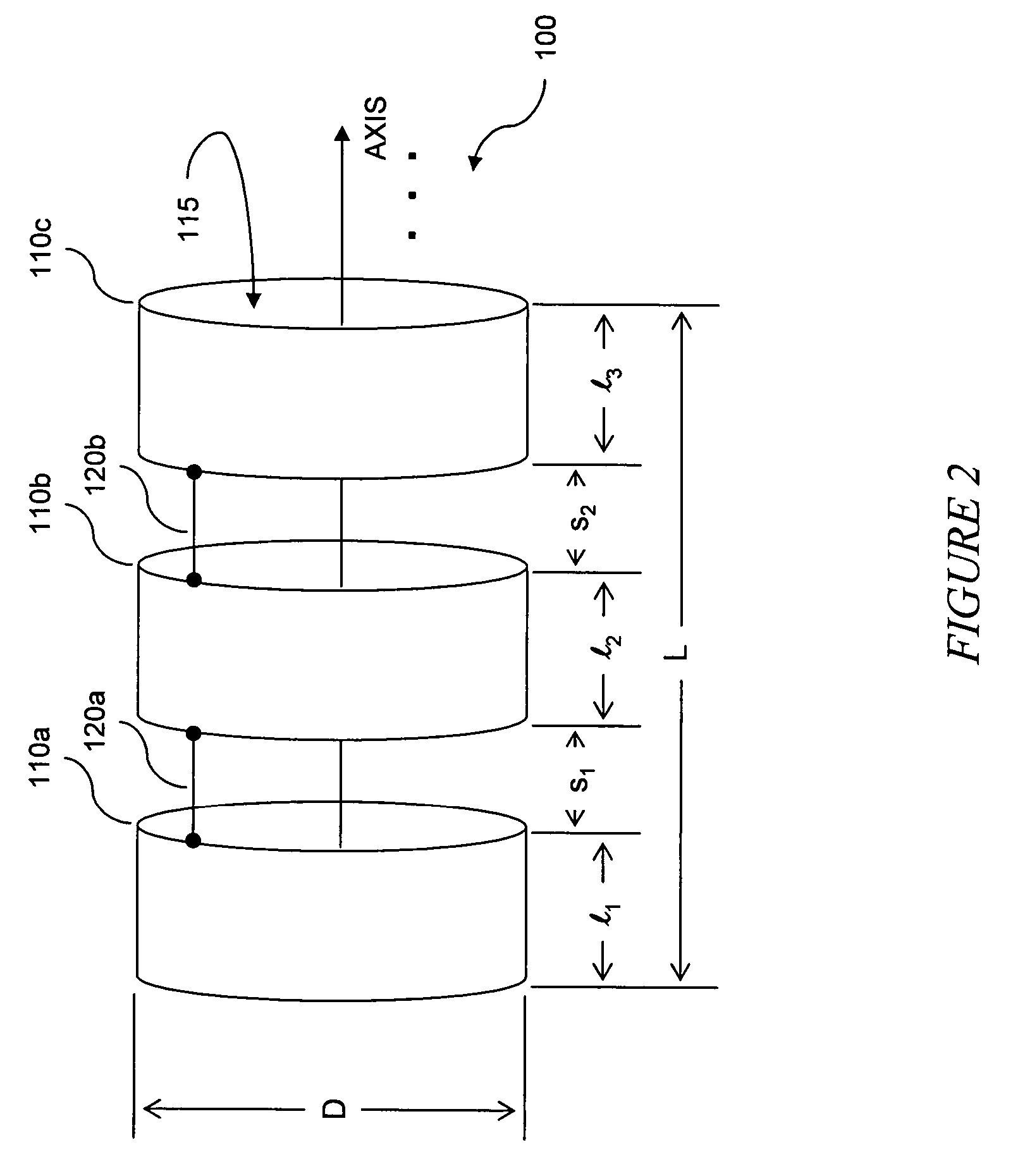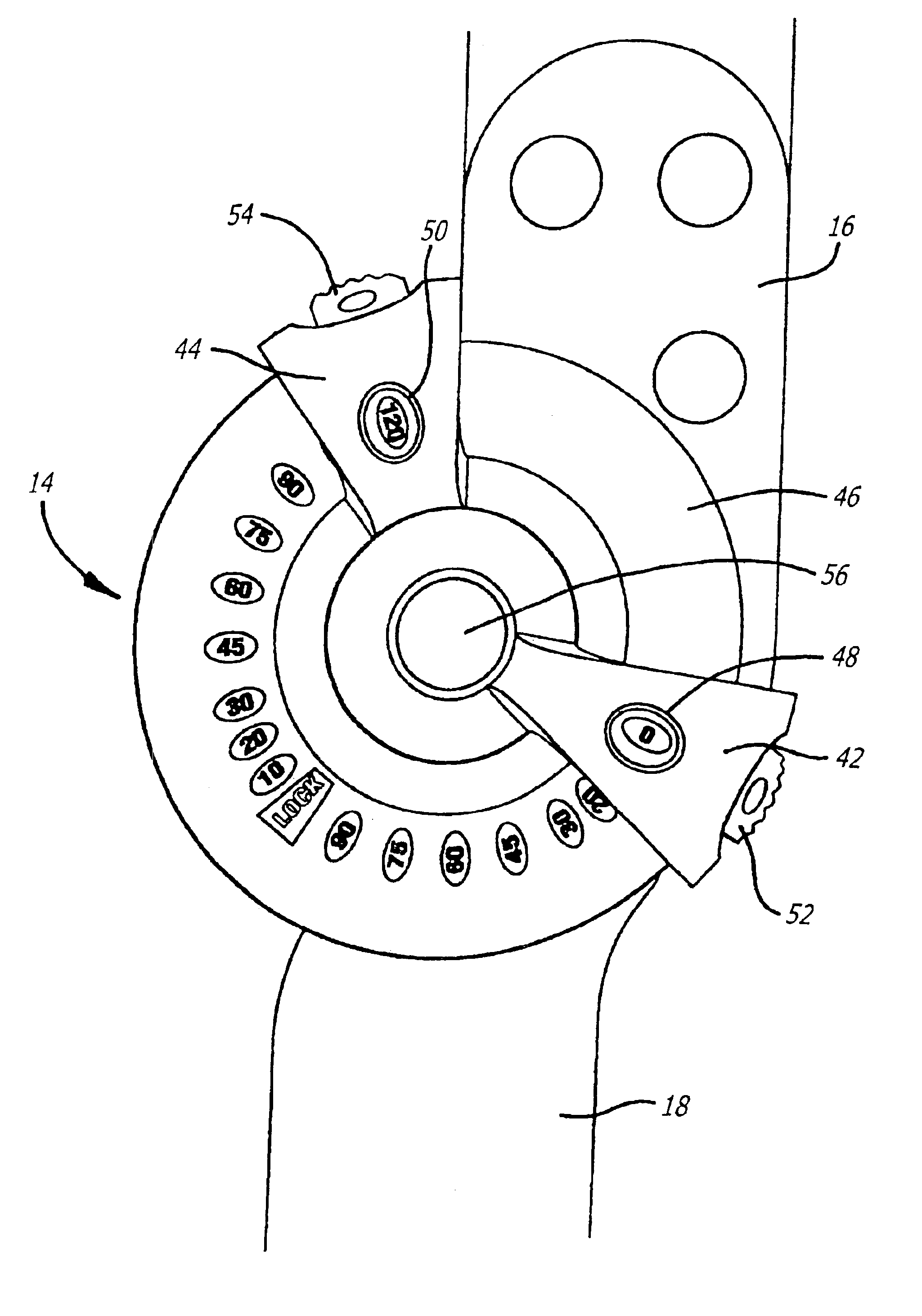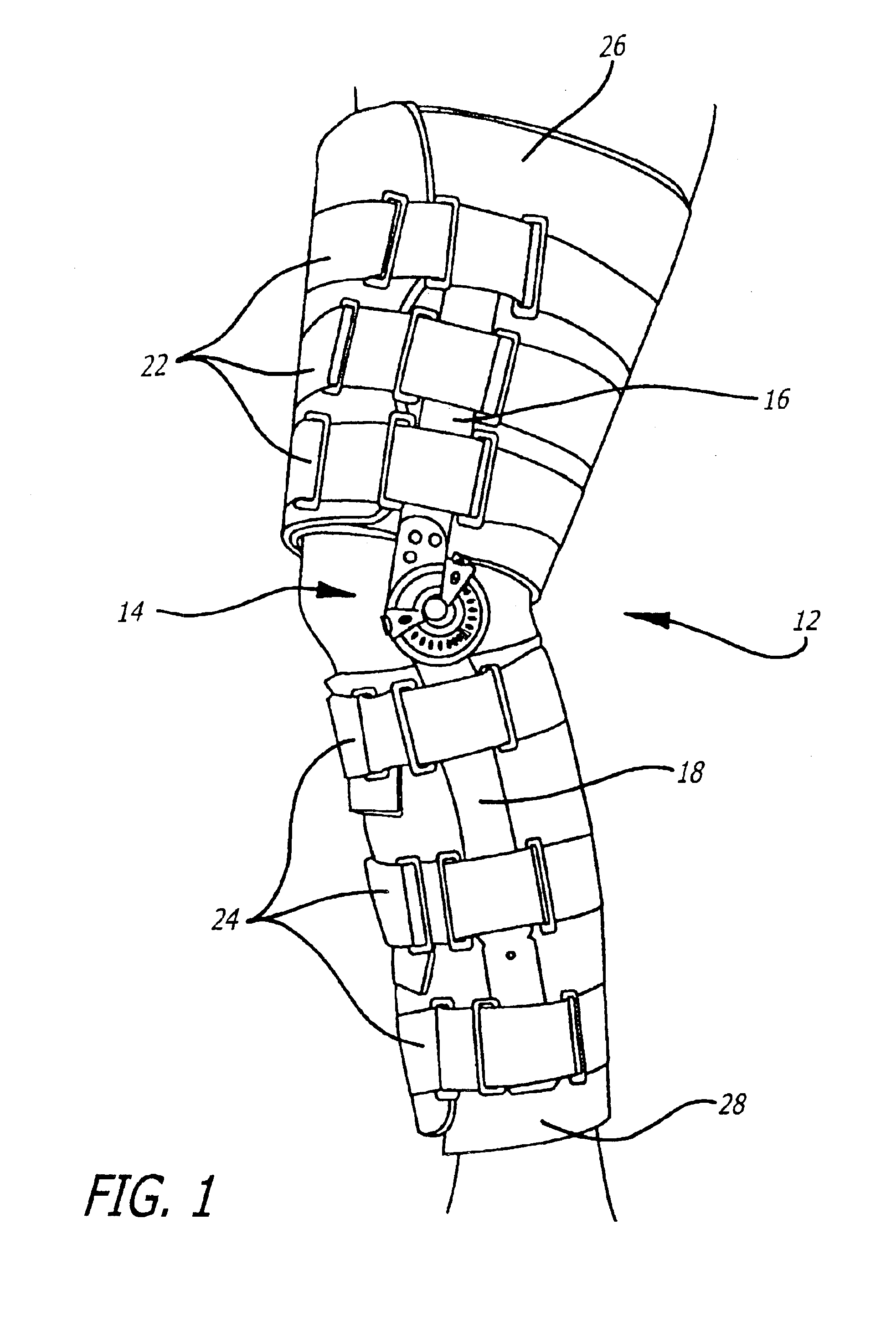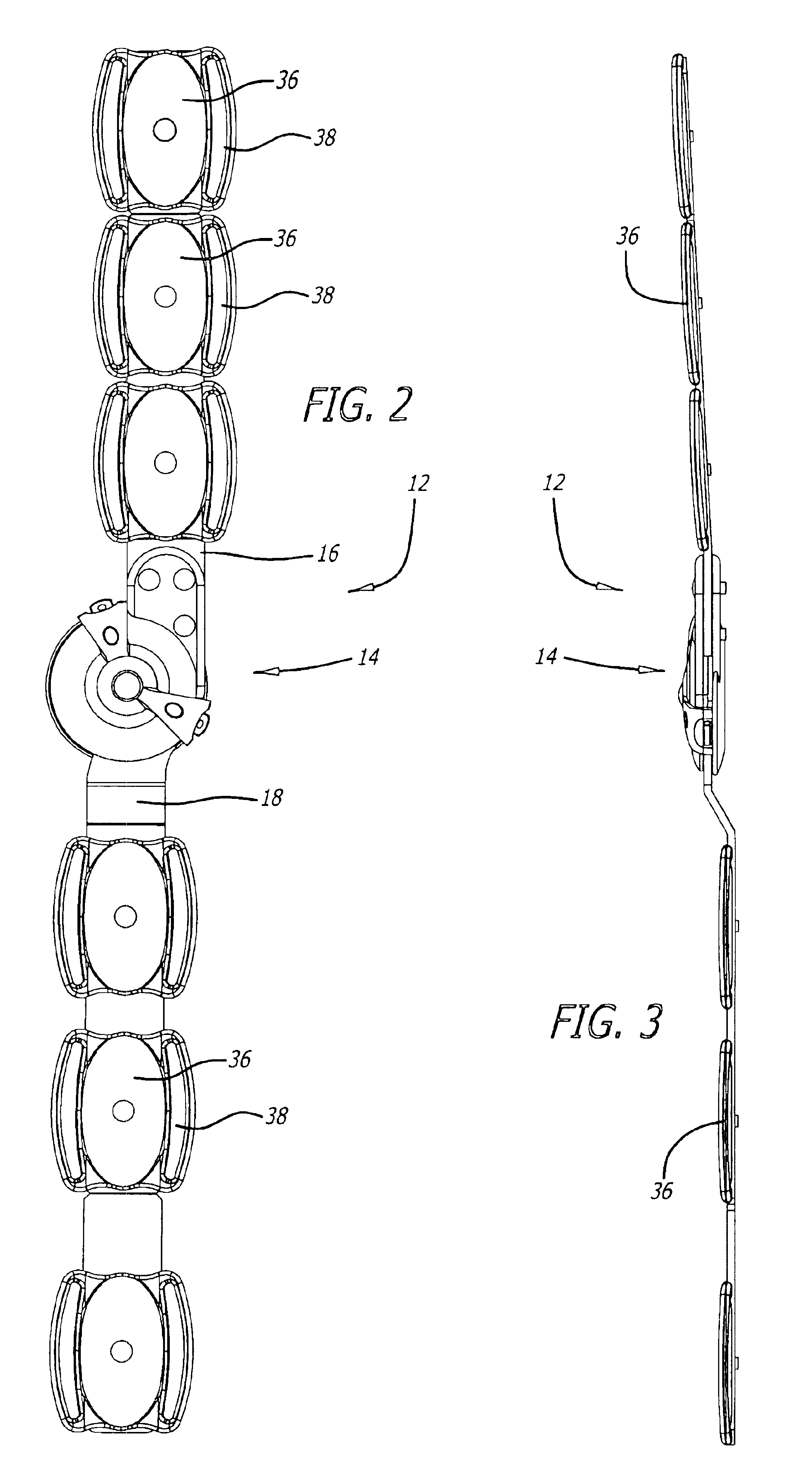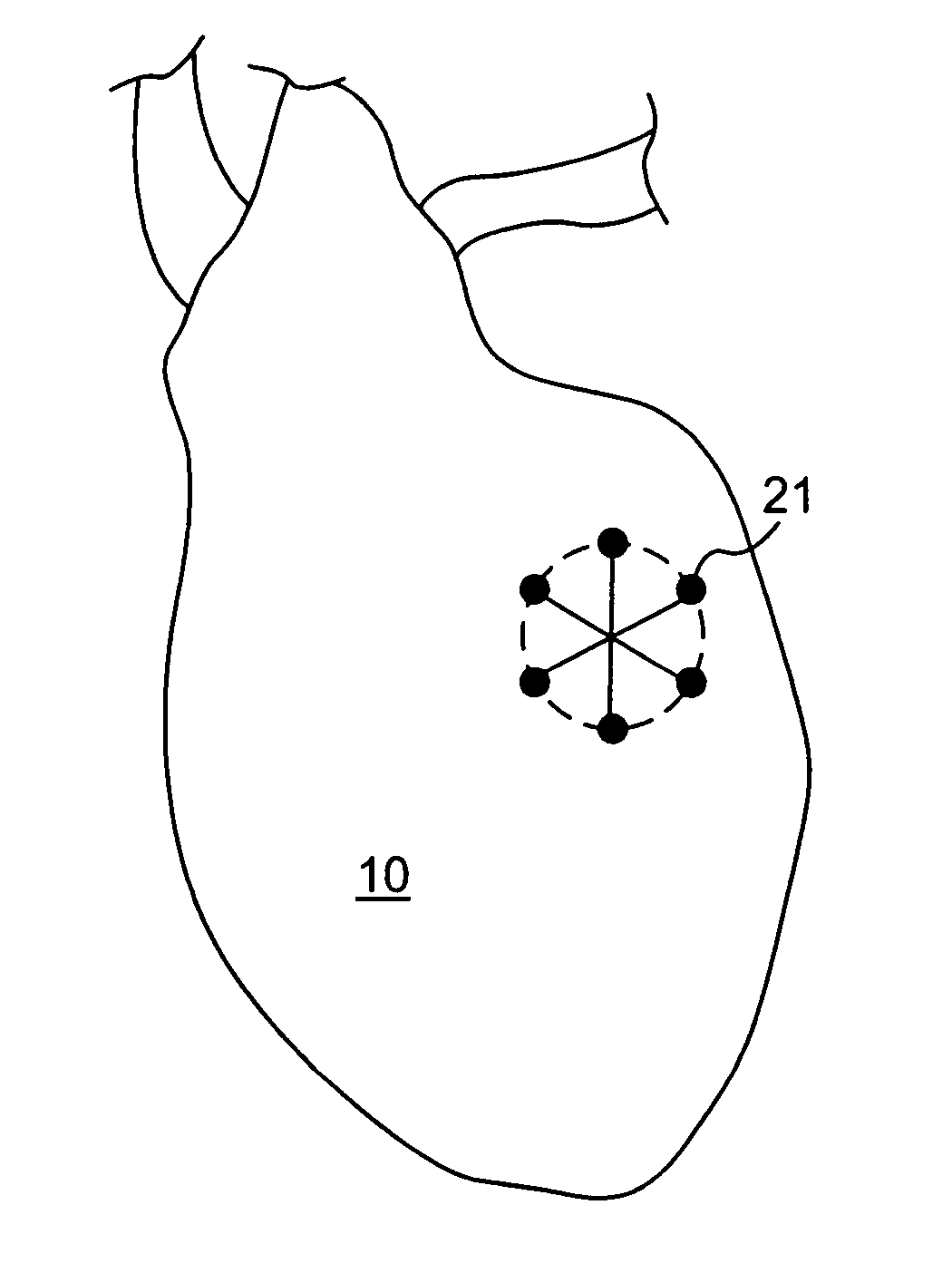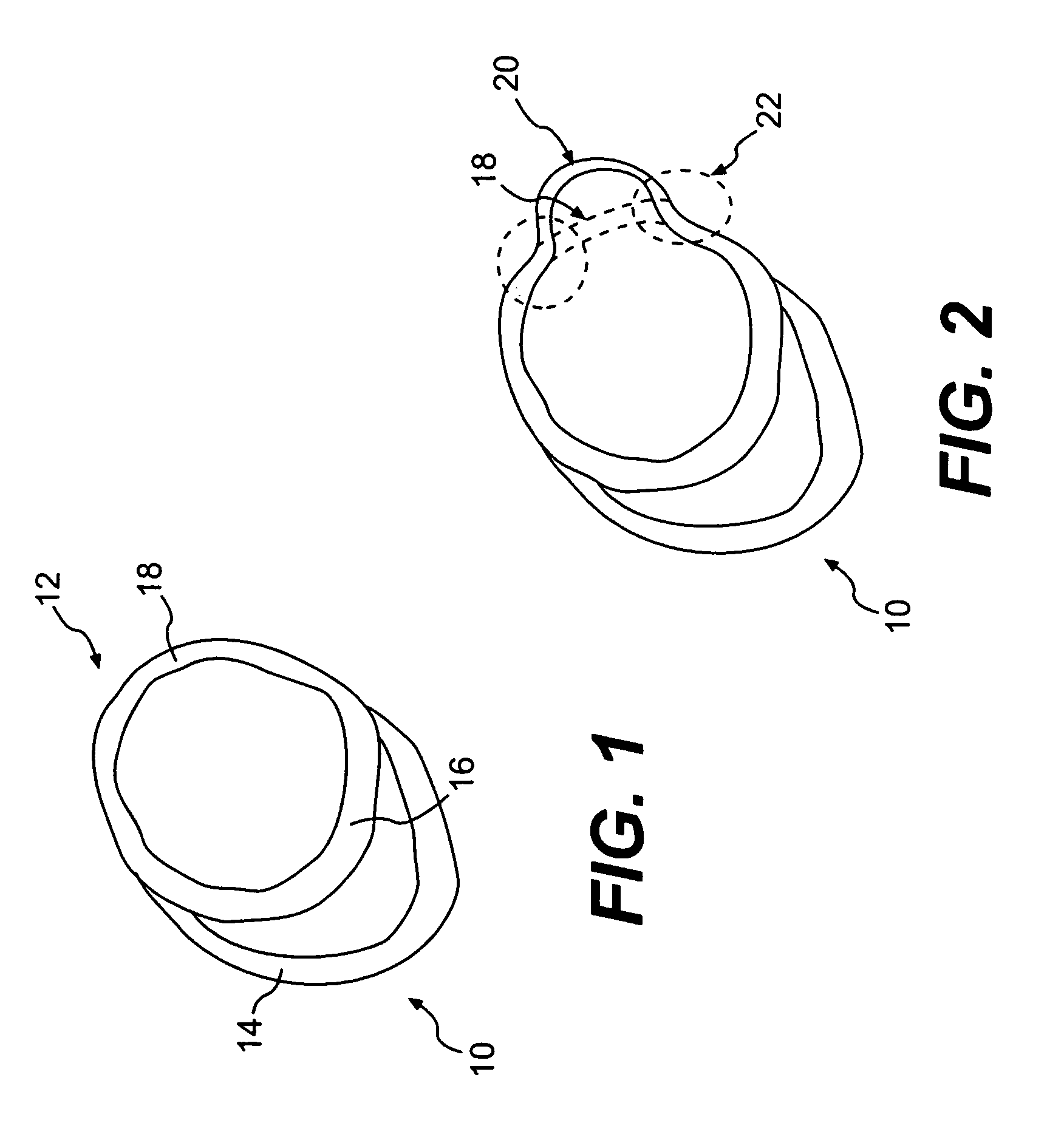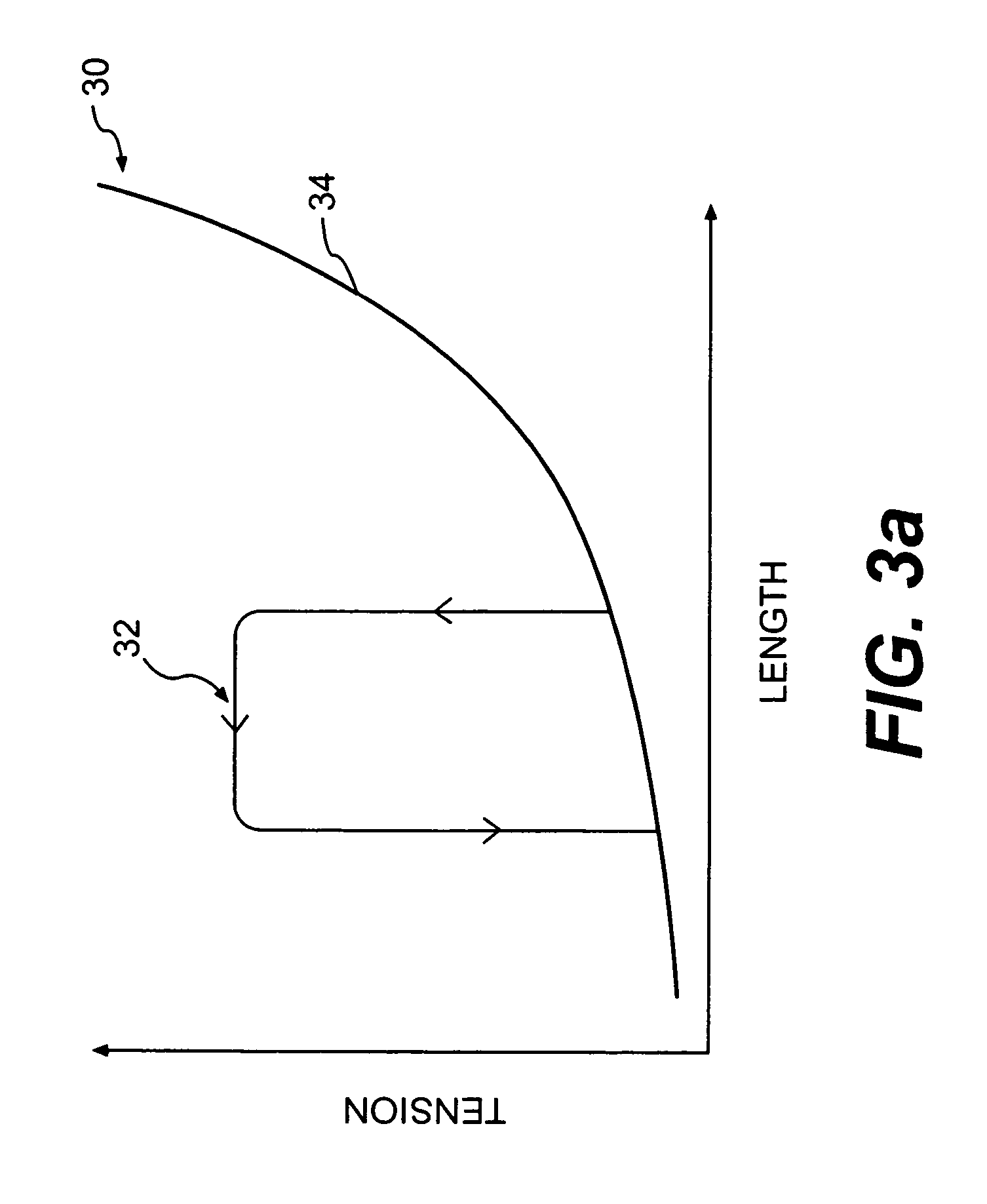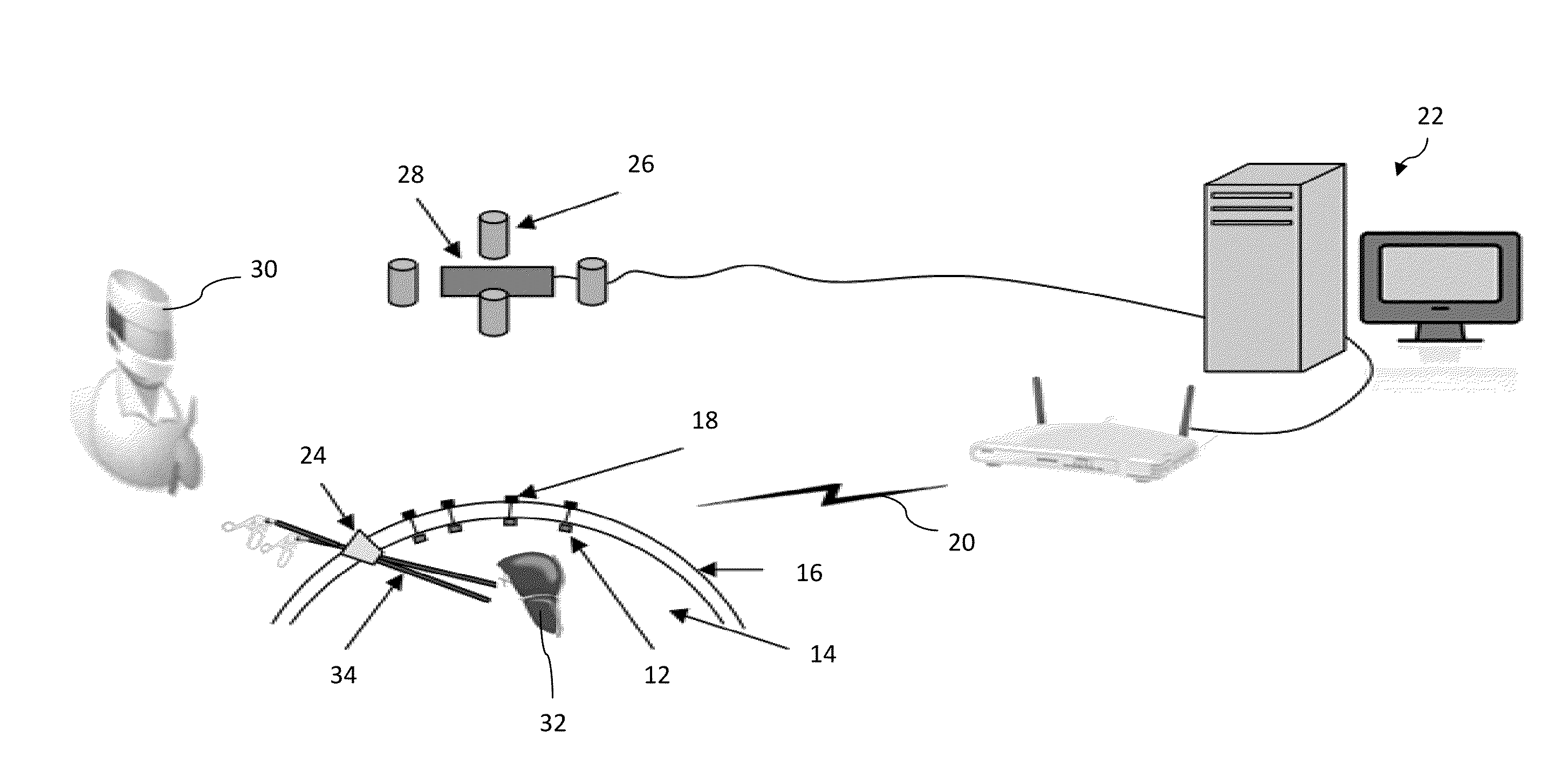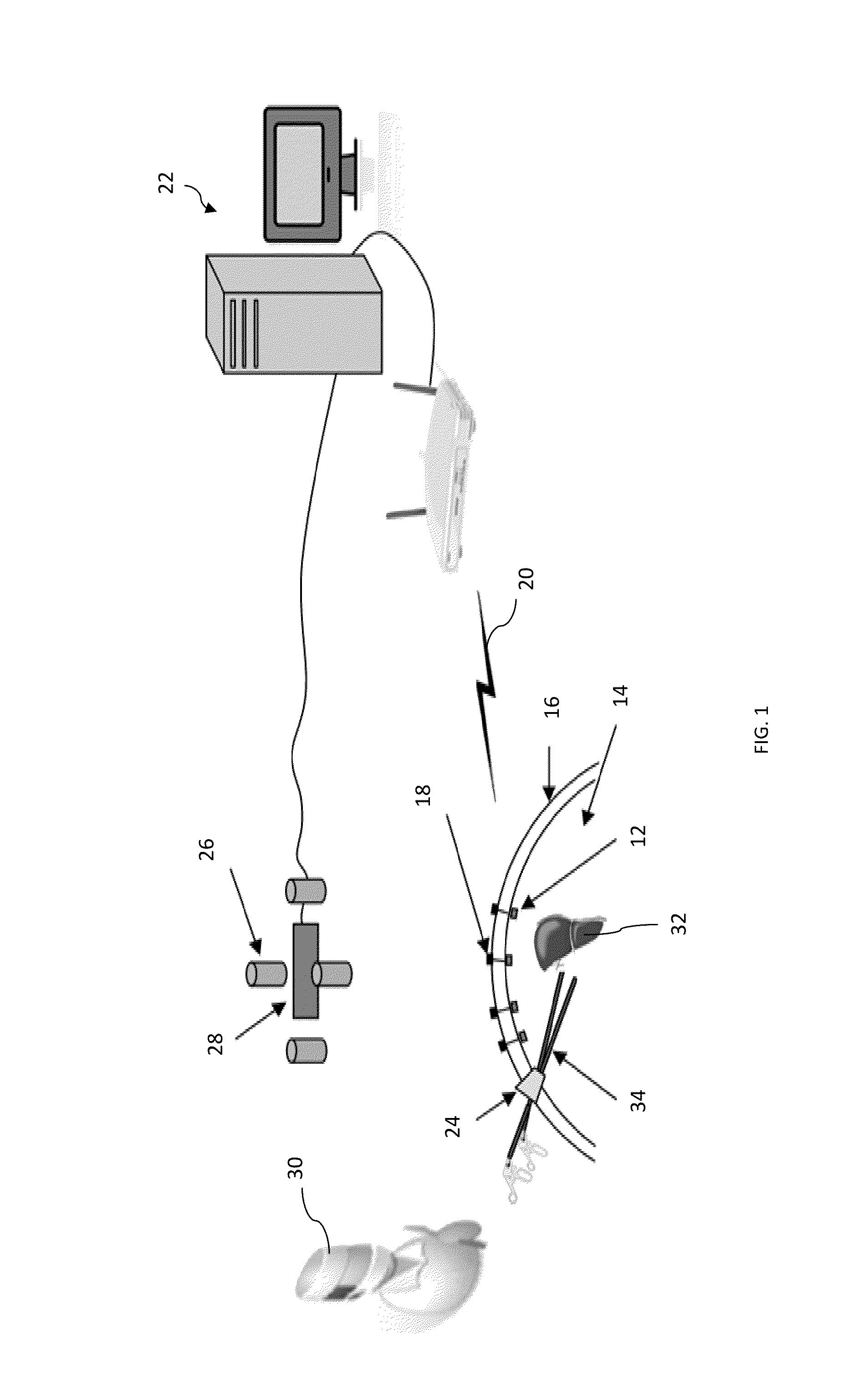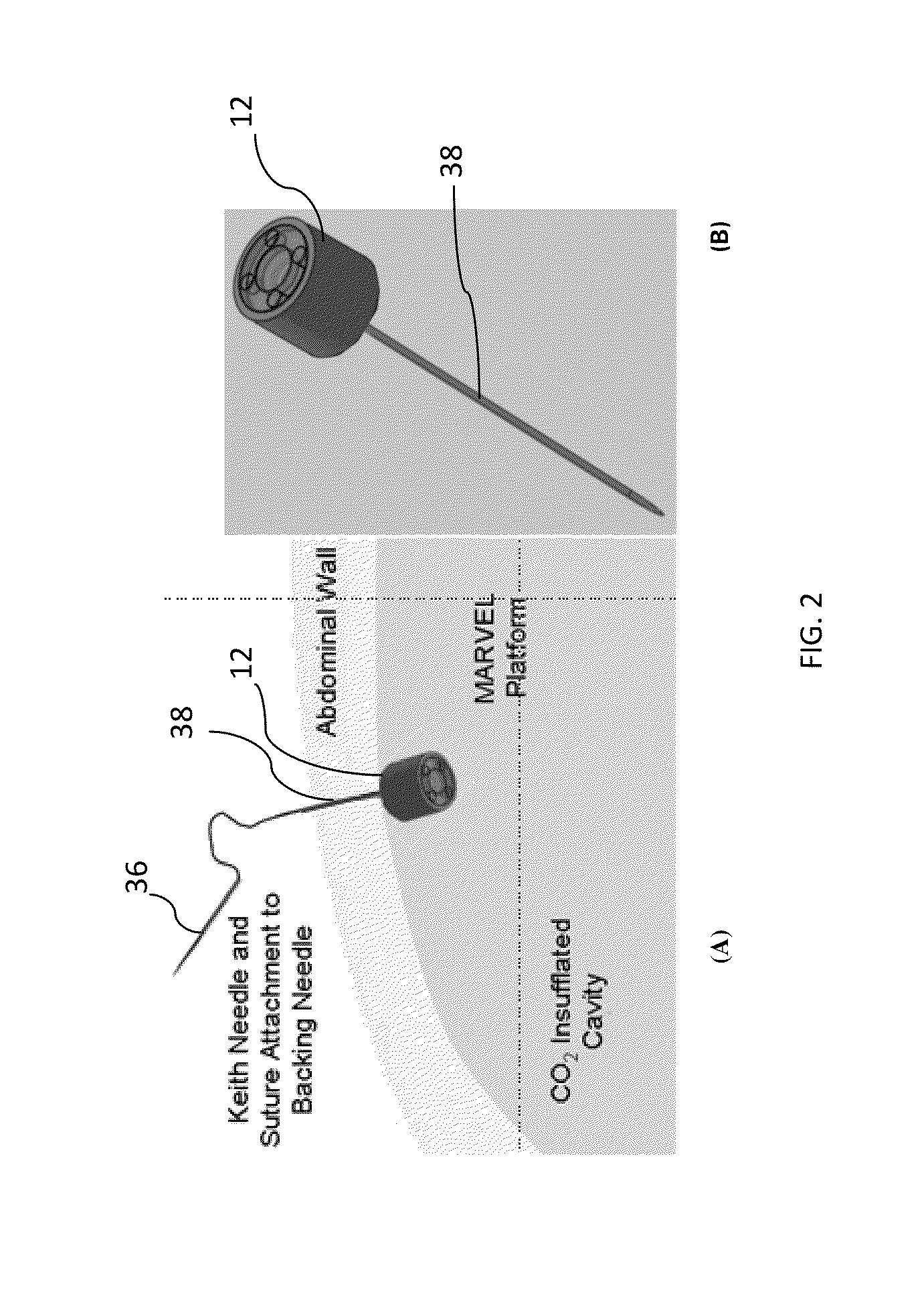Patents
Literature
514 results about "Physis" patented technology
Efficacy Topic
Property
Owner
Technical Advancement
Application Domain
Technology Topic
Technology Field Word
Patent Country/Region
Patent Type
Patent Status
Application Year
Inventor
Physis (/ˈfaɪˈsɪs/; Ancient Greek: φύσις [pʰýsis]) is a Greek theological, philosophical, and scientific term usually translated into English as "nature". The term is central to Greek philosophy, and as a consequence to Western philosophy as a whole. In pre-Socratic usage, physis was contrasted with νόμος, nomos, "law, human convention." Since Aristotle, however, the physical (the subject matter of physics, properly τὰ φυσικά "natural things") has more typically been juxtaposed to the metaphysical.
Interactive user interfaces for robotic minimally invasive surgical systems
ActiveUS8398541B2Ultrasonic/sonic/infrasonic diagnosticsMechanical/radiation/invasive therapiesMini invasive surgeryDisplay device
In one embodiment of the invention, a method for a minimally invasive surgical system is disclosed. The method includes capturing and displaying camera images of a surgical site on at least one display device at a surgeon console; switching out of a following mode and into a masters-as-mice (MaM) mode; overlaying a graphical user interface (GUI) including an interactive graphical object onto the camera images; and rendering a pointer within the camera images for user interactive control. In the following mode, the input devices of the surgeon console may couple motion into surgical instruments. In the MaM mode, the input devices interact with the GUI and interactive graphical objects. The pointer is manipulated in three dimensions by input devices having at least three degrees of freedom. Interactive graphical objects are related to physical objects in the surgical site or a function thereof and are manipulatable by the input devices.
Owner:THE JOHN HOPKINS UNIV SCHOOL OF MEDICINE +1
Methods, systems, and computer program products for shaping medical implants directly from virtual reality models
InactiveUS20090149977A1Improve aestheticsReduce probabilityMedical simulationSpecial data processing applicationsAnatomical structuresX-ray
A virtual interactive environment enables a surgeon or other medical professional to manipulate implants, prostheses, or other instruments using patient-specific data from virtual reality models. The patient data includes a combination of volumetric data, surface data, and fused images from various sources (e.g., CT, MRI, x-ray, ultrasound, laser interferometry, PET, etc.). The patient data is visualized to permit a surgeon to manipulate a virtual image of the patient's anatomy, the implant, or both, until the implant is ideally positioned within the virtual model as the surgeon would position a physical implant in actual surgery. Thus, the interactive tools can simulate changes in an anatomical structure (e.g., bones or soft tissue), and their effects on the external, visual appearance of the patient. CAM software is executed to fabricate the implant, such that it is customized for the patient without having to modify the structures during surgery or to produce a better fit.
Owner:SCHENDEL STEPHEN A
Atraumatic gastrointestinal anchor
The present invention relates to methods and articles for anchoring within a natural bodily lumen. An anchor is adapted to provide differing radially-outward forces along its length, a securing force and a transitional force. Production of these forces can be controlled by varying a physical property of the anchor, such as its stiffness, thickness, or shape. For example, the stiffness of an elongated anchor can be varied from a relatively soft value at its proximal and distal ends to a relatively stiff value at its center by varying the diameter of wire forming the anchor, thereby tailoring it to an intended application. Such force tailoring can be combined with external barbs and used to reliably anchor other instruments, such as feeding tubes and intestinal sleeves.
Owner:GI DYNAMICS
System of preoperative planning and provision of patient-specific surgical aids
A method for assisting a user with surgical implementation of a preoperative plan includes generating a physical native tissue model of a native patient tissue. The physical native tissue model includes at least one primary patient tissue area including a surface of interest, at least one secondary patient tissue area including no surfaces of interest, and a base surface for engaging a supporting structure. The physical native tissue model, as generated, includes at least one information feature providing clinically useful information to the user. The information feature is substantially separated from the surface of interest. An apparatus for assisting a user with surgical implementation of a preoperative plan is also provided.
Owner:THE CLEVELAND CLINIC FOUND
Orthopaedic implant with sensors
The present invention relates to an orthopaedic implant, such as a bone plate, for the fixation of bone where the implant also has at least one microchip and at least one sensor connected to the microchip. The sensor or sensors are configured to receive physical stimulus from a portion of the implant or the patient's tissue such as temperature, pressure, and strain. The information received from the sensor or sensors is gathered by the microchip and transmitted to a receiver, such as a personal computer, outside the patient. This information enables doctors to diagnose the useful life of the implant, the load sharing of the bone plate, and possible complications typically associated with orthopaedic implants such as infection, fracture non-union, and fatigue. The implant may also have one or more electrodes located on its surface which emit an electric current to stimulate healing of the broken or fractured bone.
Owner:SYNTHES USA
Knowledge web
InactiveUS20050086188A1Digital computer detailsKnowledge representationApplication programming interfacePaper document
A system and method for organizing knowledge in such a way that humans can find knowledge, learn from it, and add to it as needed is disclosed. The exemplary system has four components: a knowledge base (215), a learning model (21) and an associated tutor (13), a set or user tools (31, 32), and a backend system (33). The invention also preferably comprises a set of application programming interfaces (APIs) that allow these components to work together, so that other people can create their own versions of each of the components. In the knowledge web a community of people with knowledge to share put knowledge in the database using the user tools. The knowledge may be in the form of documents or other media, or it may be a descriptor of a book or other physical source. Each piece of knowledge is associated with various types of meta-knowledge about what the knowledge is for, what form it is in, and so on.
Owner:GOOGLE LLC
Methods and Apparatus for Simulaton of Endovascular and Endoluminal Procedures
InactiveUS20080020362A1Procedure is safe and fasterMedical simulationEducational modelsTherapeutic DevicesOperating theatres
Methods and apparatus provide realistic training in endovascular and endoluminal procedures. One embodiment includes modeling accurately the tubular anatomy of a patient to enable optimized simulation. One embodiment includes simulating the interaction between a flexible device and the anatomy and optimizing the computation. One embodiment includes replicating the functionality of therapeutic devices, e.g. stents, and simulating their interaction with anatomy. One embodiment includes computing hemodynamics inside the vascular model. One embodiment includes reproducing visual feedback, using synthetic X-ray imaging and / or or visible light rendering. One embodiment includes generating contrast agent injection and propagation through a tubular network. One embodiment includes reproducing aspects of the physical environment of an operating room by simulating or tracking, such as C-arm control panel, foot pedals, monitors, real catheters and guidewires, etc. One embodiment includes tracking instrument position and mimicking haptic feedback experienced when manipulating certain medical devices.
Owner:THE GENERAL HOSPITAL CORP
Ventricular assist device for intraventricular placement
A ventricular assist device includes a pump such as an axial flow pump, an outflow cannula connected to the outlet of the pump, and an anchor element. The anchor element is physically connected to the pump, as by an elongate element. The pump is implanted within the left ventricle with the outflow cannula projecting through the aortic valve but desirably terminating short of the aortic arch. The anchor element is fixed to the wall of the heart near the apex of the heart so that the anchor element holds the pump and outflow cannula in position.
Owner:HEARTWARE INC
Physically realistic computer simulation of medical procedures
InactiveUS7215326B2Improve reliabilityReduce fatigueProgramme controlMedical simulationElectricityThree degrees of freedom
An apparatus for interfacing the movement of a shaft with a computer includes a support, a gimbal mechanism having two degrees of freedom, and three electromechanical transducers. When a shaft is engaged with the gimbal mechanism, it can move with three degrees of freedom in a spherical coordinate space, where each degree of freedom is sensed by one of the three transducers. A fourth transducer can be used to sense rotation of the shaft around an axis. The method includes the steps of defining an origin in 3-dimensional space, physically constraining a shaft in the 3-dimensional space such that a portion of the shaft always intersects the origin and such that a portion of the shaft extending beyond the origin defines a radius in a spherical coordinate system, transducing a first electrical signal related to a first angular coordinate of the radius with a first transducer, transducing a second electrical signal related to a second angular coordinate with a second transducer, transducing a third electrical signal related to the length of the radius with a third transducer, and coupling the transducers to a computer.
Owner:IMMERSION CORPORATION
Left atrial appendage closure device
This invention relates to an occlusion device for the closure of a physical lumen. More specifically, this invention relates to an occlusion device for the left atrial appendage of the heart, comprising a center post, a plurality of ribs extending along the center post and sheet which is attached to the ribs.
Owner:ATRIAL SOLUTIONS INC
Simulator for major surgical operations
The invention consists of a hands-on, physically simulated human or animal body interior, containing physically simulated representations of all of the solid organs, hollow viscera, bladders, glands, major ducts, large and medium-sized blood vessels, muscle groups and interstitial tissues. The organs and vessels are life-sized and are composed of molded or sculpted open cell or closed cell foam rubber of varying density and load deformation, matching the physical properties of the specific biologic organs or tissues simulated. The organs, tissues and vessels may be treated with pigments, sealants and / or hardening agents to reflect the contours, appearances, densities, textures, elasticity, and deformability of normal or pathologically-altered internal organs and tissues. Organs contain molded vascular channels, reversibly attached to the larger blood vessels of the simulator. The model has a pressurized, watertight, simulated vascular system, monitored by electronic sensors.
Owner:OPERATIVE EXPERIENCE
Apparatus and method for incision-free vaginal prolapse repair
InactiveUS20050199249A1Simple, minimally invasive and inexpensiveQuick fixSuture equipmentsBed wetting preventionVaginal ProlapsesDistressing
In a preferred application, e.g., the repair of vaginal prolapse after relocation of the vagina and any organs displaced by the prolapse, corrective surgery is initiated by applying a hollow tubular element, formed to forcibly insert a barbed anchor attached to a distal end of a first length of suture, without any incision, from the inside of the vagina through the vaginal wall (the supported tissue) into selected support tissue within a patient's pelvis. This involves puncturing and thus locally severe physical distressing of both the supported tissue and the support tissue. The barbed anchor is left in the support tissue as the tubular element is then withdrawn from the support tissue and out of the vagina, leaving the proximate end portion of the suture extending through the vaginal wall into the vagina. A second such anchor, with a second length of suture attached thereto, is similarly inserted adjacent to the first anchor. The proximate end portions of the sutures are tied to each other inside the vagina, to thereby secure the vaginal wall to the support tissue with corresponding punctures formed in each by the insertions of the two anchors being thereby held in respective, precisely aligned, intimate contact during healing. This results in a pair of fused scars that cooperate to permanently bond the vaginal wall locally to the support tissue. If the sutures and / or the anchors are made of absorbable material they will all eventually disappear and the fused scars will provide the permanent bonding. If the anchors are made of non-absorbable material they may remain where located. A plurality of such paired fused-scar bonds may be generated, at the surgeon's discretion, to ensure adequate support for the repaired vagina. The apparatus and method can be readily adapted to similarly effect deliberate, local, beneficial bonding between other adjacent living tissues in a patient.
Owner:KARRAM MICKEY M
Implantable prosthesis with displaceable skirt
An implantable prosthesis is provided having a radially-expandable tubular body and at least one skirt extending therefrom. The skirt terminates in a peripheral edge, wherein at least portions of the peripheral edge are free and displaceable to a greater diameter of the tubular body. Thus, with the implantable prosthesis being a stent-graft used to treat an aortic aneurysm (e.g., abdominal aortic aneurysm (“AAA”)), the skirt may be used to inhibit Type I endoleaks upon its selective displacement in response to irregular aortic shaping and / or aneurysm neck expansion. The skirt may actively inhibit Type I endoleaks by forming a physical barrier against flow between the tubular body and the aortic wall. In addition, the skirt may passively inhibit endoleak formation by sufficiently restricting blood flow to allow coagulation and clot formation, which would act as a barrier against endoleakage.
Owner:LIFESHIELD SCI
Stent with flexible elements
ActiveUS7507218B2Improve retentionIncreases patient comfortSurgeryWound drainsMedical deviceMedical treatment
In accordance with the invention, there are provided medical devices for providing a fluid passage between two areas in the body. An embodiment of the present invention relates to a stent comprising a tubular member comprising a distal transition region and a proximal transition region adapted to provide the ability for the stent to accommodate the dynamic urinary tract anatomy that stretches and relaxes. The distal transition region and the proximal transition region is adapted to exhibit a physical property that provides both longitudinal elasticity, allowing for stretch and recoil, as well as radial elasticity, allowing for bending and recovery.
Owner:GYRUS ACMI INC (D B A OLYMPUS SURGICAL TECH AMERICA)
Implant planning for multiple implant components using constraints
InactiveUS20100153081A1For accurate placementAvoid positioningImage enhancementMechanical/radiation/invasive therapiesBiomedical engineeringComputer program
Described are computer-based methods and apparatuses, including computer program products, for implant planning for multiple implant components using constraints. A representation of a bone and a representation of a first implant component are displayed with respect to the representation of the bone. A representation of a second implant component is displayed, wherein the first implant component and the second implant component are physically separated and not connected to each other. A positioning of the representation of the second implant component that violates at least one positioning constraint is prevented, wherein the positioning constraint is based on the representation of the first implant component.
Owner:MAKO SURGICAL CORP
Patella stabilizing knee brace
An apparatus for stabilizing movement of the patella in the patellofemoral joint comprises in one embodiment a base having an opening, a buttress secured to the base sheet member, a tensioning member secured to the base sheet member, a pair of tensioning arms secured to the buttress, a pair of tensioning arms secured to the tensioning member, a pair of compression members formed from the base, and a stabilizing member secured to an edge of the base. A method of stabilizing movement of the patella in the patellofemoral joint during physical activities comprises in one embodiment the steps of positioning a support brace having an opening against the knee, extending a portion of the brace against the knee to apply a first force against portions of the knee in the opening, and extending another portion of the brace against the knee to apply a second force against the knee.
Owner:MEDICAL SPECIALTIES
Methods of preparing a virtual dentition model and fabricating a dental retainer therefrom
InactiveUS8738165B2Easy to manufactureImpression capsAdditive manufacturing apparatusDigital dataDental patients
A virtual model of a dental patient's dentition is provided by obtaining a digital data file of the patient's teeth and orthodontic appliances connected to the teeth, and then combining data from the data file with other data that represents surfaces of the teeth underlying the appliances. The virtual model is useful in preparing a physical model of the patient's current dentition that can be used, for example, to make a dental retainer. Advantageously, the retainer can be fabricated before the orthodontic appliances are disconnected from the patient's teeth and ready for use as soon as the patient's teeth have reached their desired positions in the oral cavity.
Owner:3M INNOVATIVE PROPERTIES CO
Metallic structures having porous regions from imaged bone at pre-defined anatomic locations
ActiveUS8843229B2Additive manufacturing apparatusBone implantBiomedical engineeringAdditive layer manufacturing
A method of forming an implant having a porous region replicated from scanned bone, the method comprising imaging bone with a high resolution digital scanner to generate a three-dimensional design model of the bone; removing a three-dimensional section from the design model; fabricating a porous region on a digital representation of the implant by replacing a solid portion of the digital implant with the section removed from the digital representation; and using an additive manufacturing technique to create a physical implant including the fabricated porous region.
Owner:BIOMET MFG CORP
Transosseous core approach and instrumentation for joint replacement and repair
InactiveUS6984248B2Convenient treatmentWithout integrityFinger jointsWrist jointsArticular surfacesArticular surface
A method and instrumentation is disclosed for gaining access to areas in and around joints for treatment and to provide new implants and instrumentation adapted for the new method. In a transosseous core approach, the joint is entered through a pathway provided in a portion of a joint bone. Such pathway is preferably made by removing a bone core from the bone in or adjacent to the joint, wherever possible without substantially compromising physical integrity and physiological viability of the joint. A route for the transosseous core approach traverses through a more-accessible bone of the joint which can be aligned with a less-accessible bone in order to facilitate treatment of articular surfaces and / or other structures in the joint. Implant modules are provided which can be inserted into the joint through the transosseous pathway and assembled in situ inside the joint to form an implant assembly.
Owner:HYDE JR EDWARD R
Safety spinal catheter
InactiveUS20050090801A1Simple and straightforward catheter insertionEasy and faster flowGuide needlesInfusion syringesSpinal columnCatheter Gauge
An apparatus and method to insert a spinal catheter and minimize incidence of post dural puncture headache. The apparatus typically includes a support needle with a non-cutting piercing tip and an exteriorly mounted catheter. The catheter gauge is reduced, while ease of use is increased by the exterior mounting. The catheter may include a kink sleeve that protects against kinking when bent during use. A central stylet maybe included to prevent entry of matter into the support needle opening during insertion. Methods using a single stick insertion procedure allow for catheter placement to be determined and adjusted based on physical feedback obtained during the single stick insertion.
Owner:CUSTOM MEDICAL APPL
Virtual Endoscopy with Improved Image Segmentation and Lesion Detection
InactiveUS20100265251A1Exact matchAccurate representationImage enhancementImage analysisBody organsLesion detection
A system, and computer implemented method are provided for interactively displaying three-dimensional structures. Three-dimensional volume data (34) is formed from a series of two-dimensional images (33) representing at least one physical property associated with the three-dimensional structure, such as a body organ having a lumen. A wire frame model of a selected region of interest is generated (38b). The wireframe model is then deformed or reshaped to more accurately represent the region of interest (40b). Vertices of the wire frame model may be grouped into regions having a characteristic indicating abnormal structure, such as a lesion. Finally, the deformed wire frame model may be rendered in an interactive three-dimensional display.
Owner:WAKE FOREST UNIV
Reverse shoulder prosthesis
Various embodiments of the present invention relate to an apparatus and method for reverse shoulder arthroplasty (e.g., reverse total shoulder arthroplasty). In one specific example, a glenoid component used to resurface the scapula may be provided. Of note, unlike traditional total shoulder arthroplasty the glenoid component in a reverse shoulder is convex rather than concave; it acts as a physical stop to prevent the superior migration of the humeral head—a typical occurrence in patients suffering from rotator cuff tear arthropathy (CTA).
Owner:EXACTECH INC
Hook-up assistant
InactiveUS20050038690A1Data processing applicationsSpecial data processing applicationsAnimationComputer science
A hook-up assistant (HUA) capable of assisting people in hooking up with other people, in various business and social settings, and of achieving decision-making, planning, and commitment activities asynchronously, thereby advantageously off-loading an event requester's tedious tasks of communicating with multiple potential participants and resource / service providers for an intended event / activity. The HUA effectively eliminates “phone tag” problems and beyond, by enabling a user to simply “make a wish,” e.g., “make an event happen.” The HUA takes appropriate actions to “make the wish a reality,” i.e., contacting all parties involved, determining mutually agreeable dates, times, arranging necessary devices, resources, and services, securing reservations, purchasing admission tickets, etc., to ensure all parties involved can actually participate in the event at the planned time and place. The HUA can communicate with animate / inanimate entities as well as other HUAs regardless of virtual / physical boundaries such as platforms, protocols, systems, networks, and the like.
Owner:HAYES ROTH FAMILY TRUST THE UNDER AGREEMENT DATED SEPTEMBER 14 1987 AS AMENDED
Simulated Abdominal Wall
A physical model representing an anatomic model of the abdominal wall that provides for the option of: tactile feedback, the option for photo realism, the inclusion of various pathologies (including, but not limited to, abdominal wall defects such as hernia), and the customizability to mount the model to various training boxes or frames. This medical / anatomic simulation model is composed of various material layers including, but not limited to, non-elastomeric and elastomeric materials such as papers, fabrics, metallic sheets, metallic meshes, rubber-like foams, and other materials. This is a physical / mechanical model that simulates skin, tissue, and organs associated with abdominal wall morphology and pathology.
Owner:MARYLAND UNIV OF
Surgical simulation device, system and method
A device system and method for simulating laparoscopic procedures, particularly for the purposes of instruction and / or demonstration. The system comprises one or more virtual organs to be operated on. The organ comprises a plurality of elements, each element having neighboring elements; and a plurality of tensioned connections connecting neighboring elements over said organ, such that force applied at one of said elements propagates via respective neighboring elements provides a distributed reaction over said organ. In addition there is a physical manipulation device for manipulation by a user; and a tracking arrangement for tracking said physical manipulation device and translating motion of said physical manipulation device into application of forces onto said virtual organ. The system is capable of simulating organs moving, cutting, suturing, coagulations and other surgical and surgery-related operations.
Owner:SIMBIONIX
Vascular Puncture Closure Staple With Tip Protection
A medical stapling system for closing a vascular puncture includes a mandrel having a flared head that is proximally retracted through a staple in order to splay the legs of the staple. The head has a plurality of channels configured to house the prongs of the staple legs prior to their expansion to prevent physical damage to the tissue and / or the staple tips and to allow the stapling system to have a low delivery profile as the staple is being delivered to the vascular puncture.
Owner:MEDTRONIC VASCULAR INC
Atraumatic gastrointestinal anchor
The present invention relates to methods and articles for anchoring within a natural bodily lumen. An anchor is adapted to provide differing radially-outward forces along its length, a securing force and a transitional force. Production of these forces can be controlled by varying a physical property of the anchor, such as its stiffness, thickness, or shape. For example, the stiffness of an elongated anchor can be varied from a relatively soft value at its proximal and distal ends to a relatively stiff value at its center by varying the diameter of wire forming the anchor, thereby tailoring it to an intended application. Such force tailoring can be combined with external barbs and used to reliably anchor other instruments, such as feeding tubes and intestinal sleeves.
Owner:GI DYNAMICS
Adjustable ergonomic knee brace
A knee brace is provided with push button actuatable stops, wherein the stops are biased outward into angular locking positions and inwardly directed pressure on the push buttons releases the stops and permits angular adjustment of the stops. A pair of catch plates with locking recesses facing inward, are provided, and outwardly biased locking pins engage the recesses in both catch plates. Each of the stop assemblies has an outwardly directed plate extending over the outer cover plate, and this plate is coupled to the physical stop member around the outer edge of the outer cover plate. The cover plate has angular indicia thereon, which may be viewed through windows in the outwardly extending plate portions of the stop assemblies.
Owner:OSSUR HF
Prevention of myocardial infarction induced ventricular expansion and remodeling
InactiveUS7988727B2Limited elongationReduce the abnormal geometry and wall stressSuture equipmentsPowder deliveryCardiac muscleTherapeutic treatment
A method for direct therapeutic treatment of myocardial tissue in a localized region of a heart having a pathological condition. The method includes identifying a target region of the myocardium and applying material directly and substantially only to at least a portion of the myocardial tissue of the target region. The material applied results in a physically modification the mechanical properties, including stiffness, of said tissue. Various devices and modes of practicing the method are disclosed for stiffening, restraining and constraining myocardial tissue for the treatment of conditions including myocardial infarction or mitral valve regurgitation.
Owner:MYOMEND
See-through abdomen display for minimally invasive surgery
This invention is in the domain of minimally invasive surgery and is a method and apparatus that transforms and displays images of internal organs and tissues taken from internally located imaging devices on external skin. The image displayed on the skin aligns with the actual physical location, orientation, and size of the internal organs and tissues in a way that viewers have the perception that the skin is transparent. This method and apparatus enables surgeons to have the same hand-eye coordination as in an open surgery during a minimally invasive surgery.
Owner:UNIV OF SOUTH FLORIDA
Features
- R&D
- Intellectual Property
- Life Sciences
- Materials
- Tech Scout
Why Patsnap Eureka
- Unparalleled Data Quality
- Higher Quality Content
- 60% Fewer Hallucinations
Social media
Patsnap Eureka Blog
Learn More Browse by: Latest US Patents, China's latest patents, Technical Efficacy Thesaurus, Application Domain, Technology Topic, Popular Technical Reports.
© 2025 PatSnap. All rights reserved.Legal|Privacy policy|Modern Slavery Act Transparency Statement|Sitemap|About US| Contact US: help@patsnap.com
